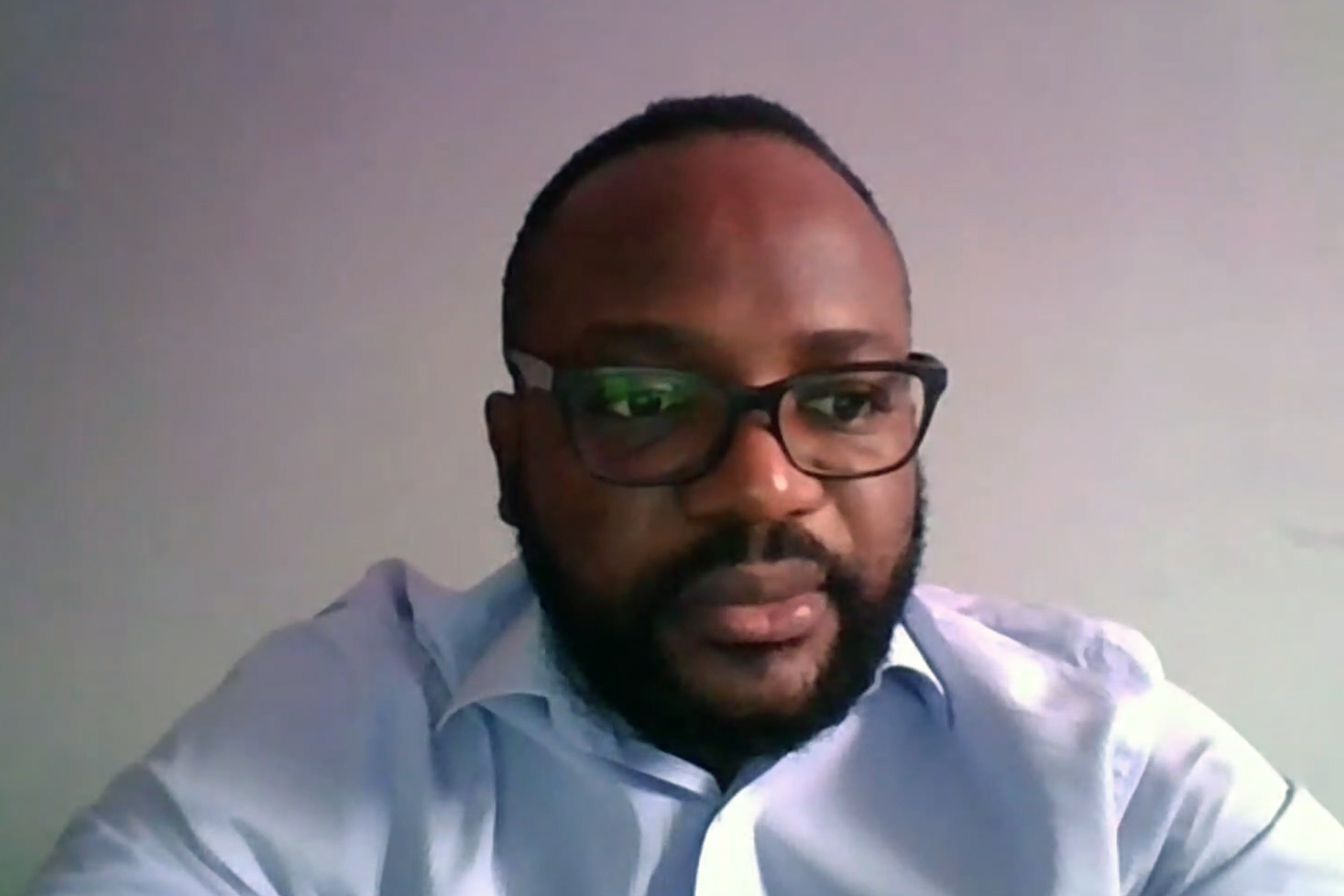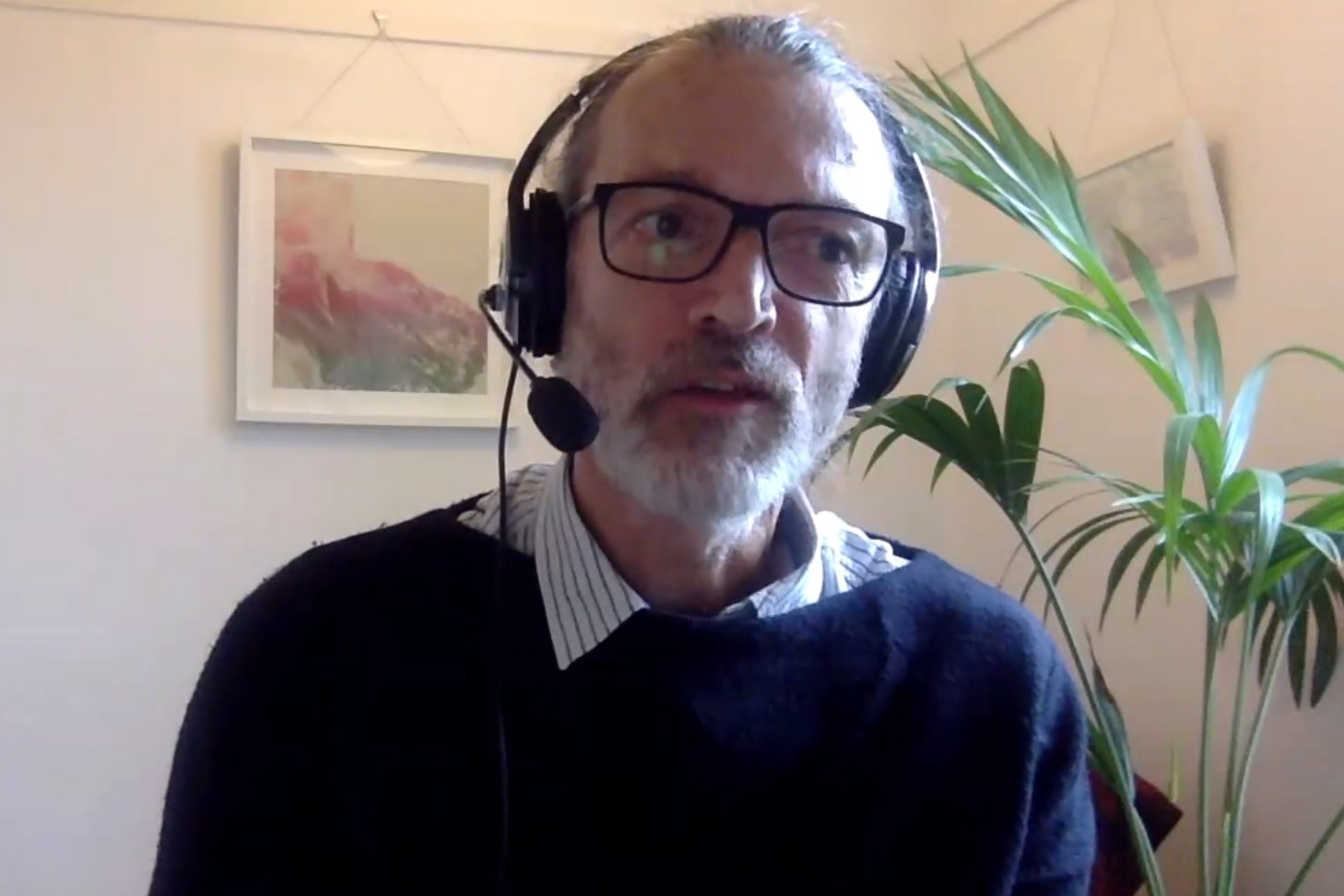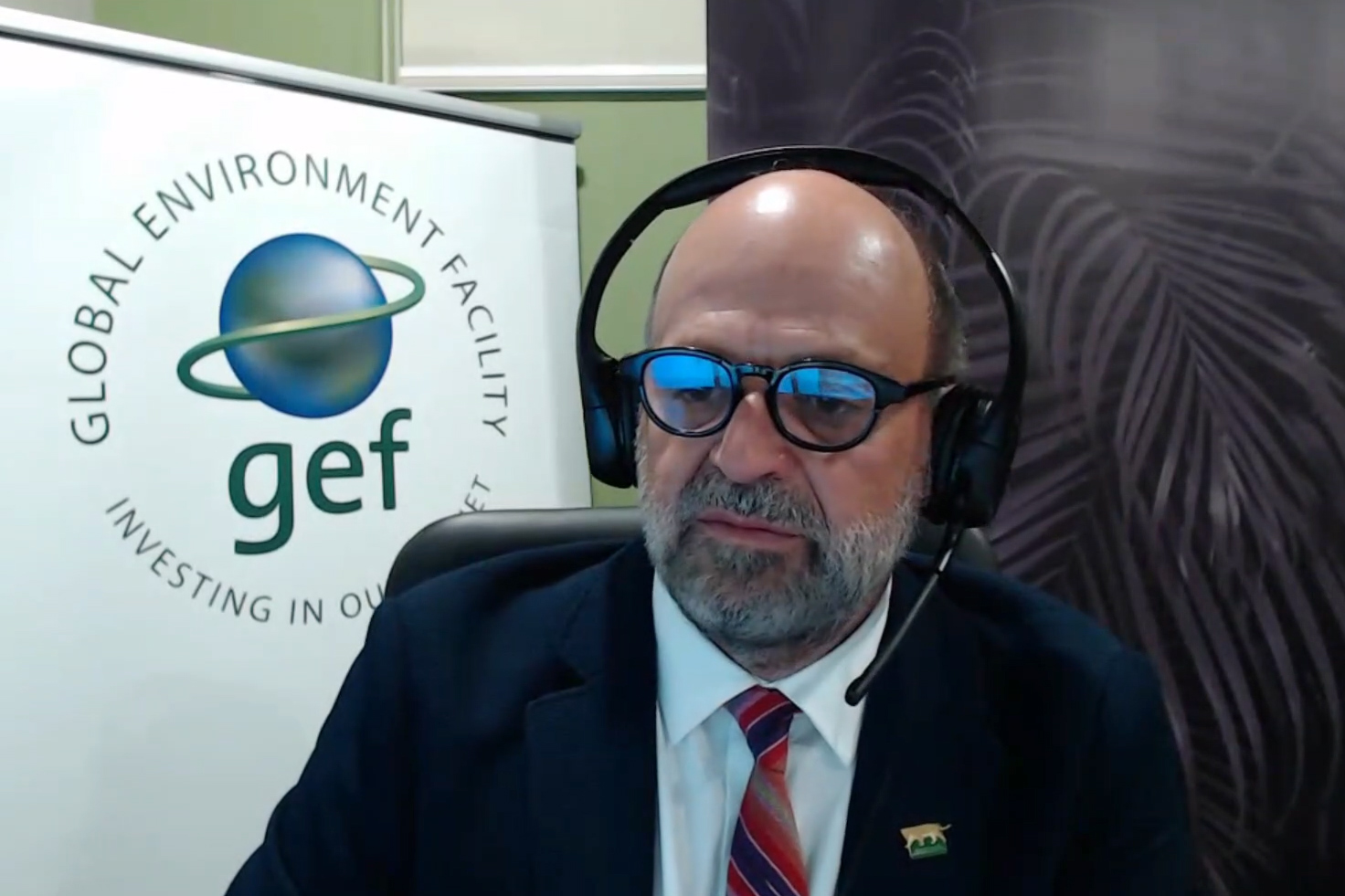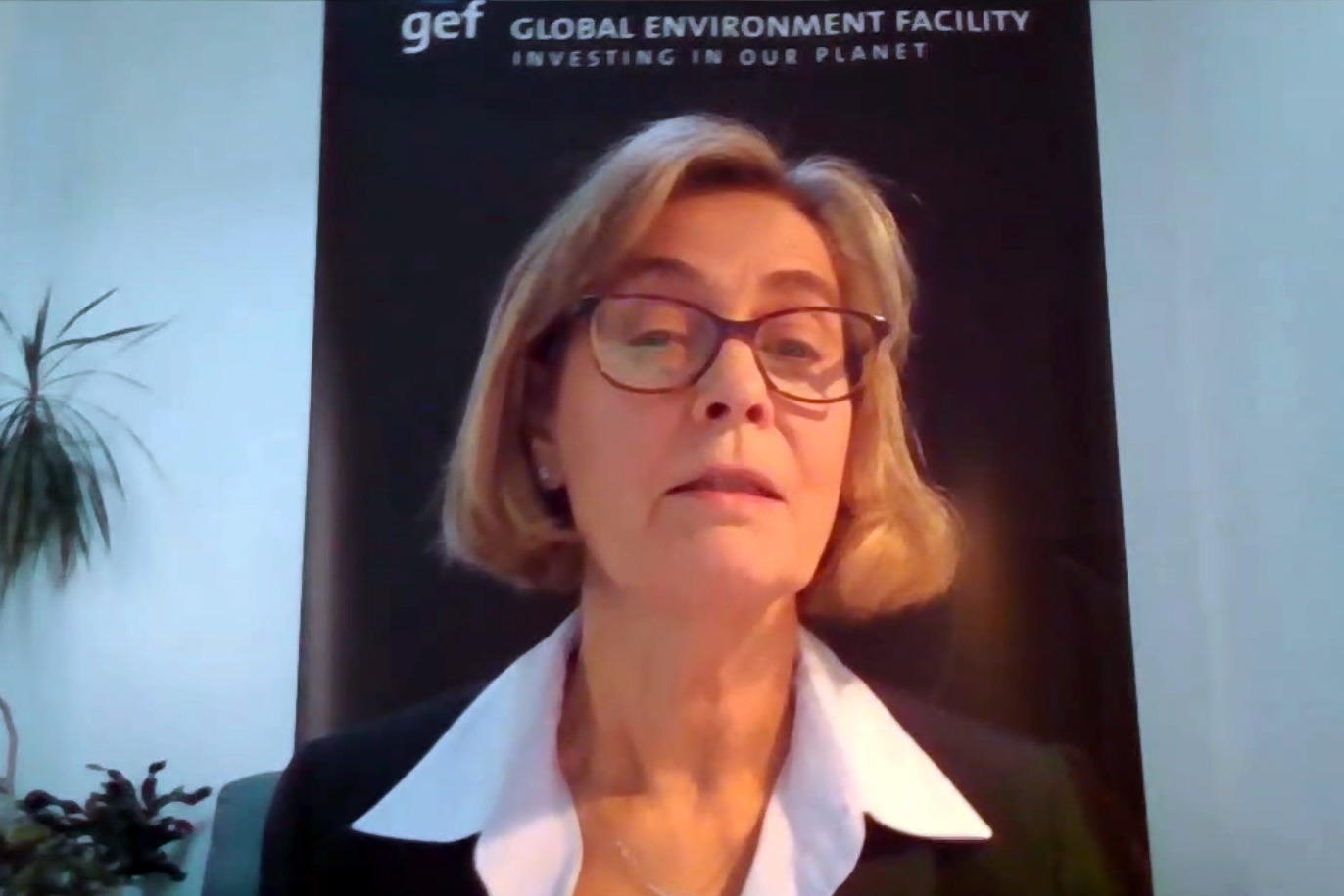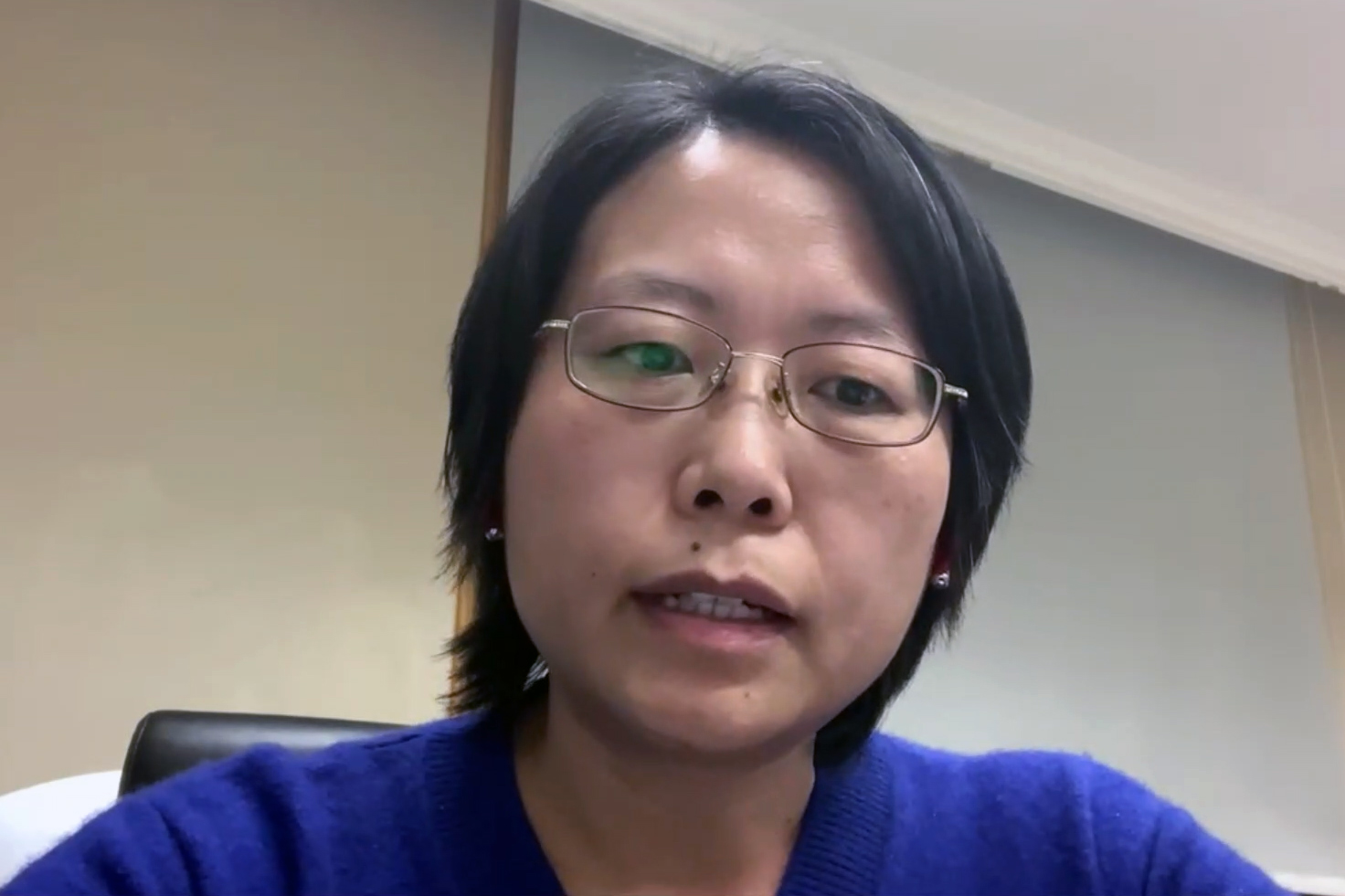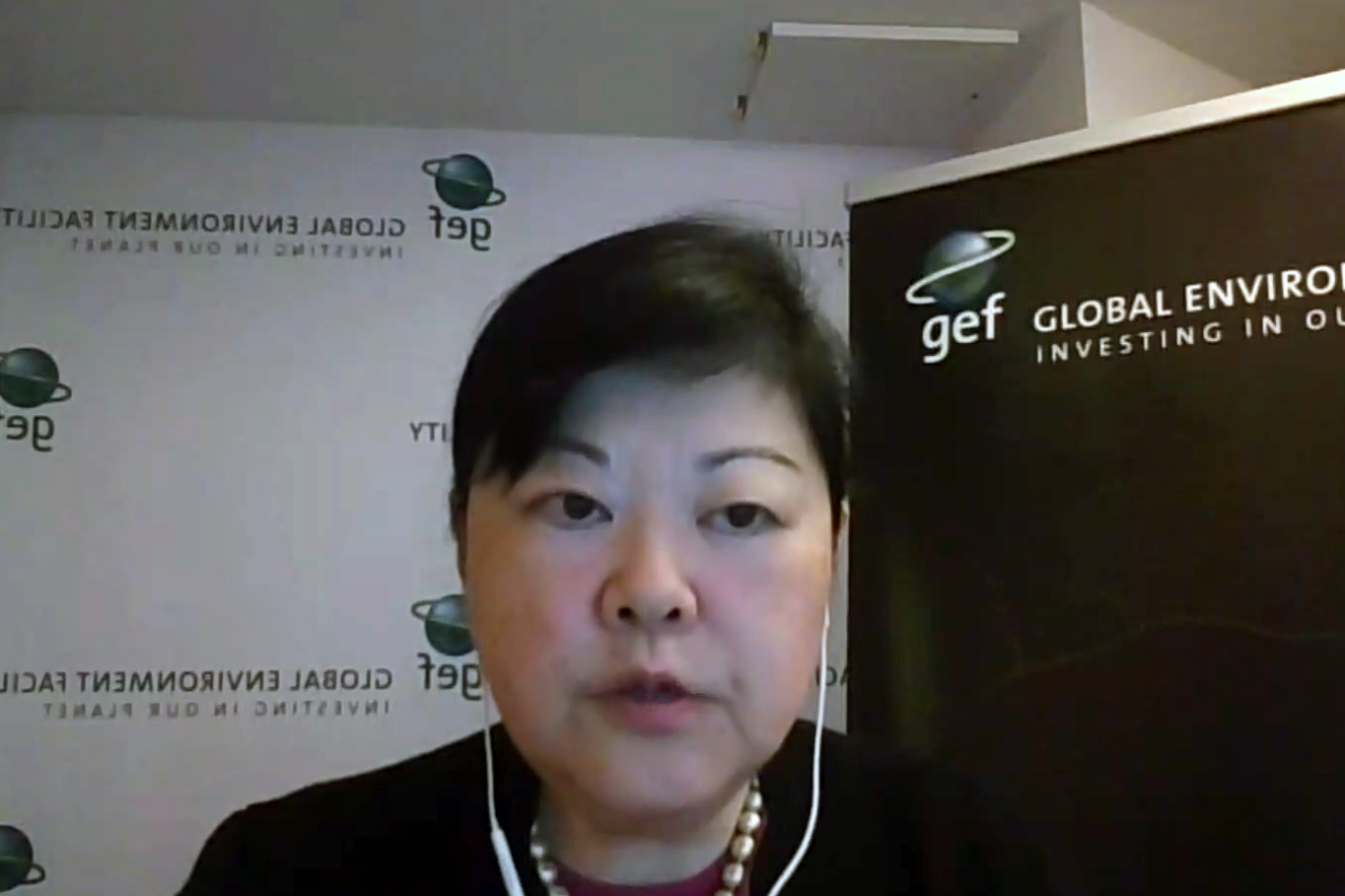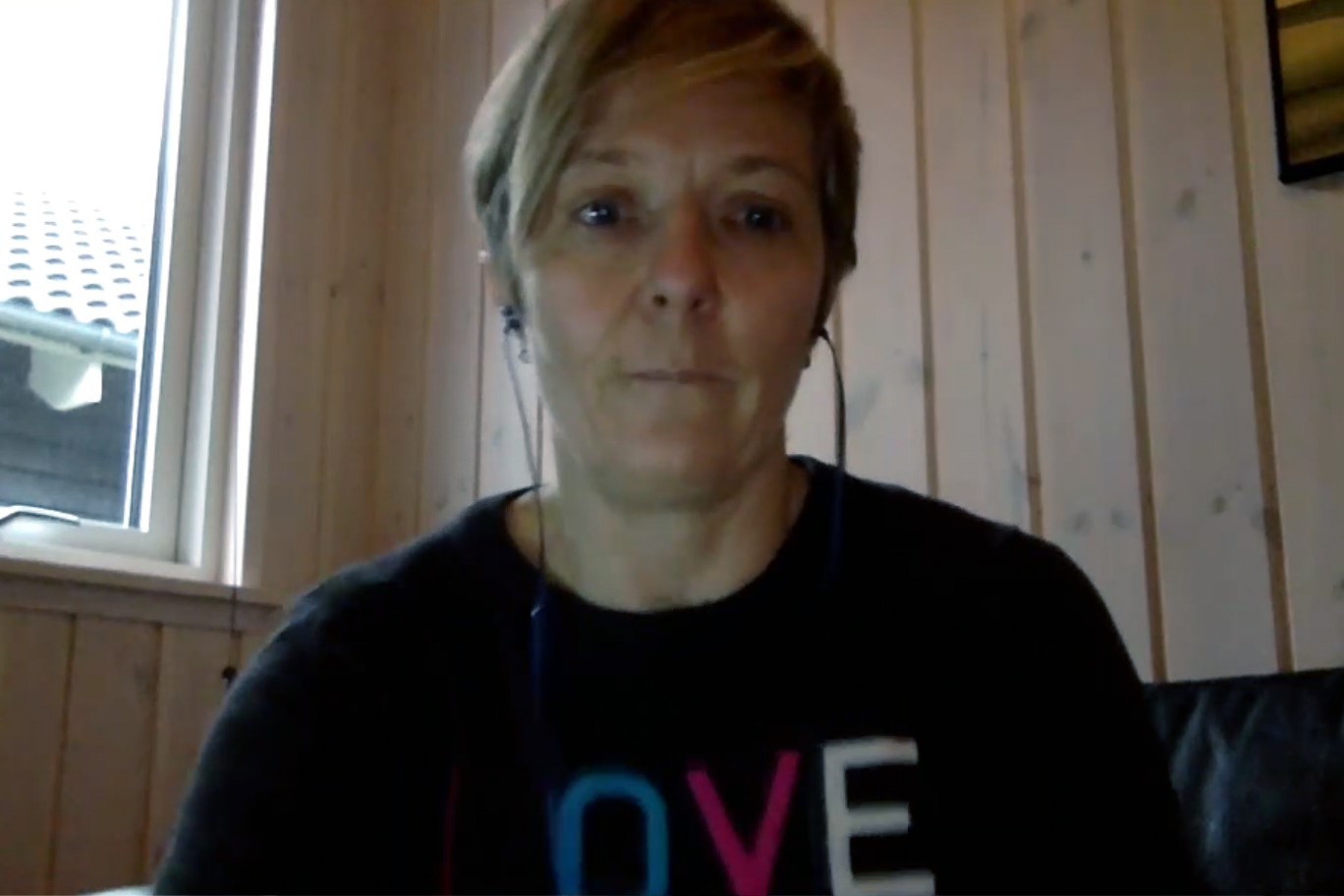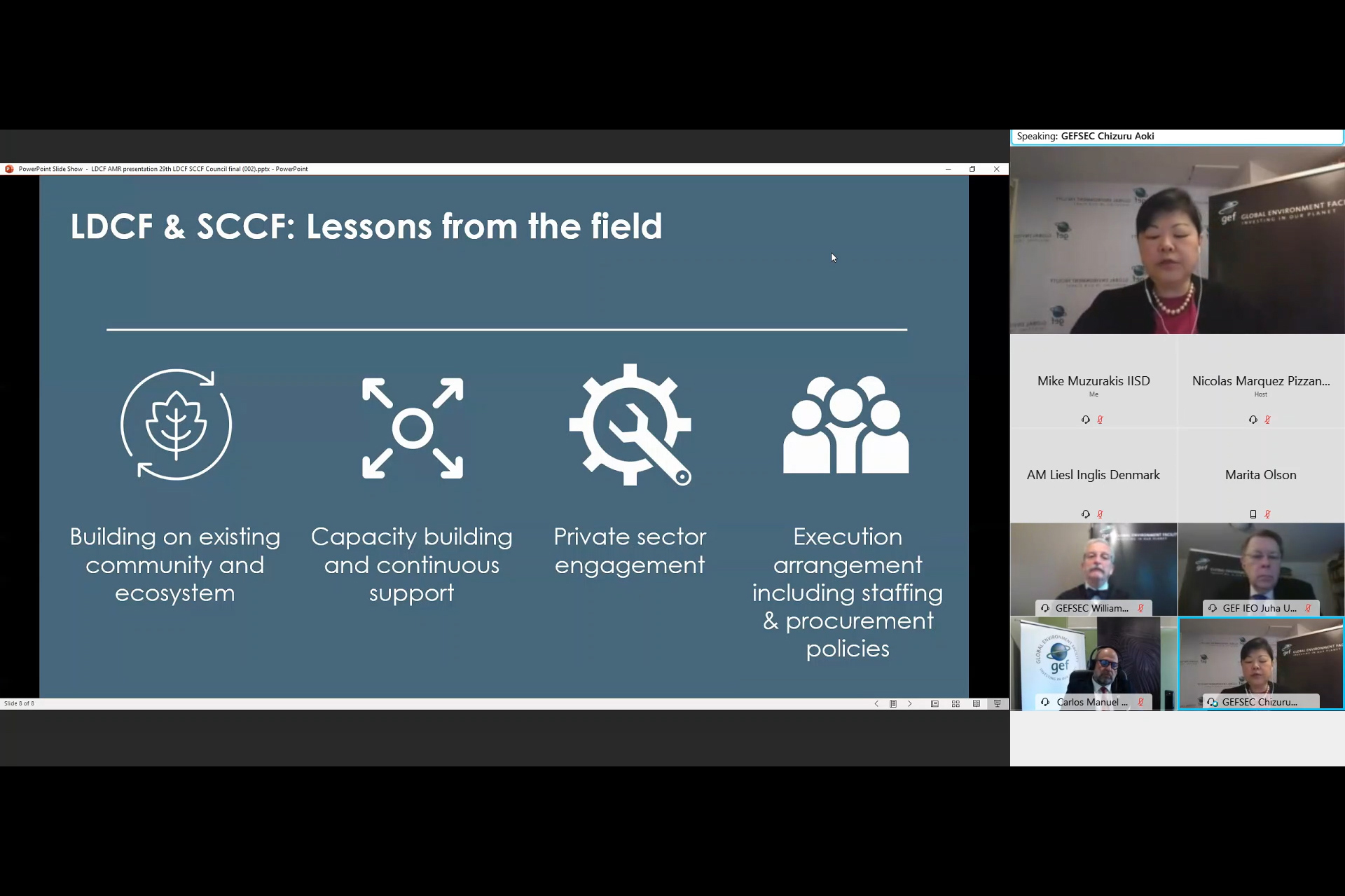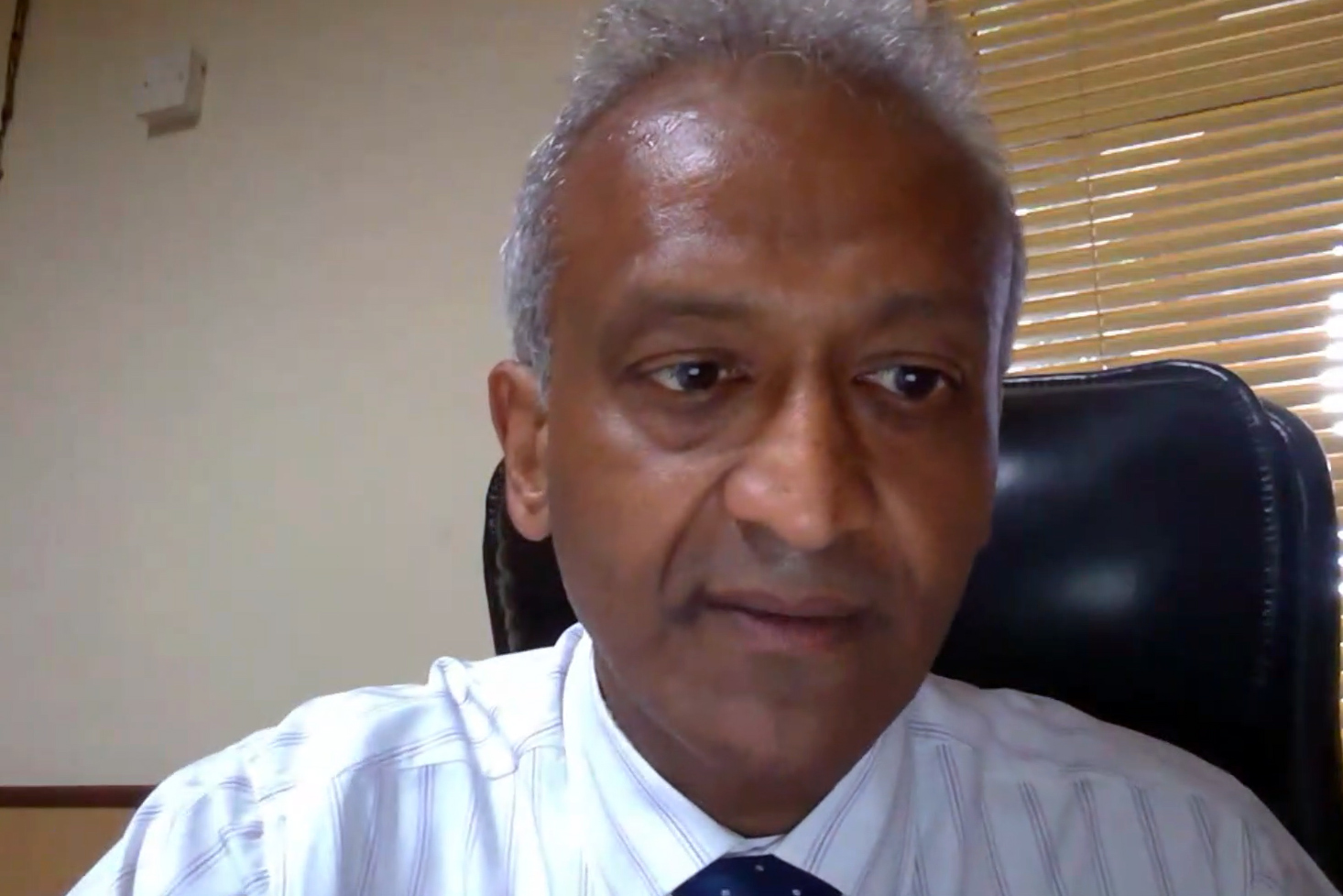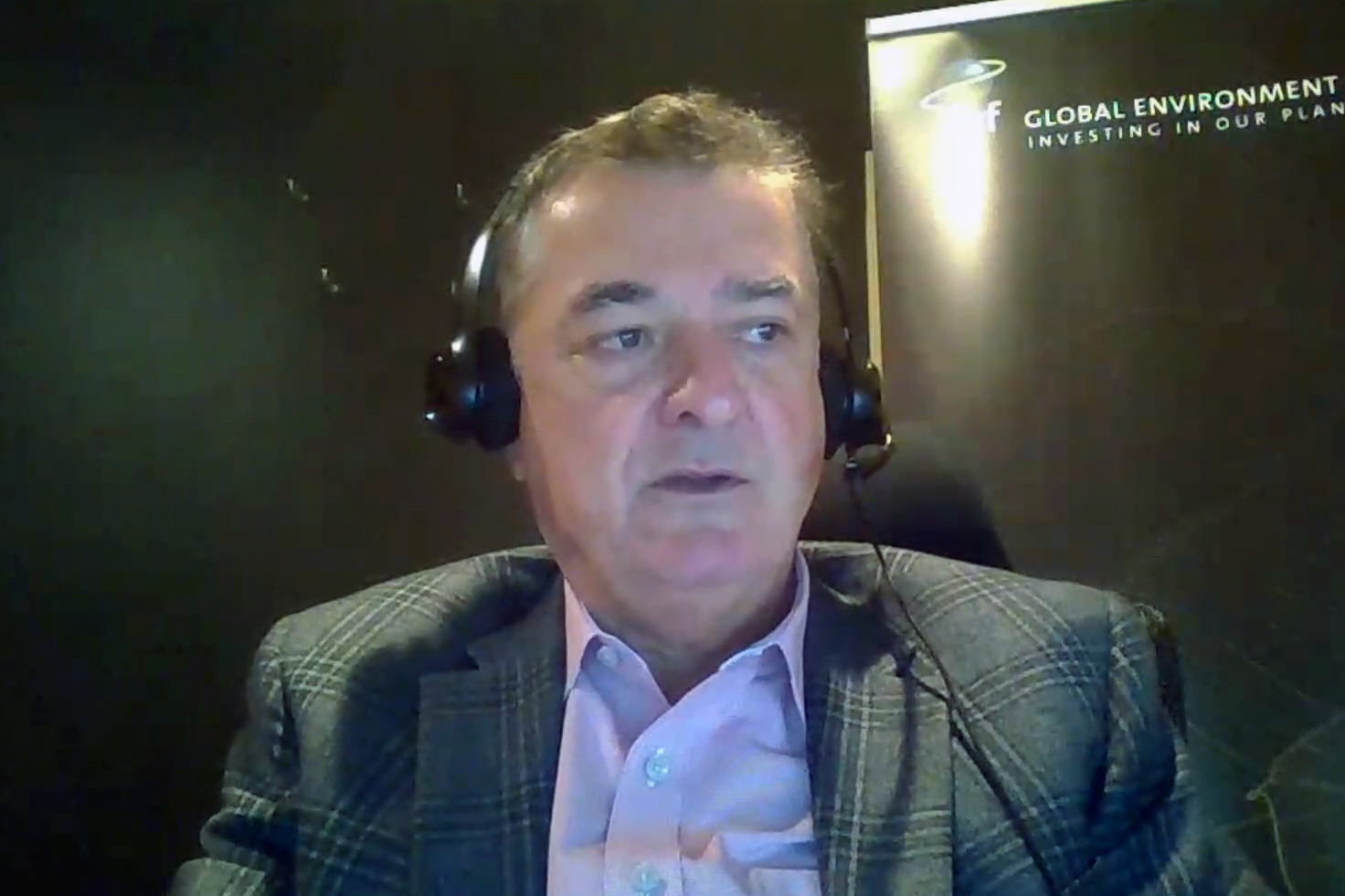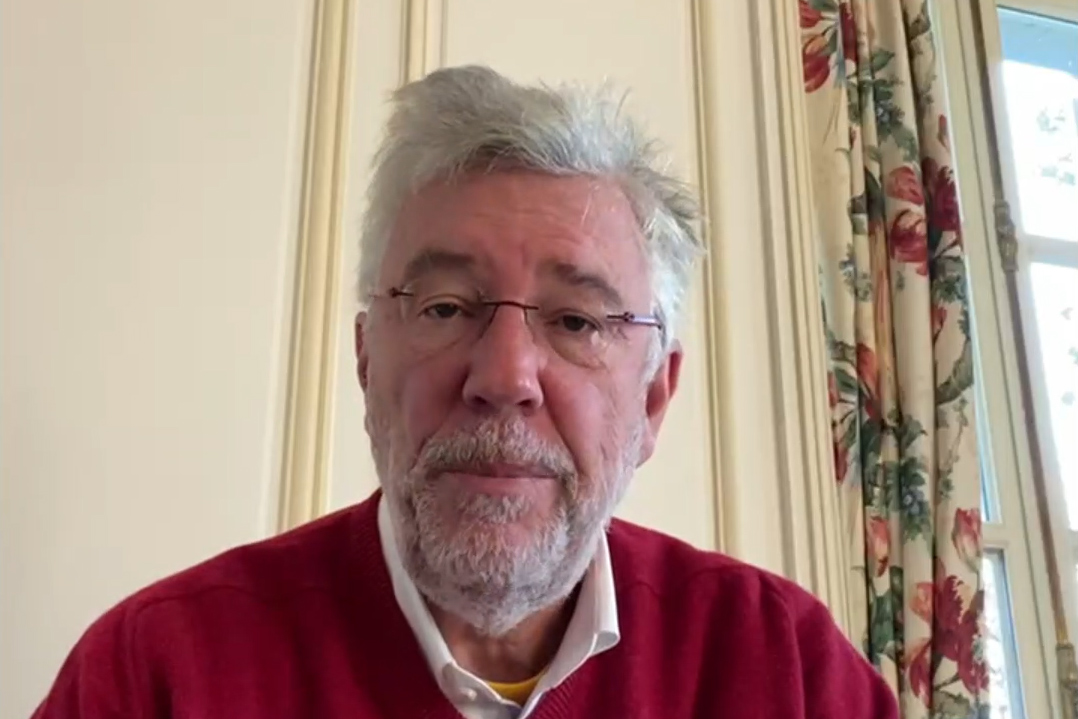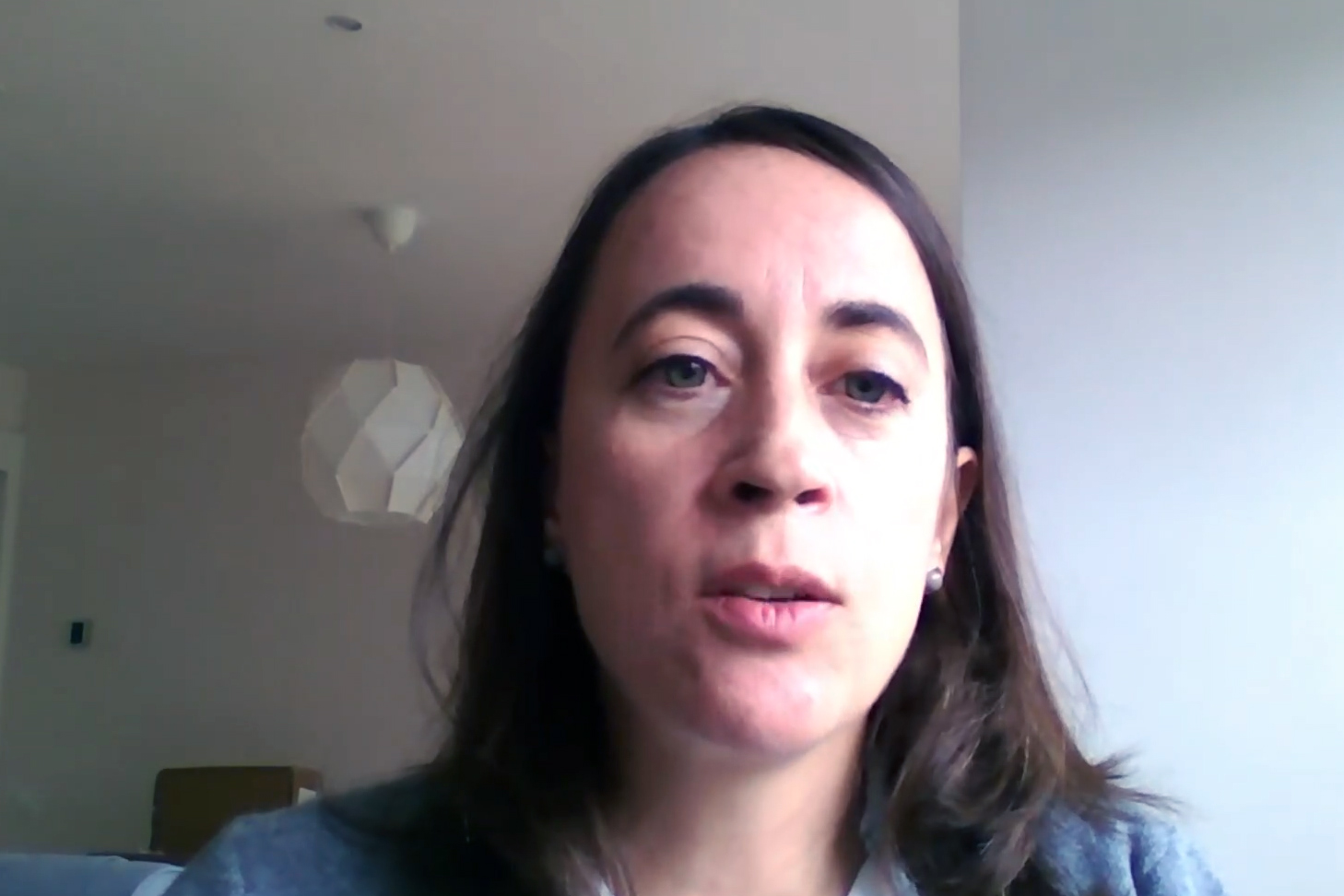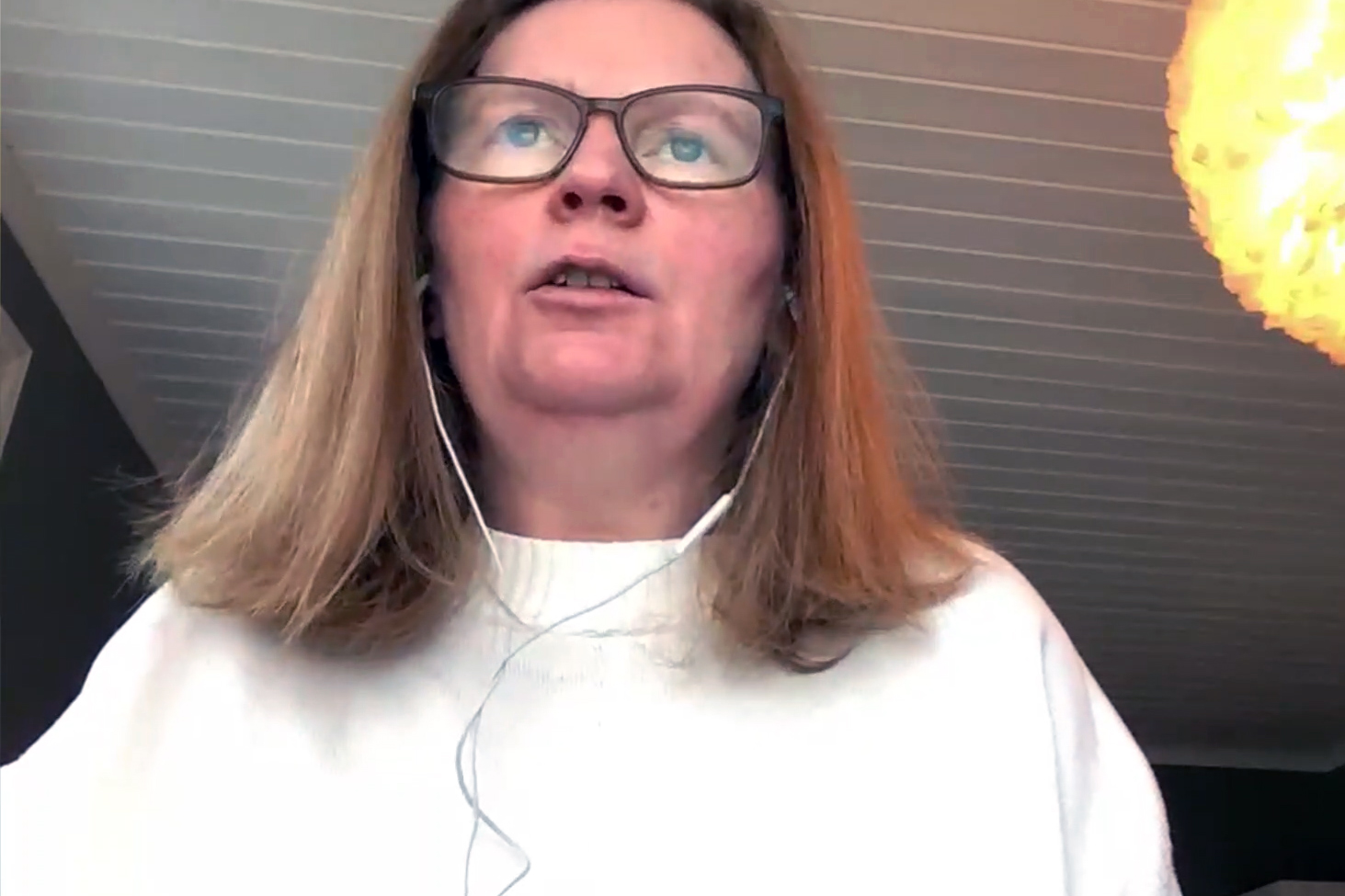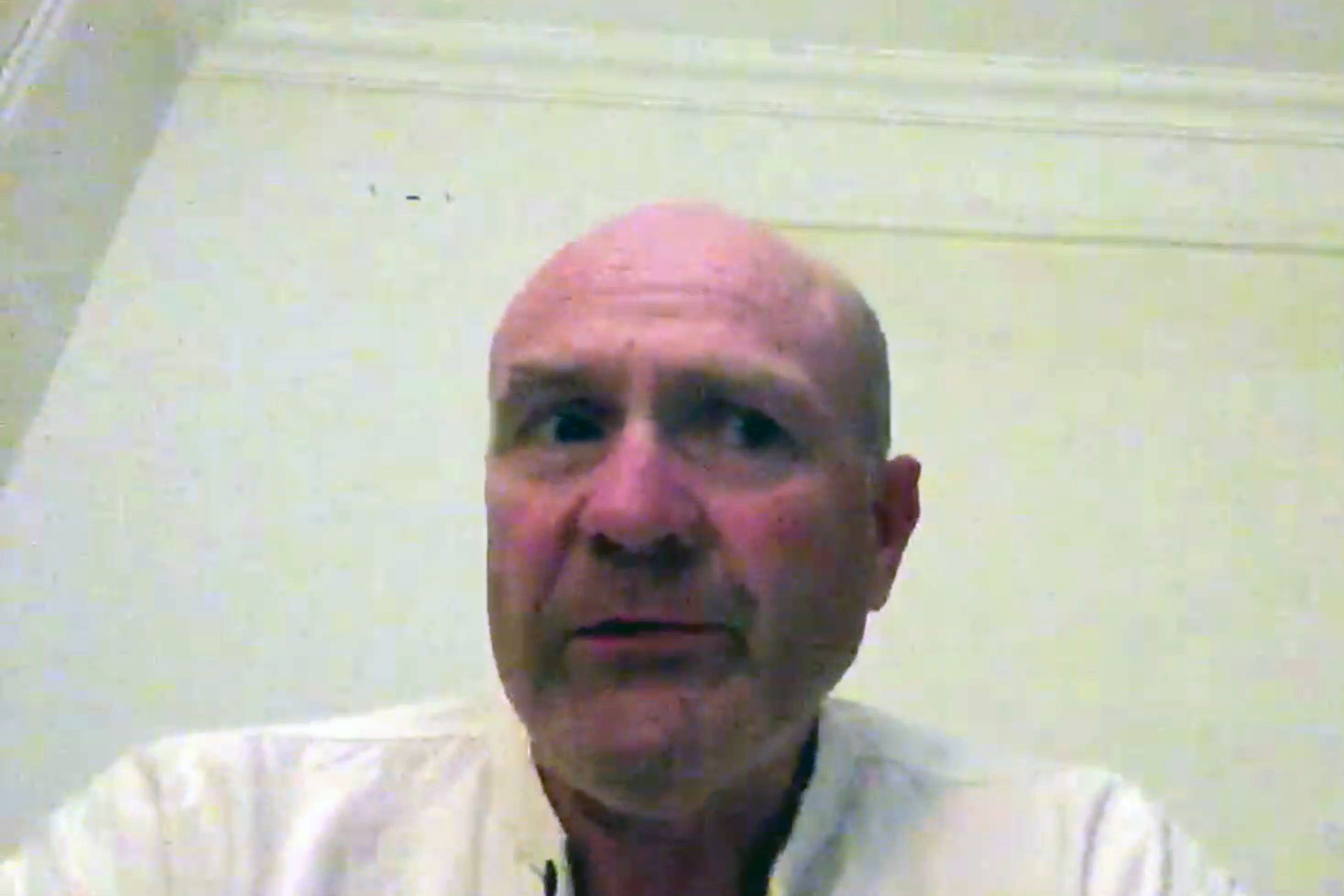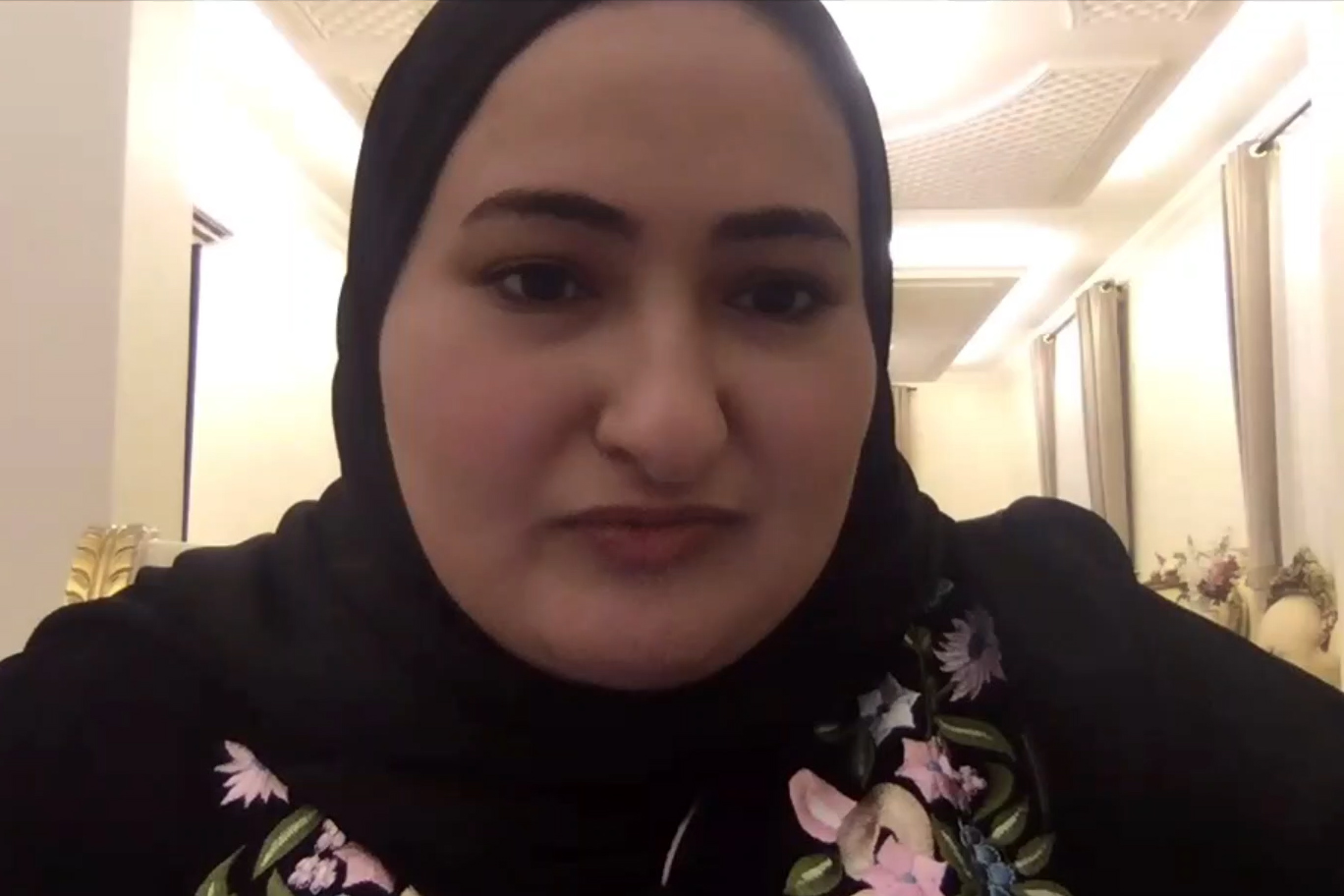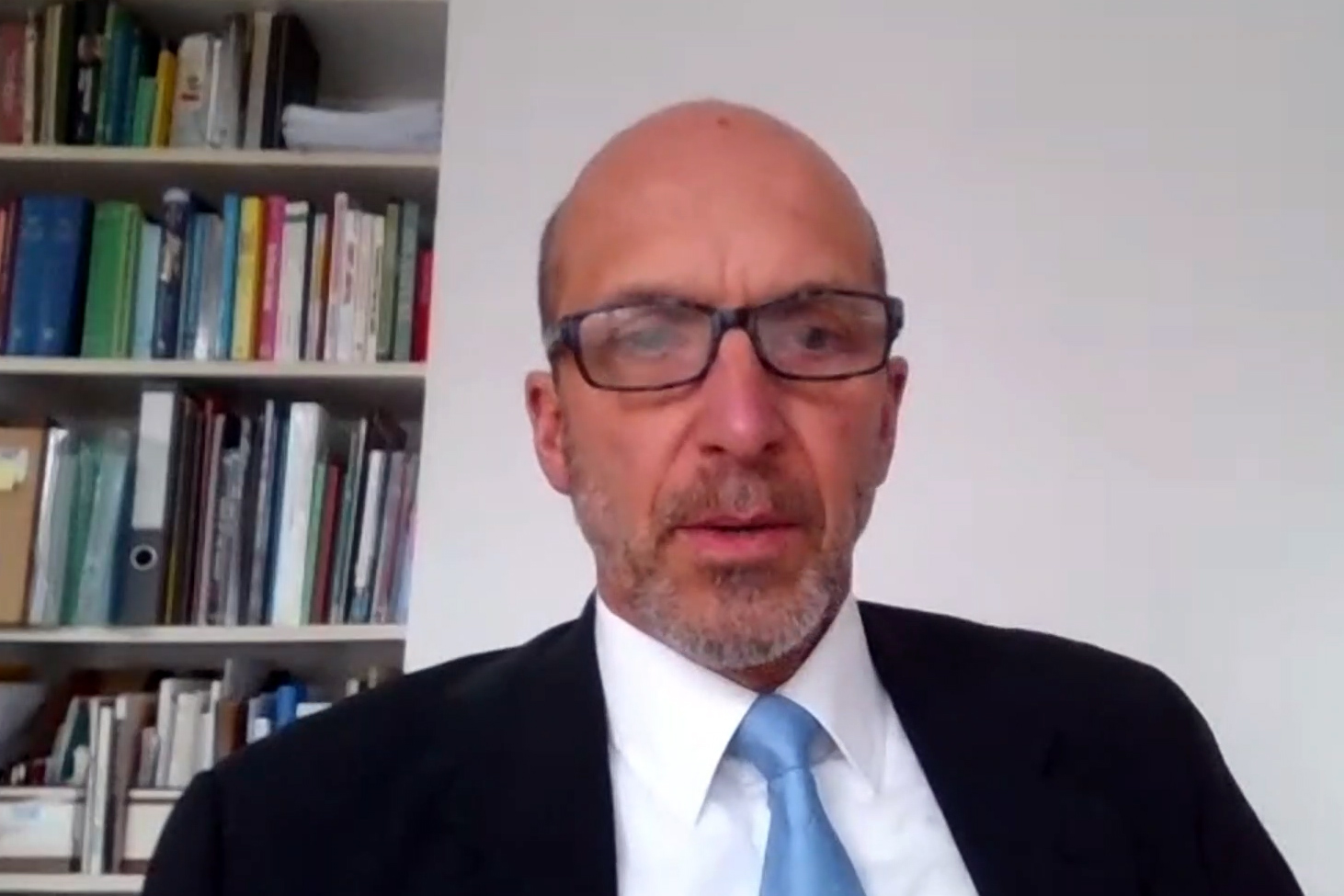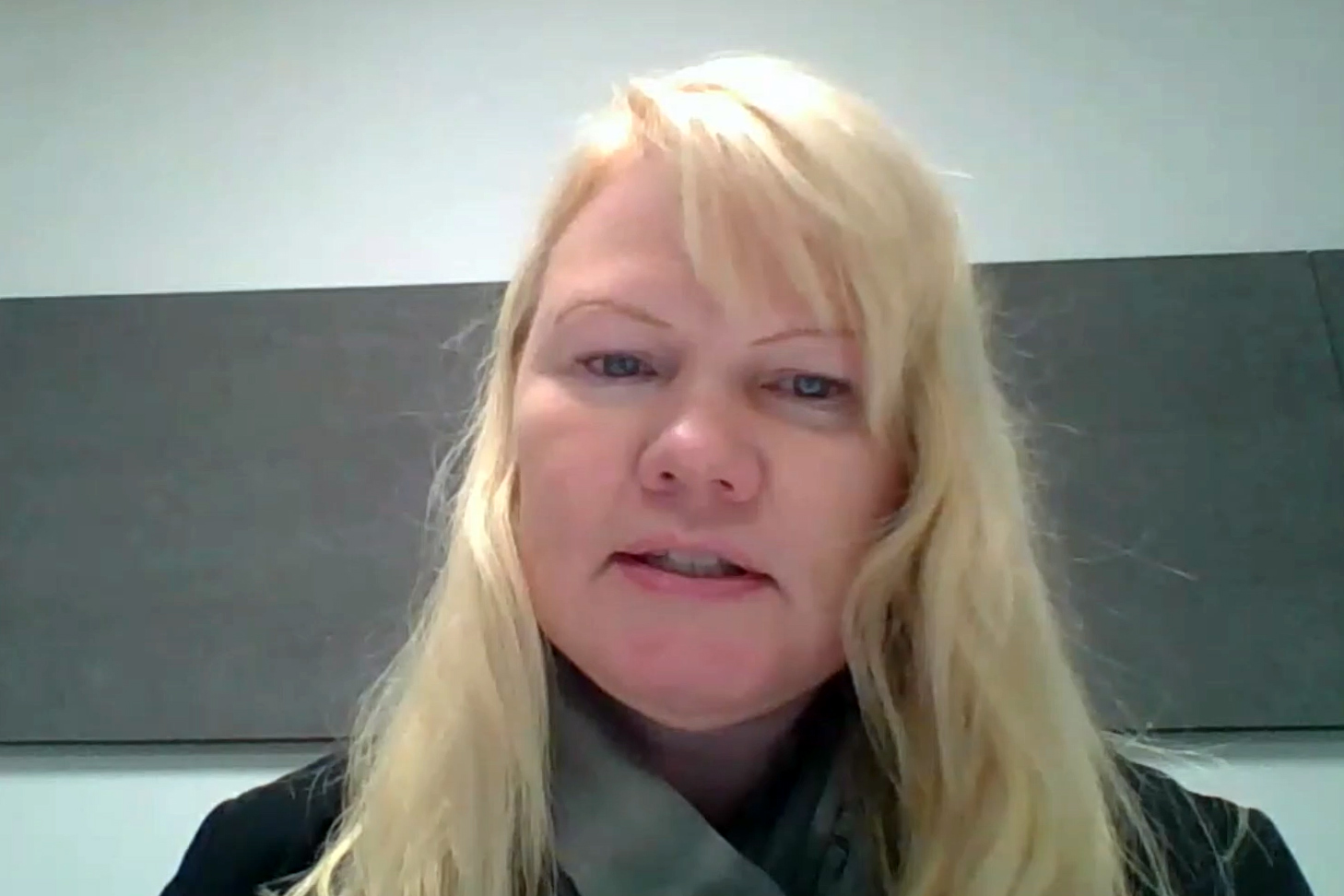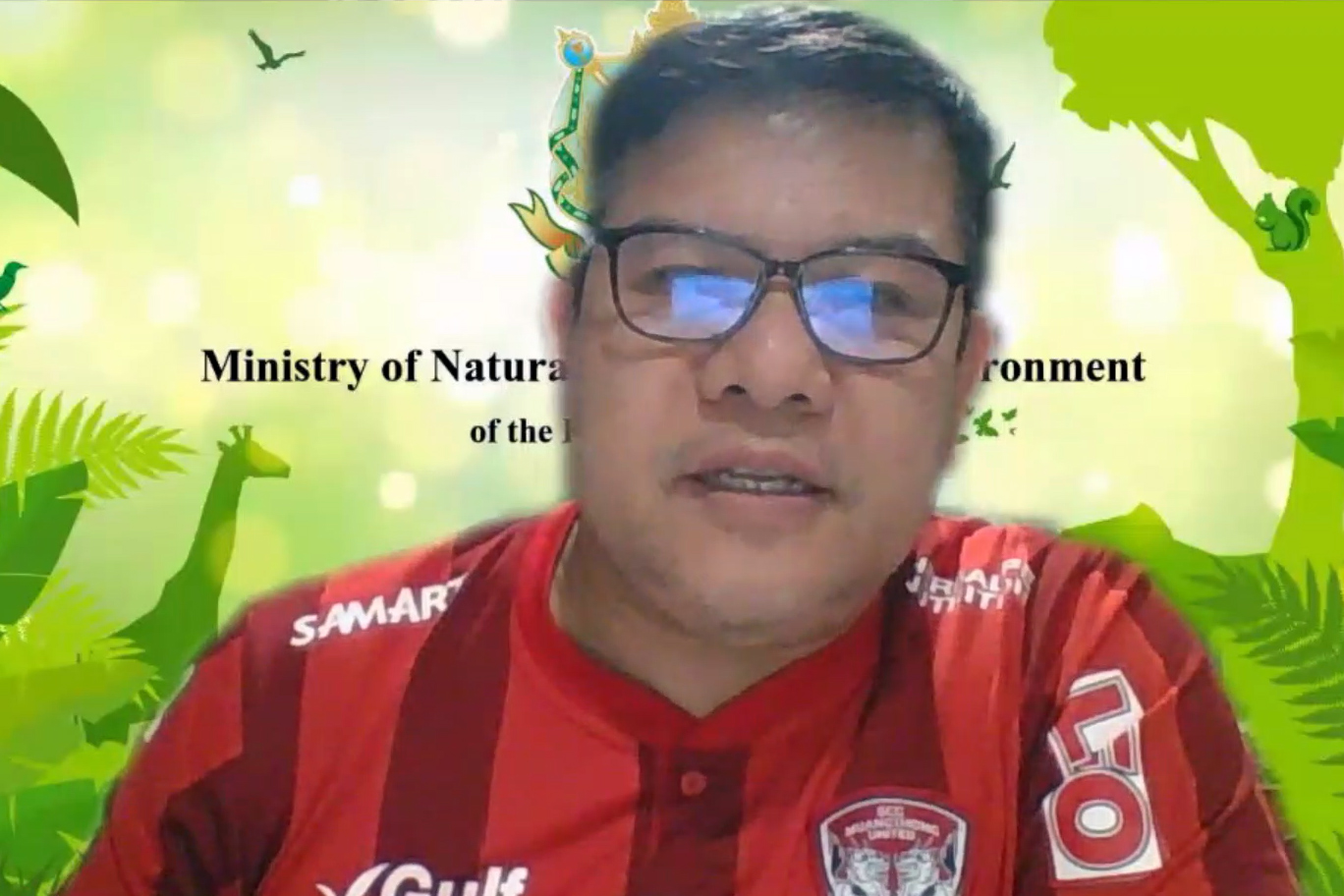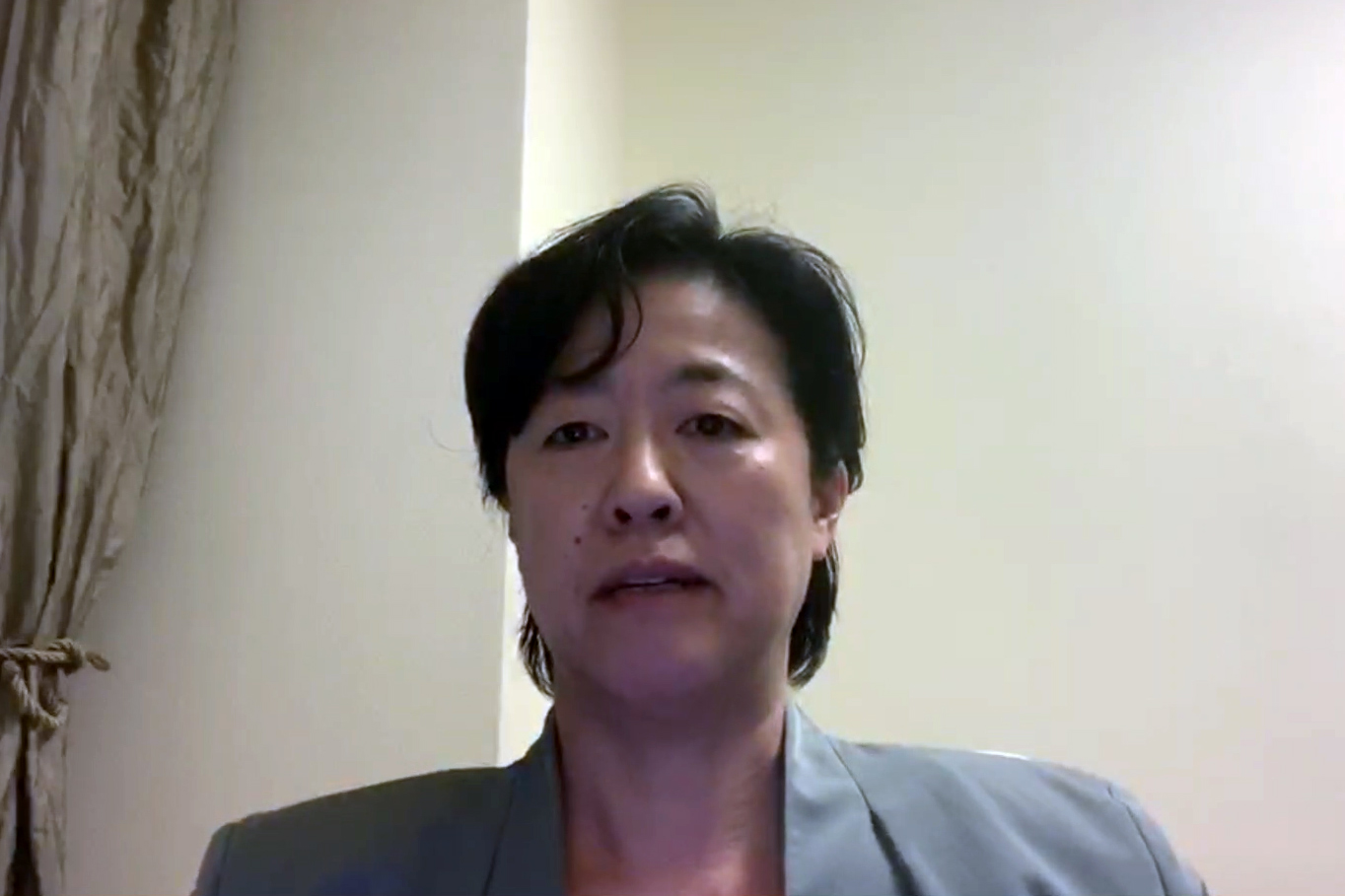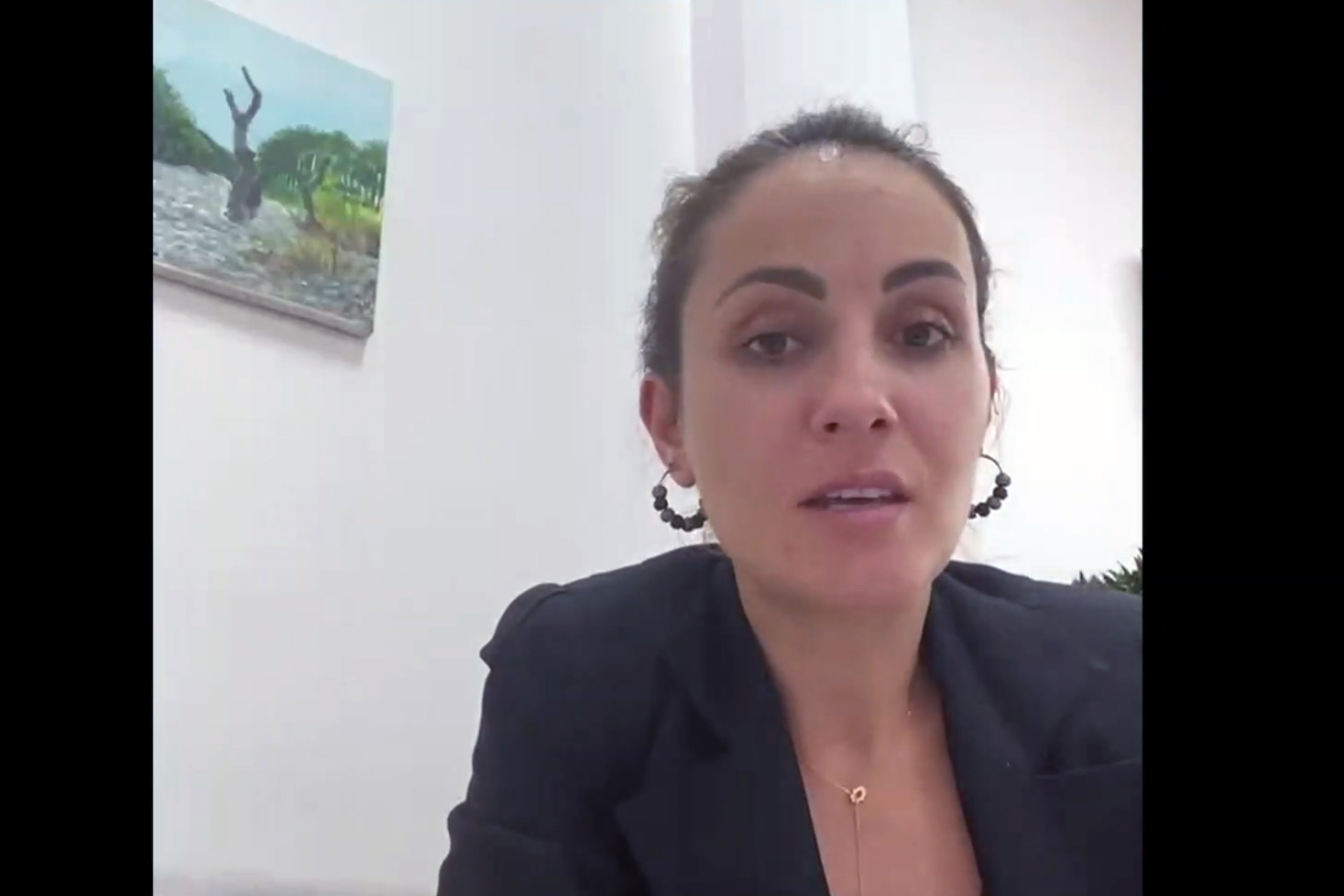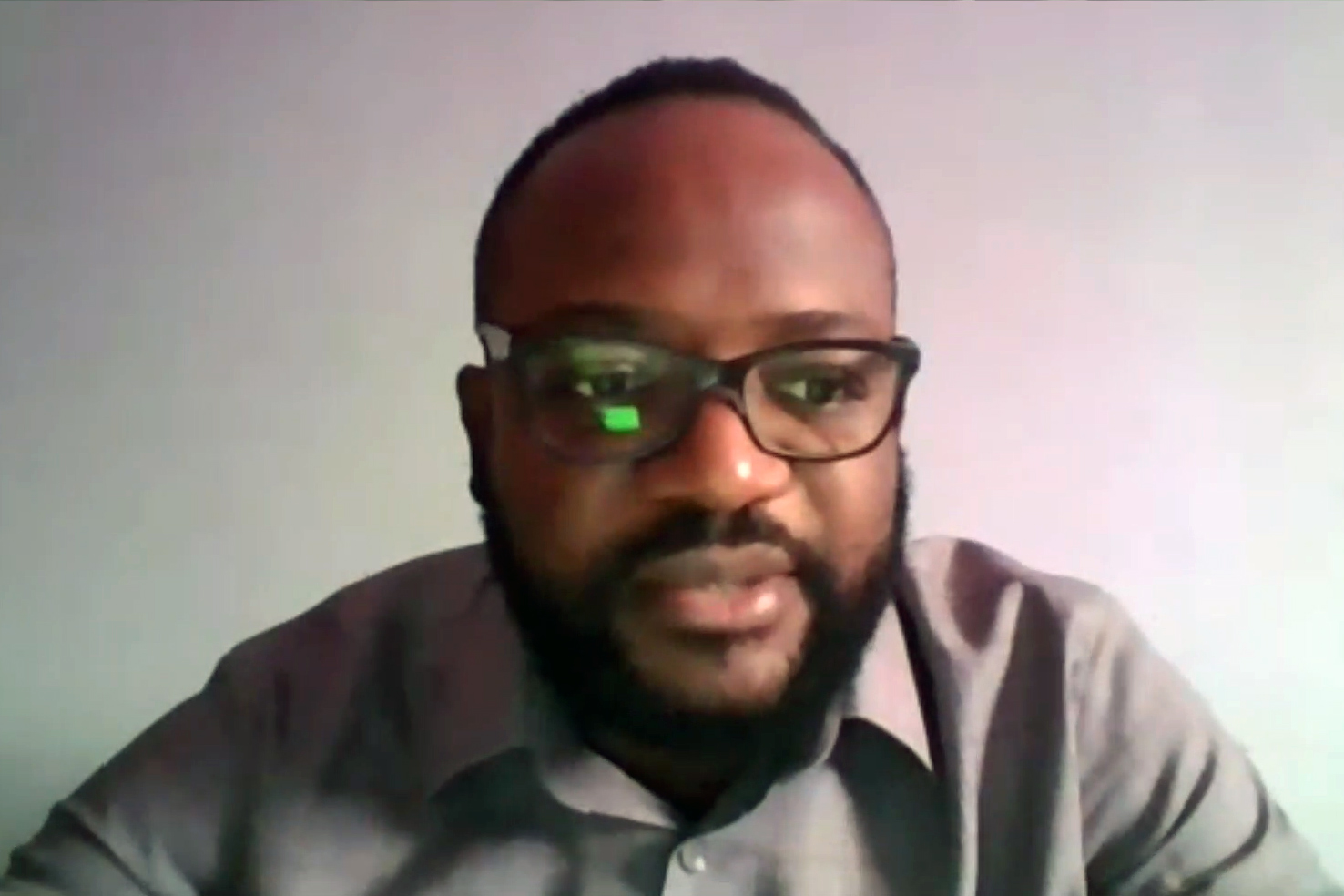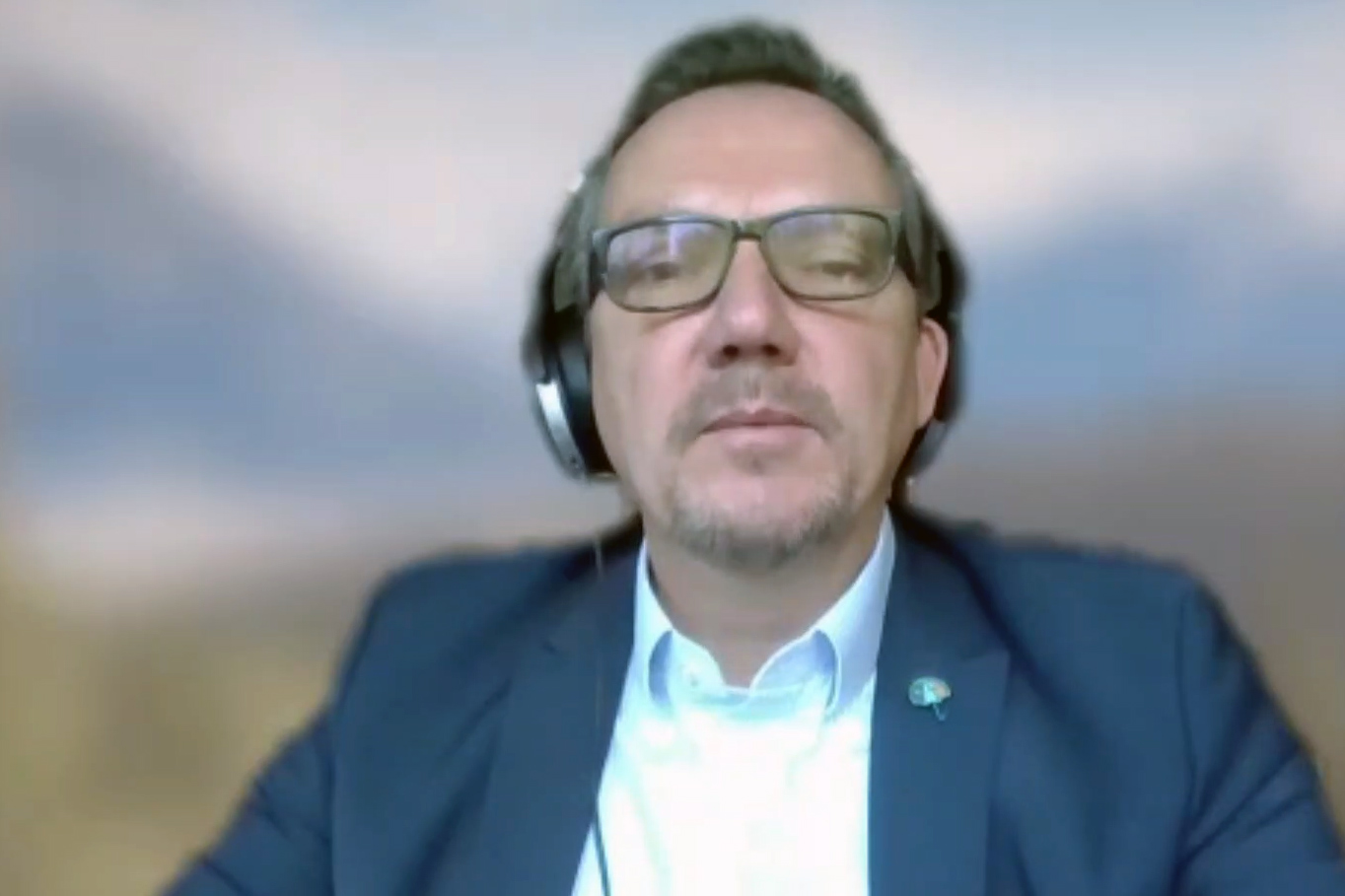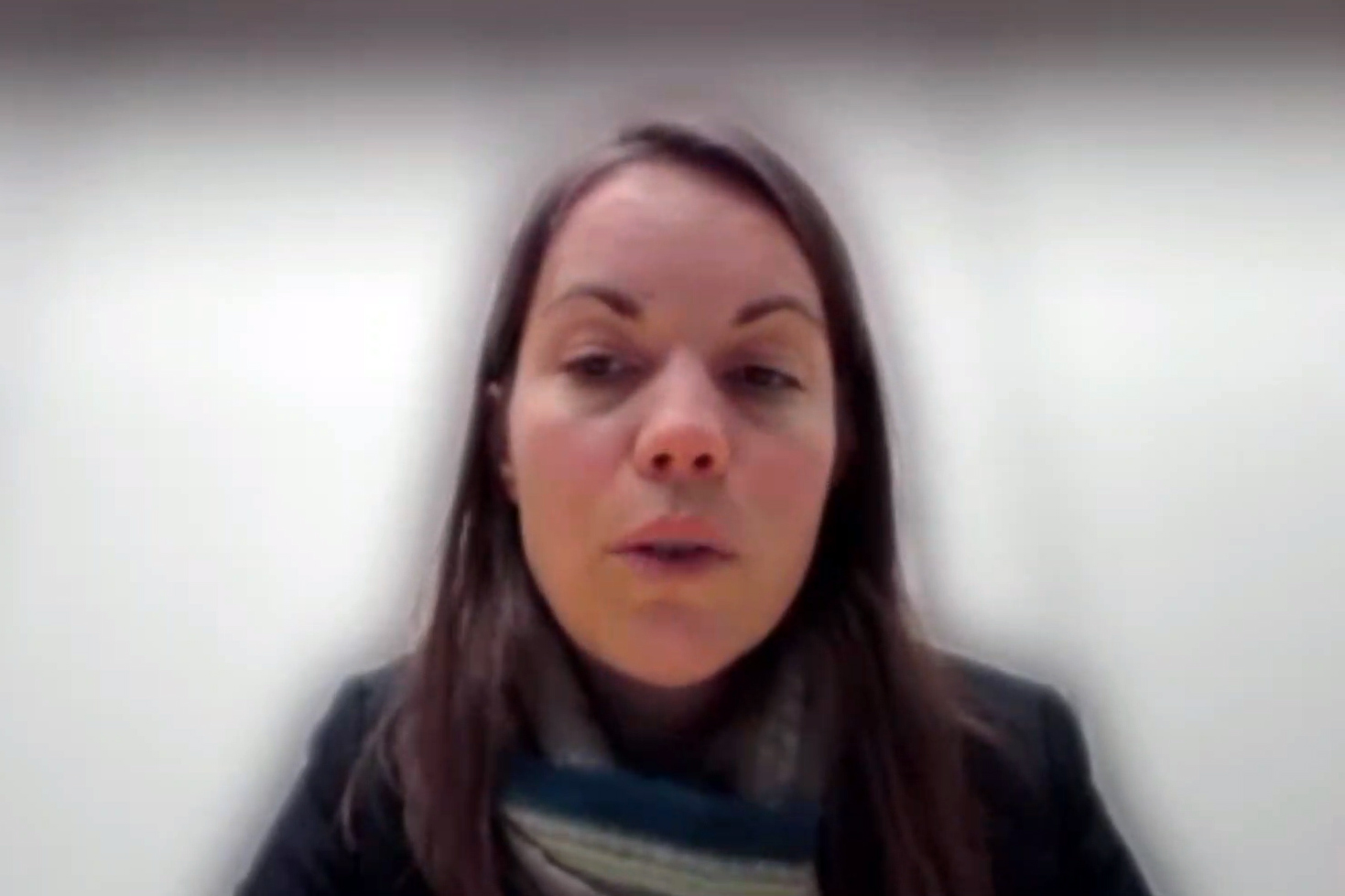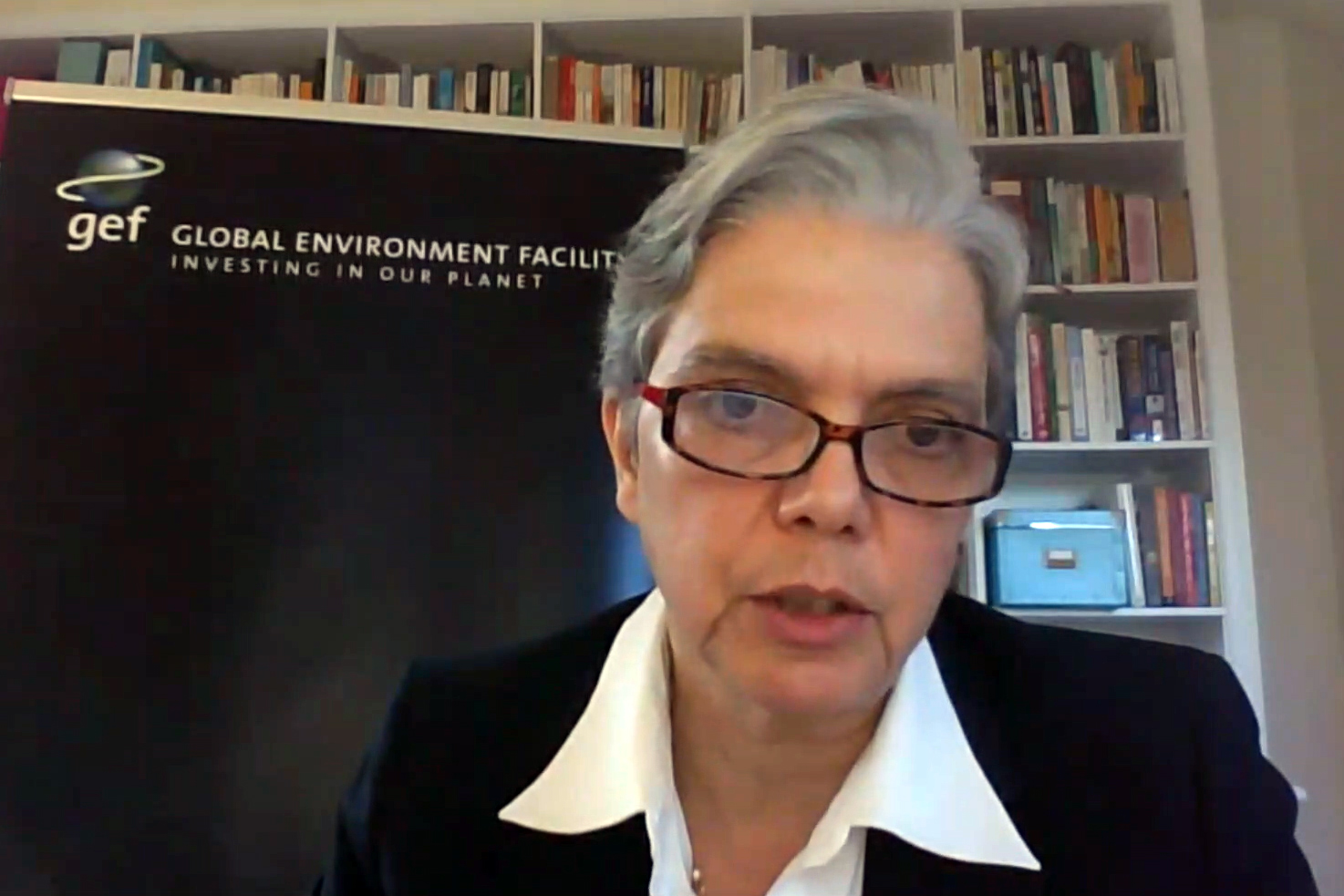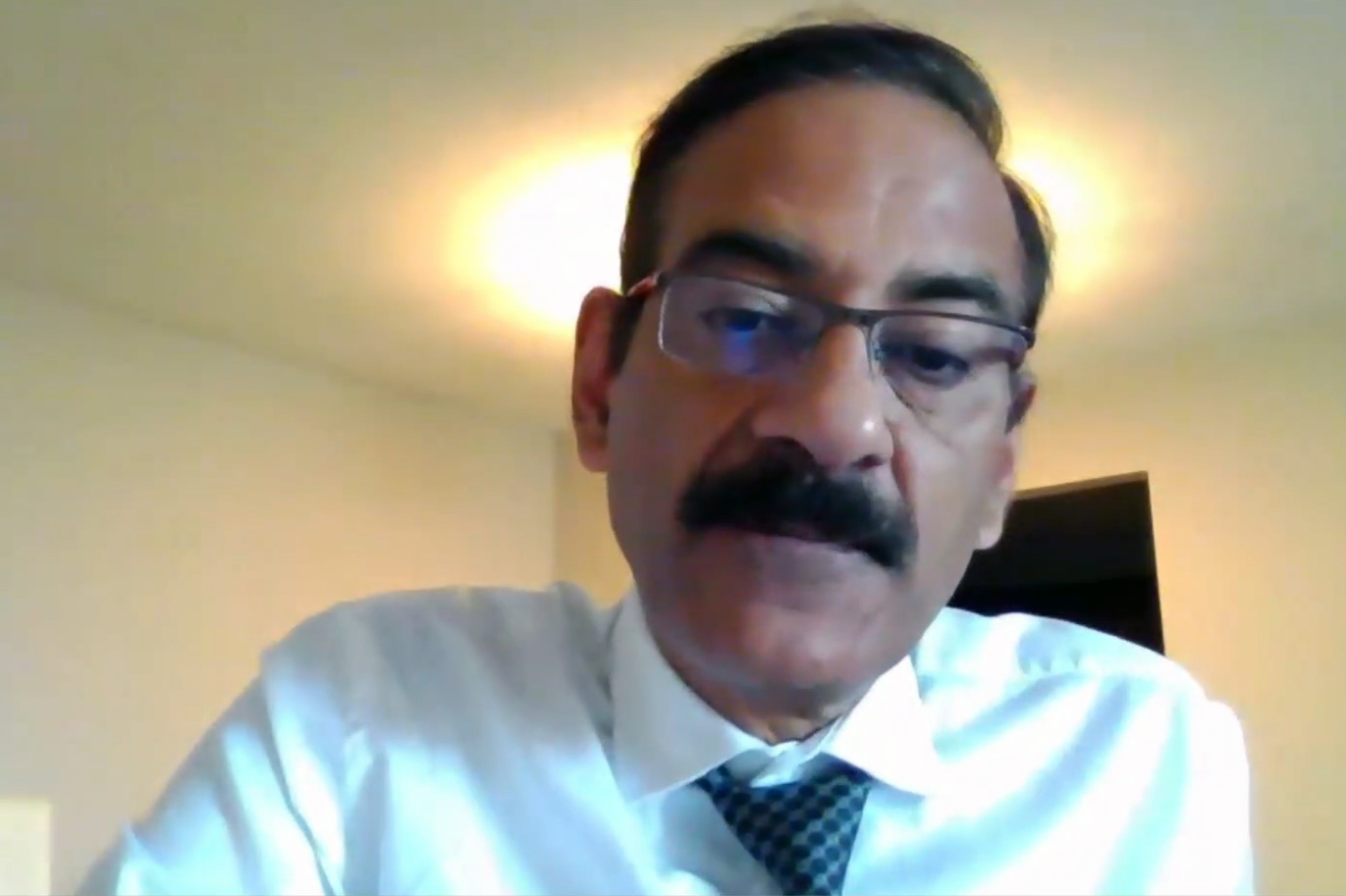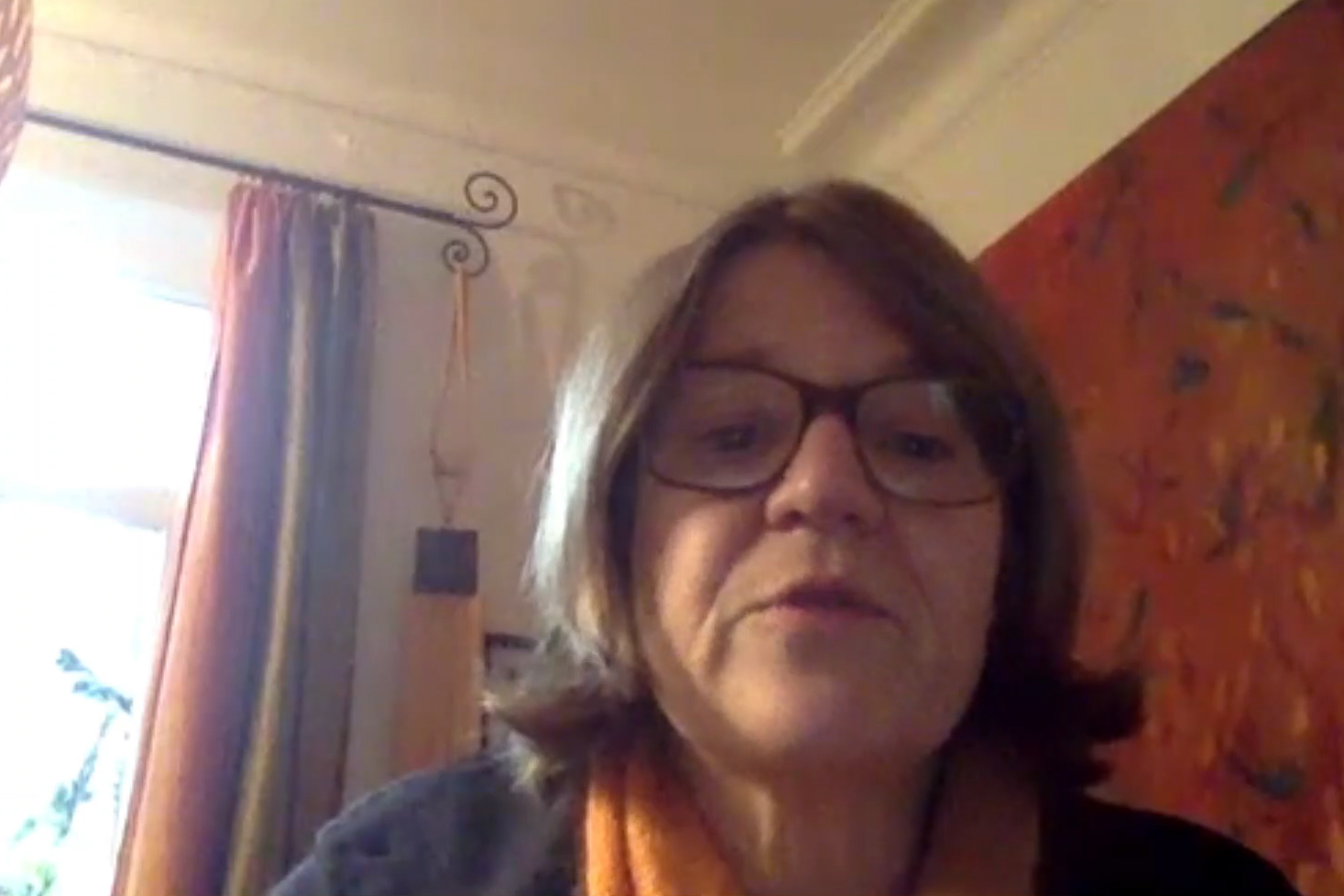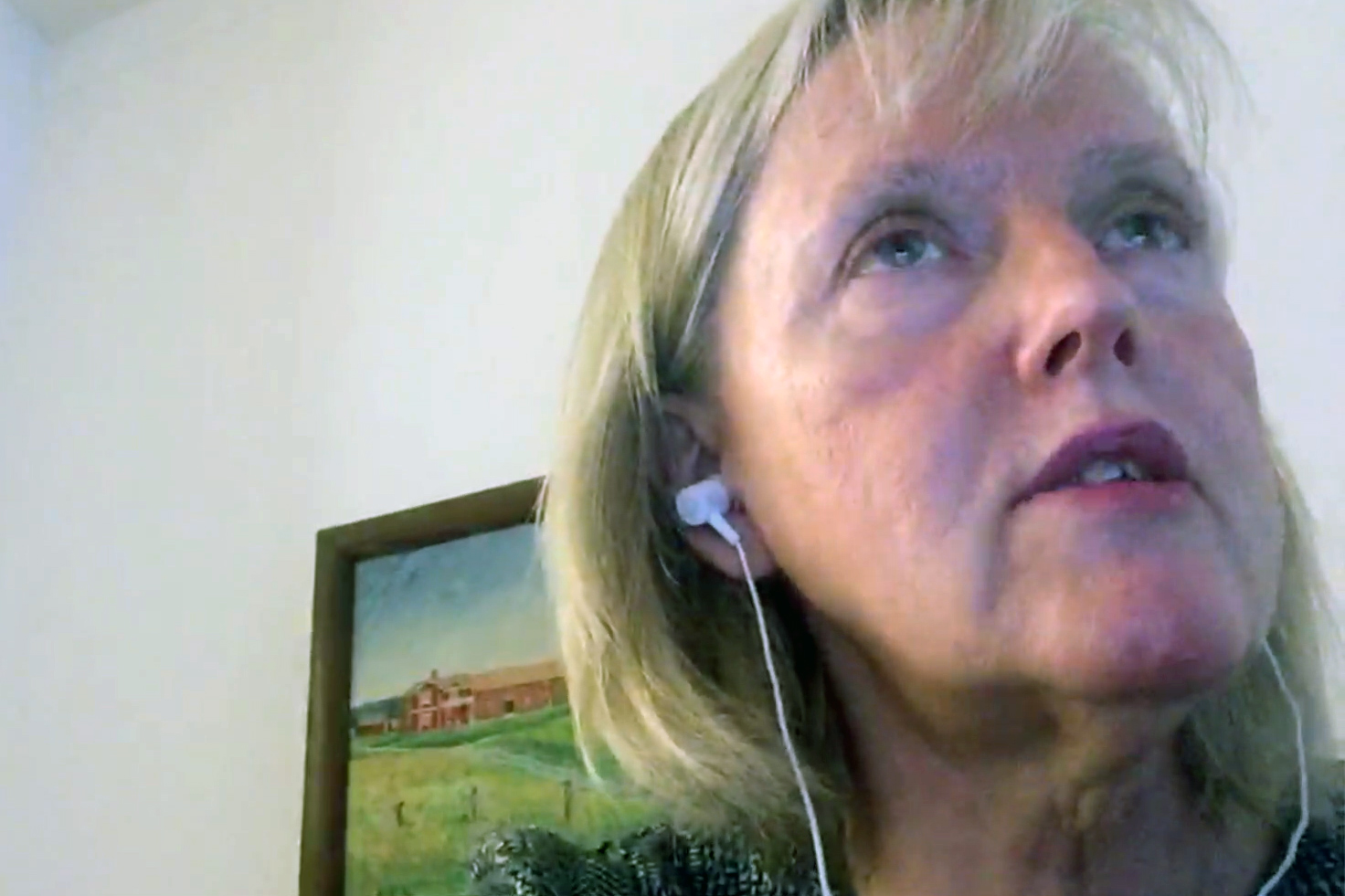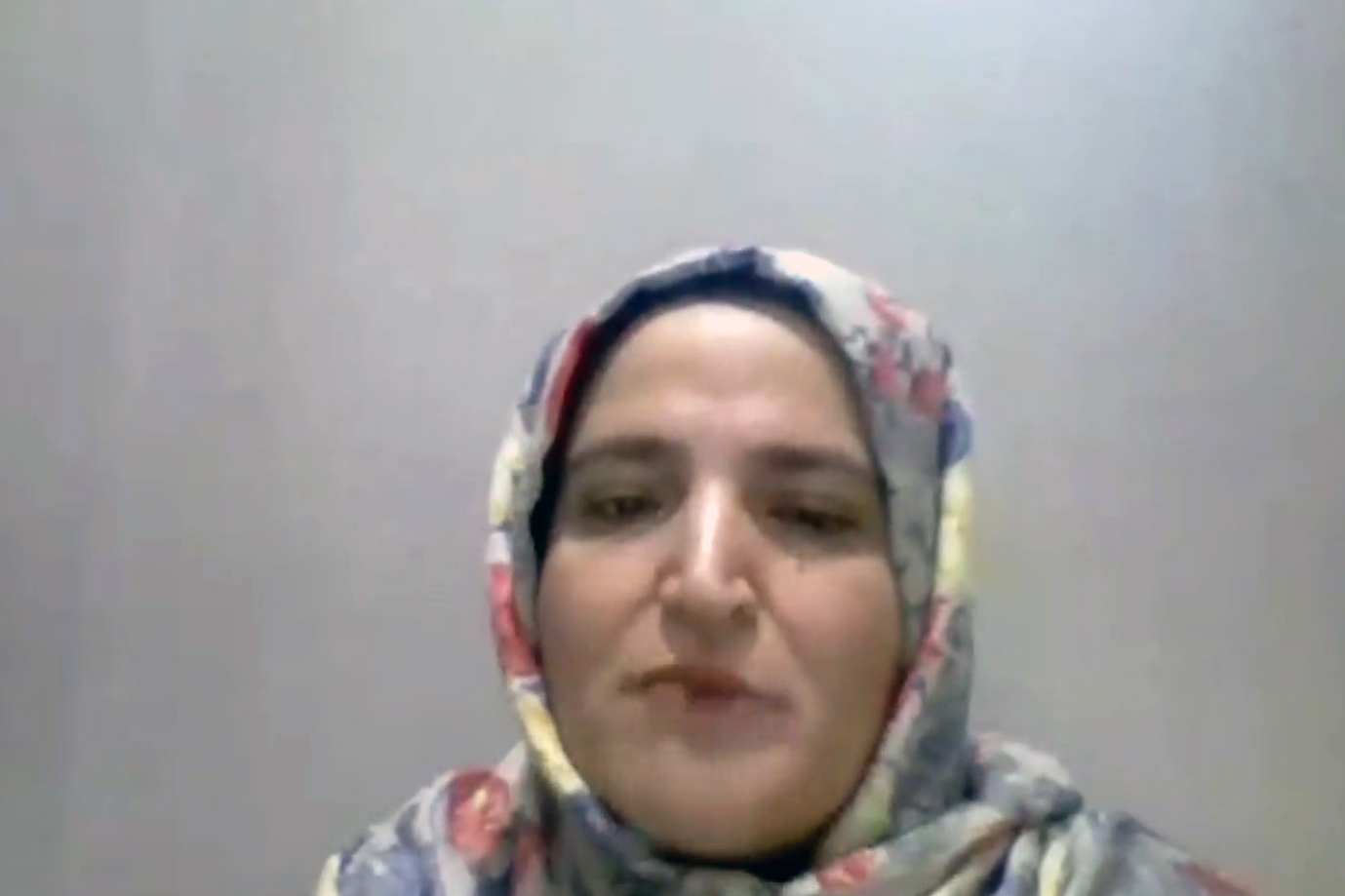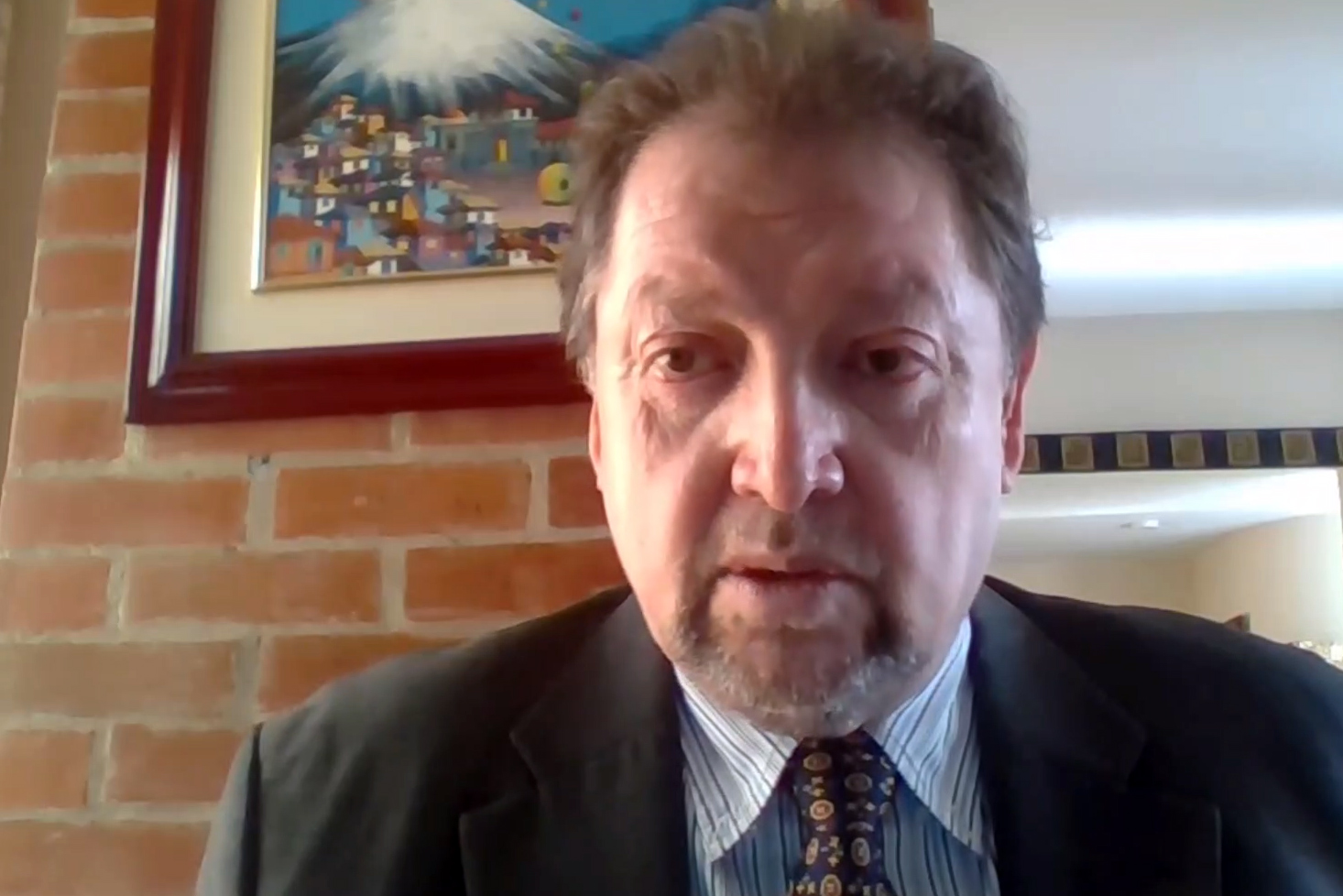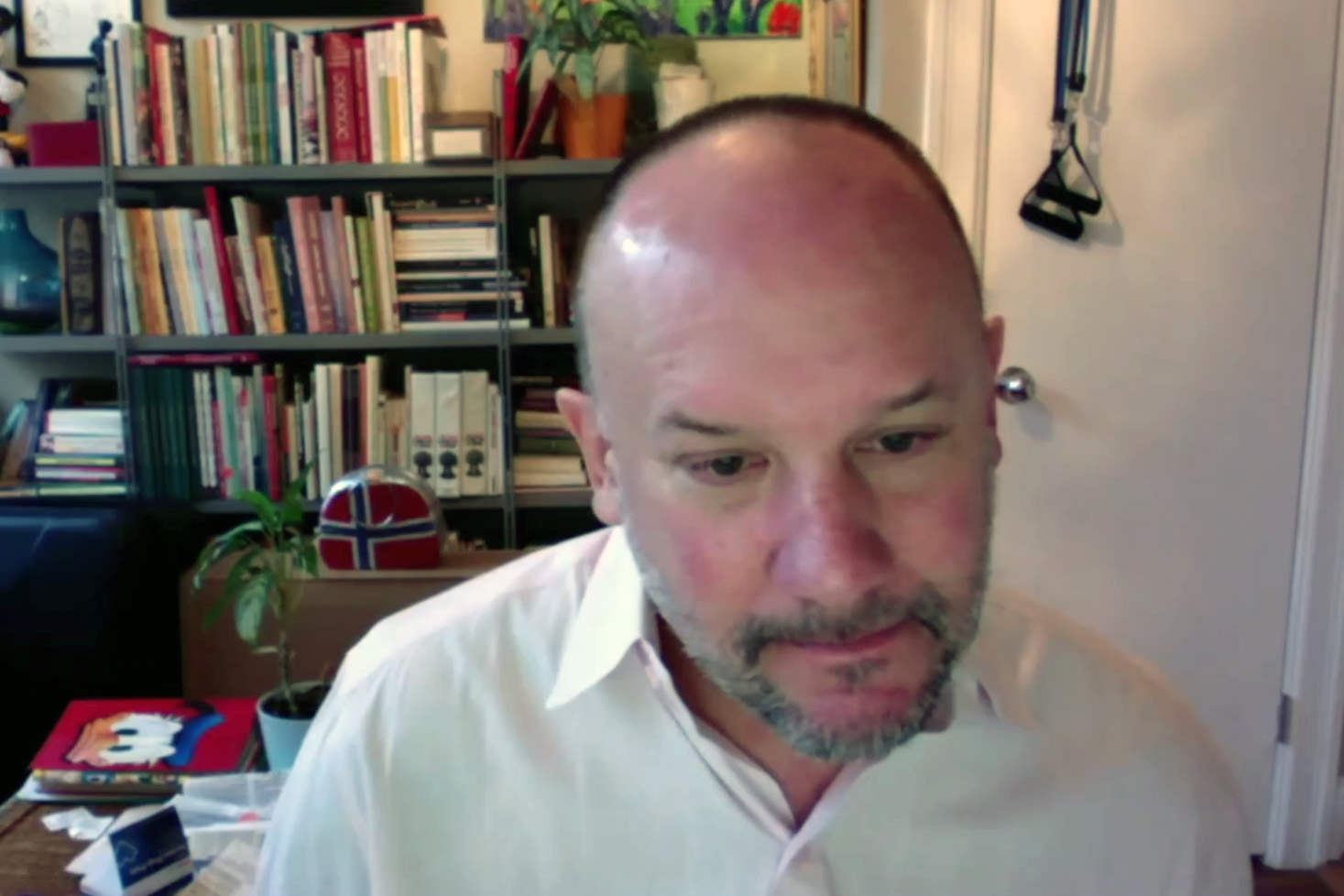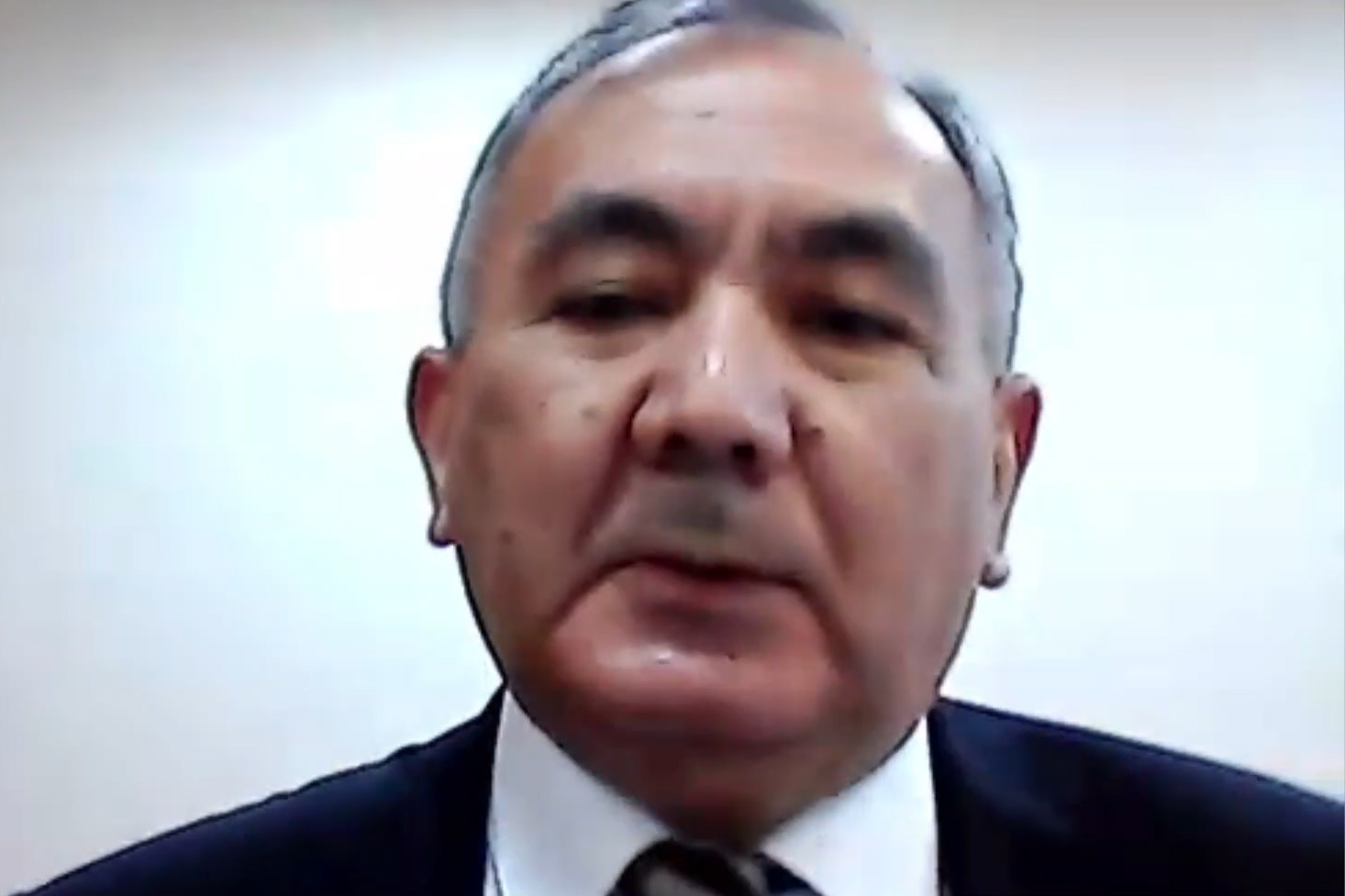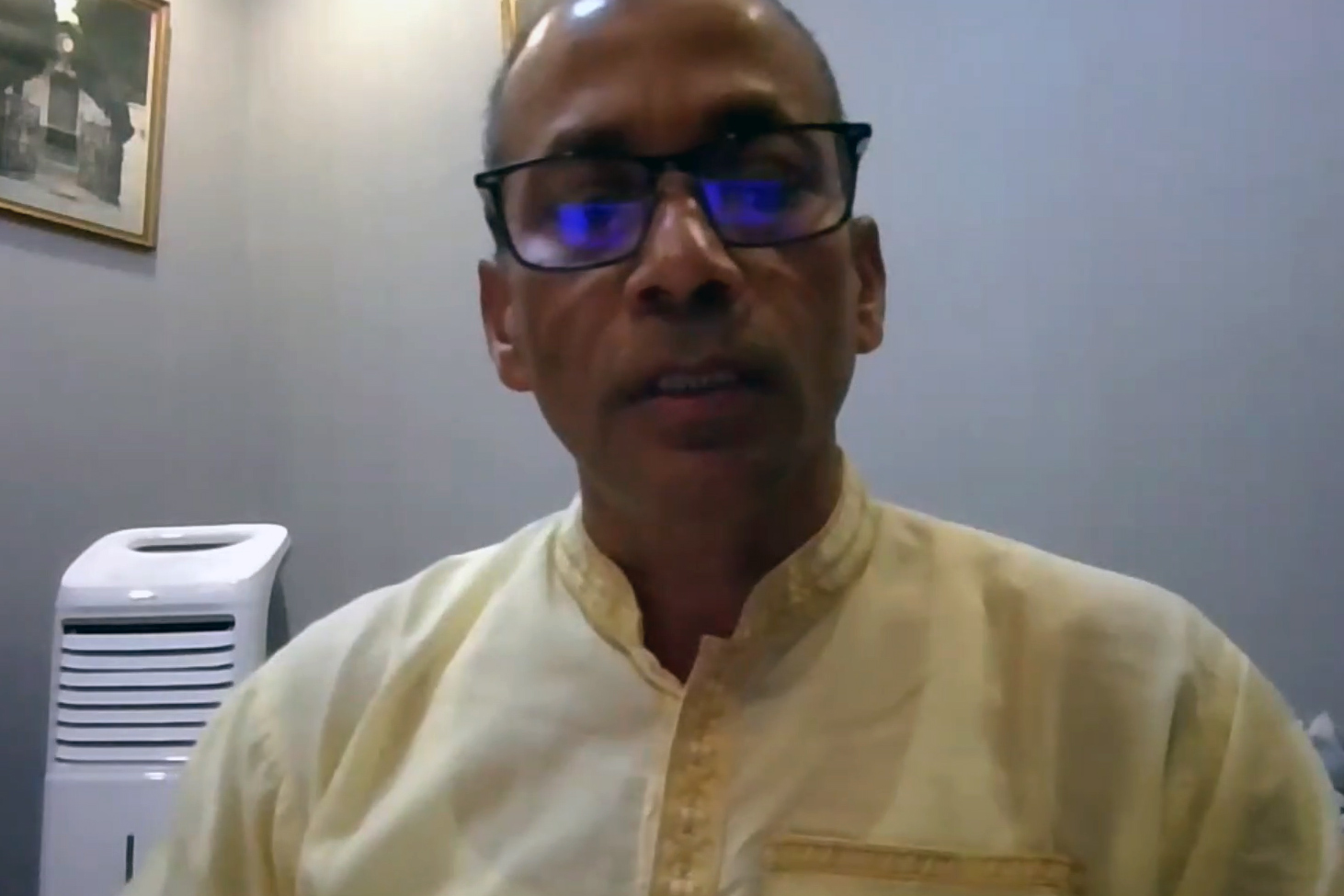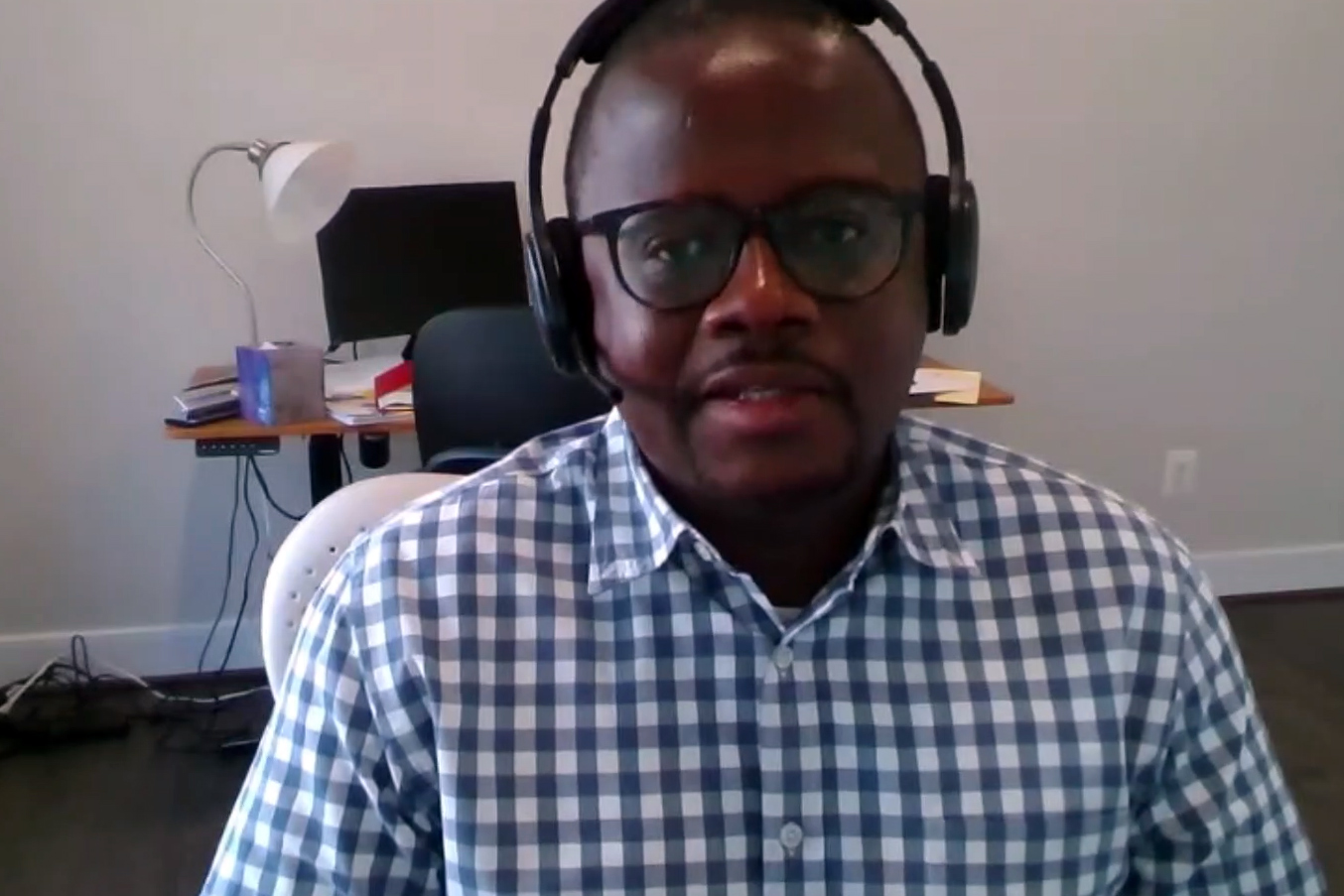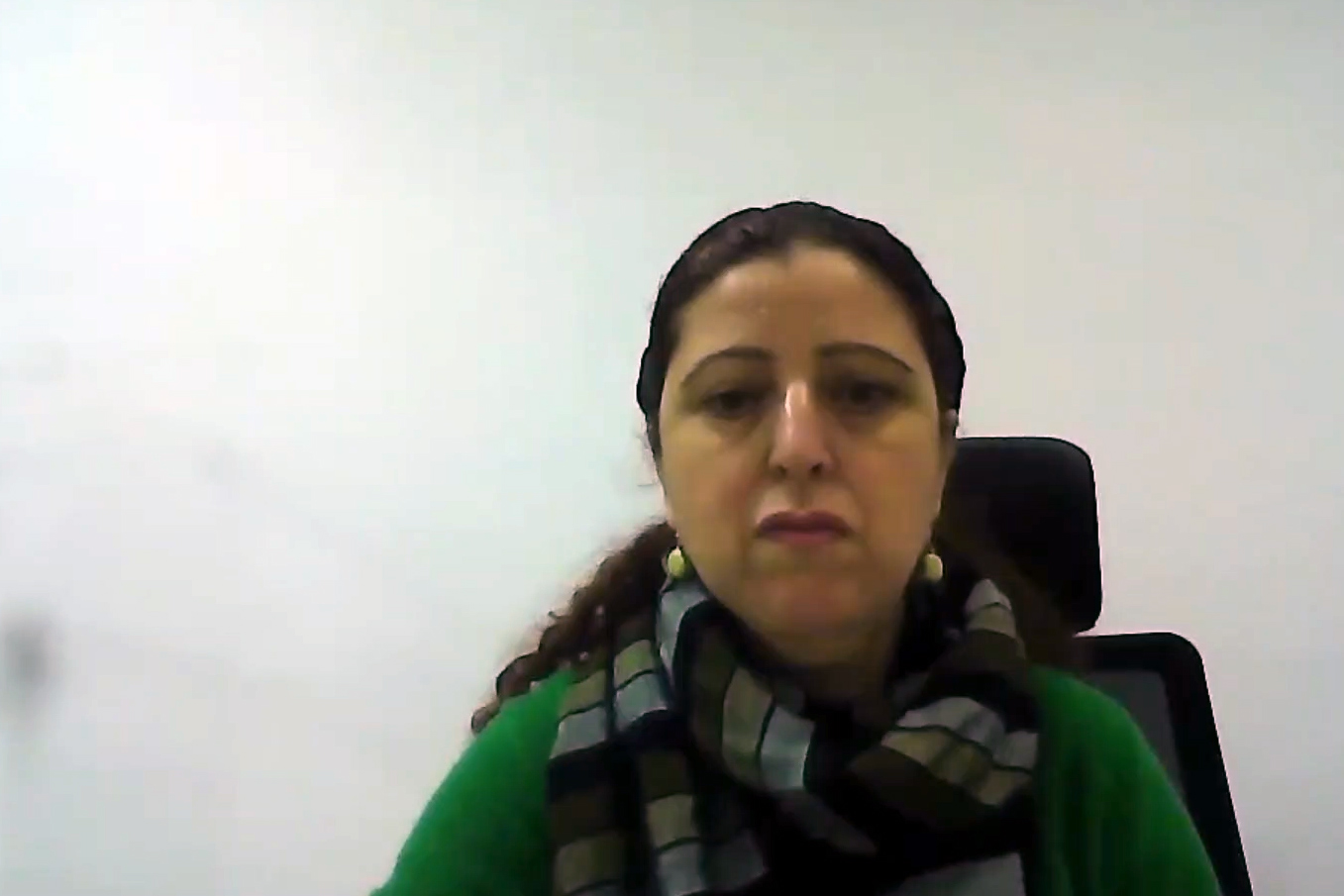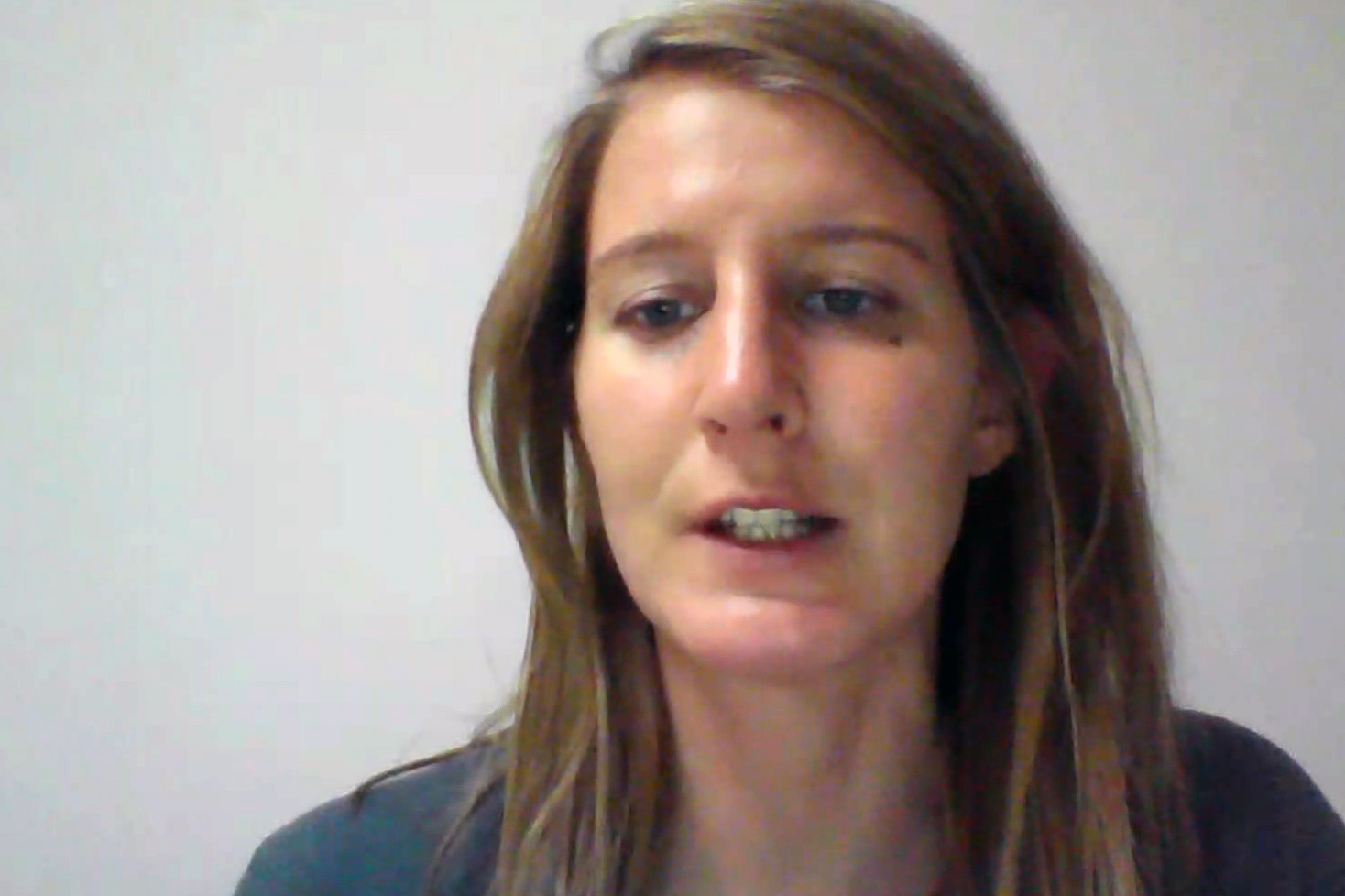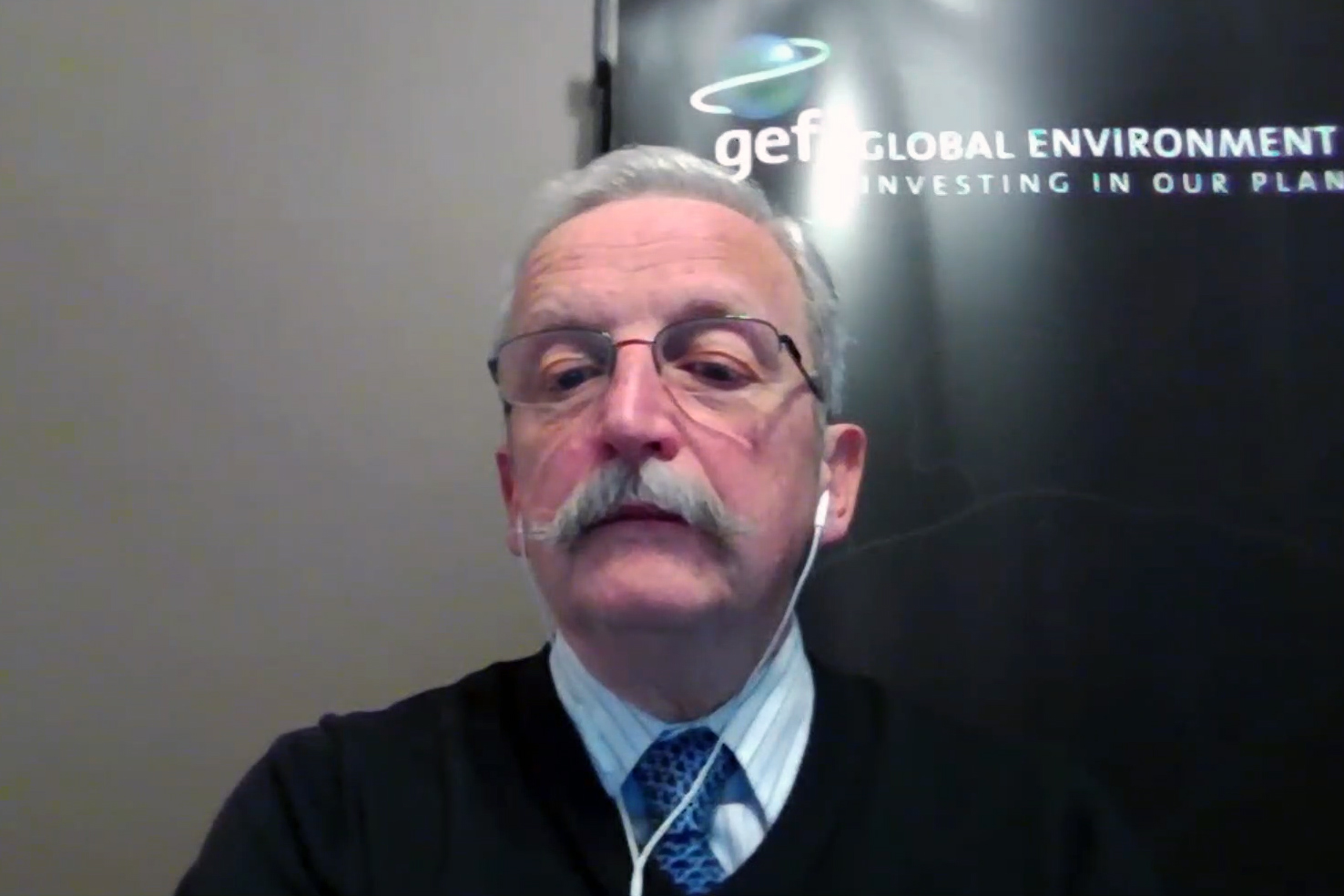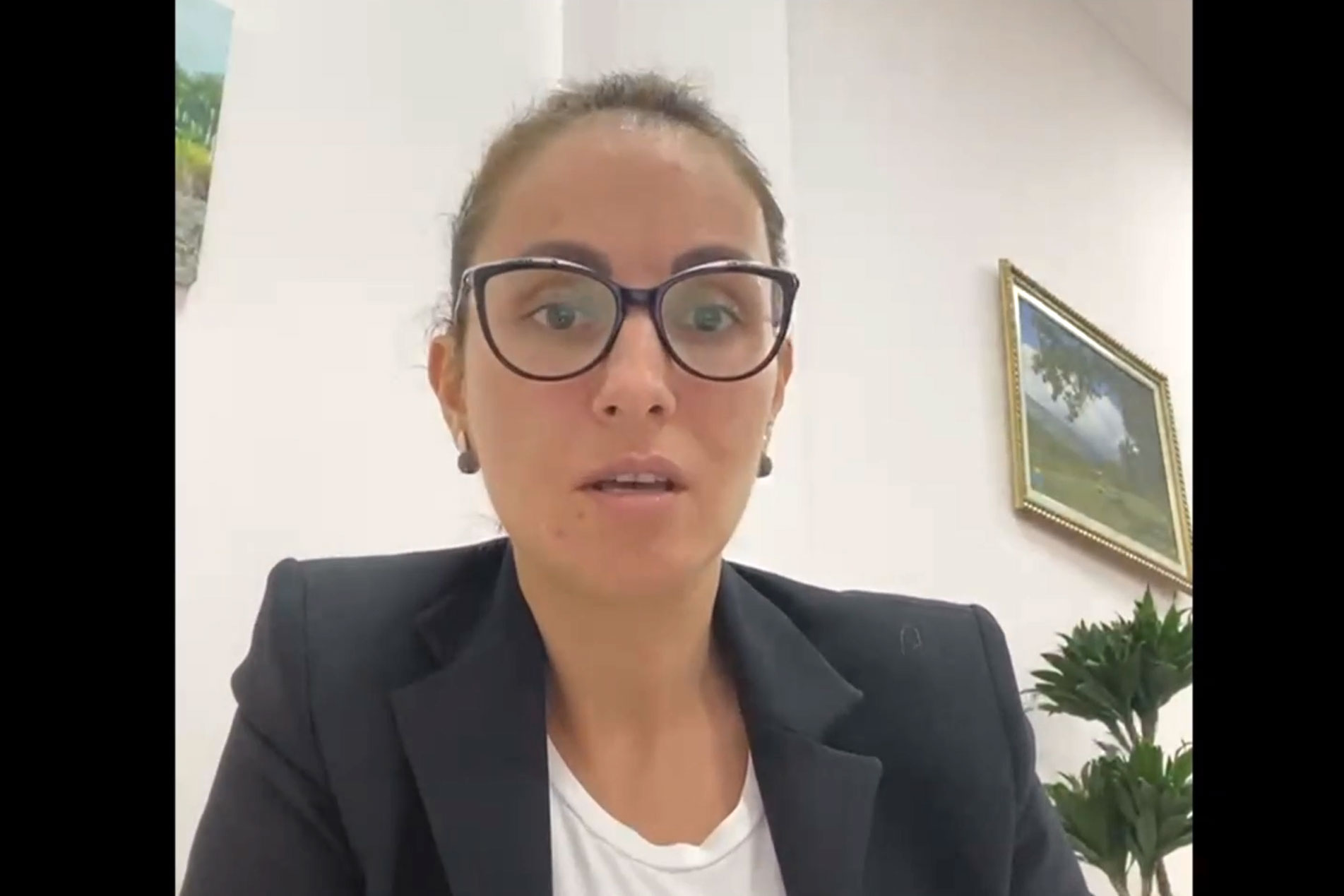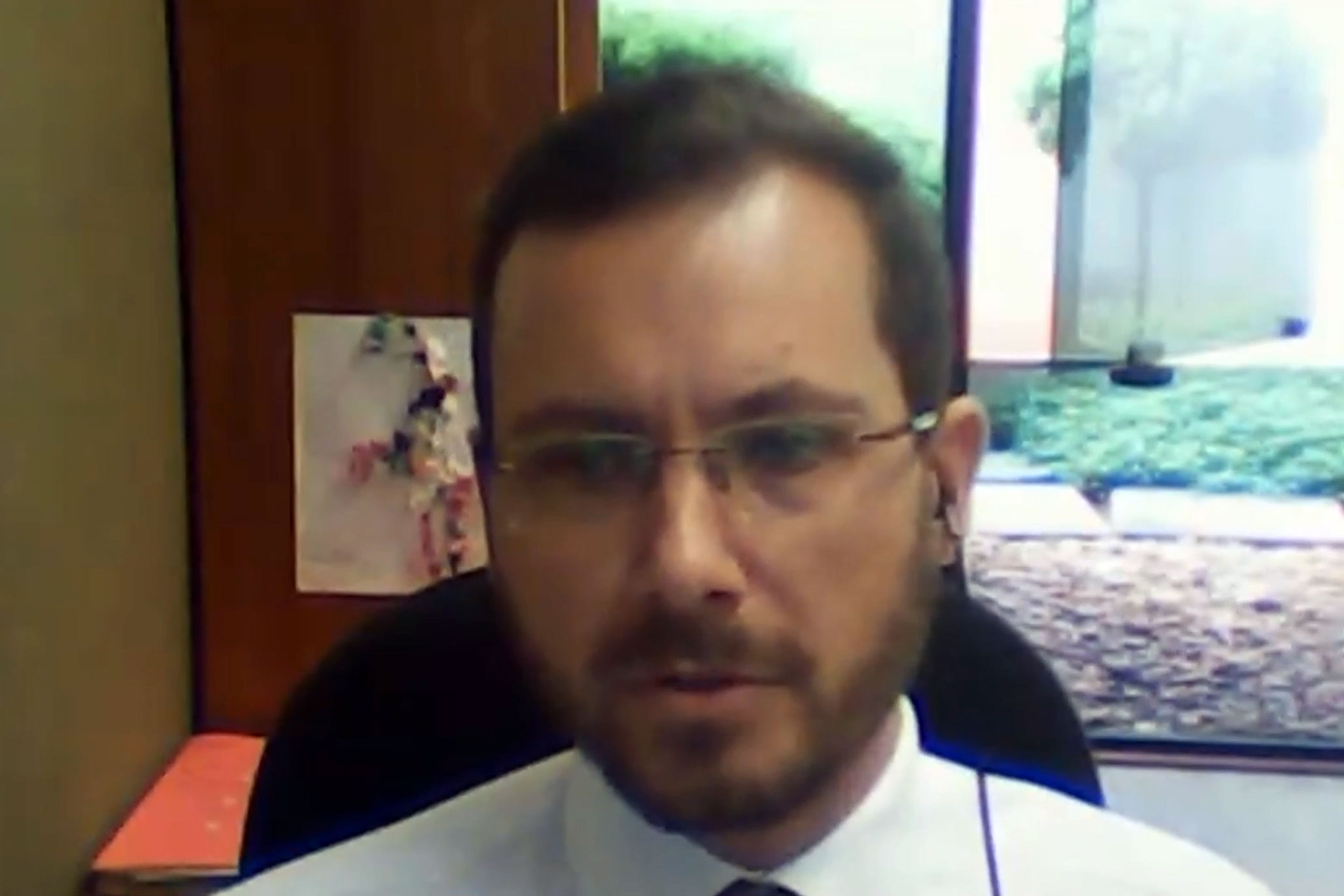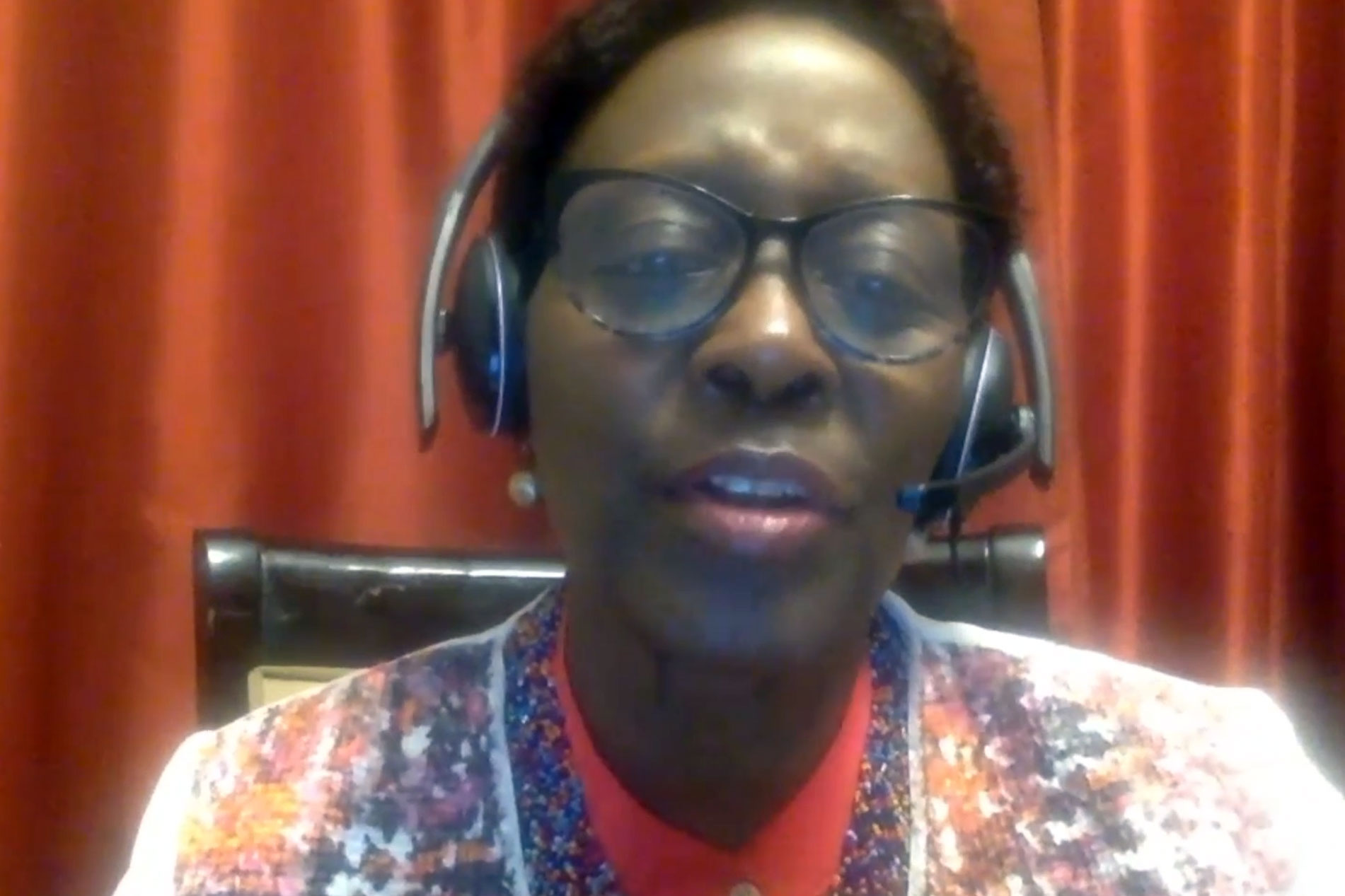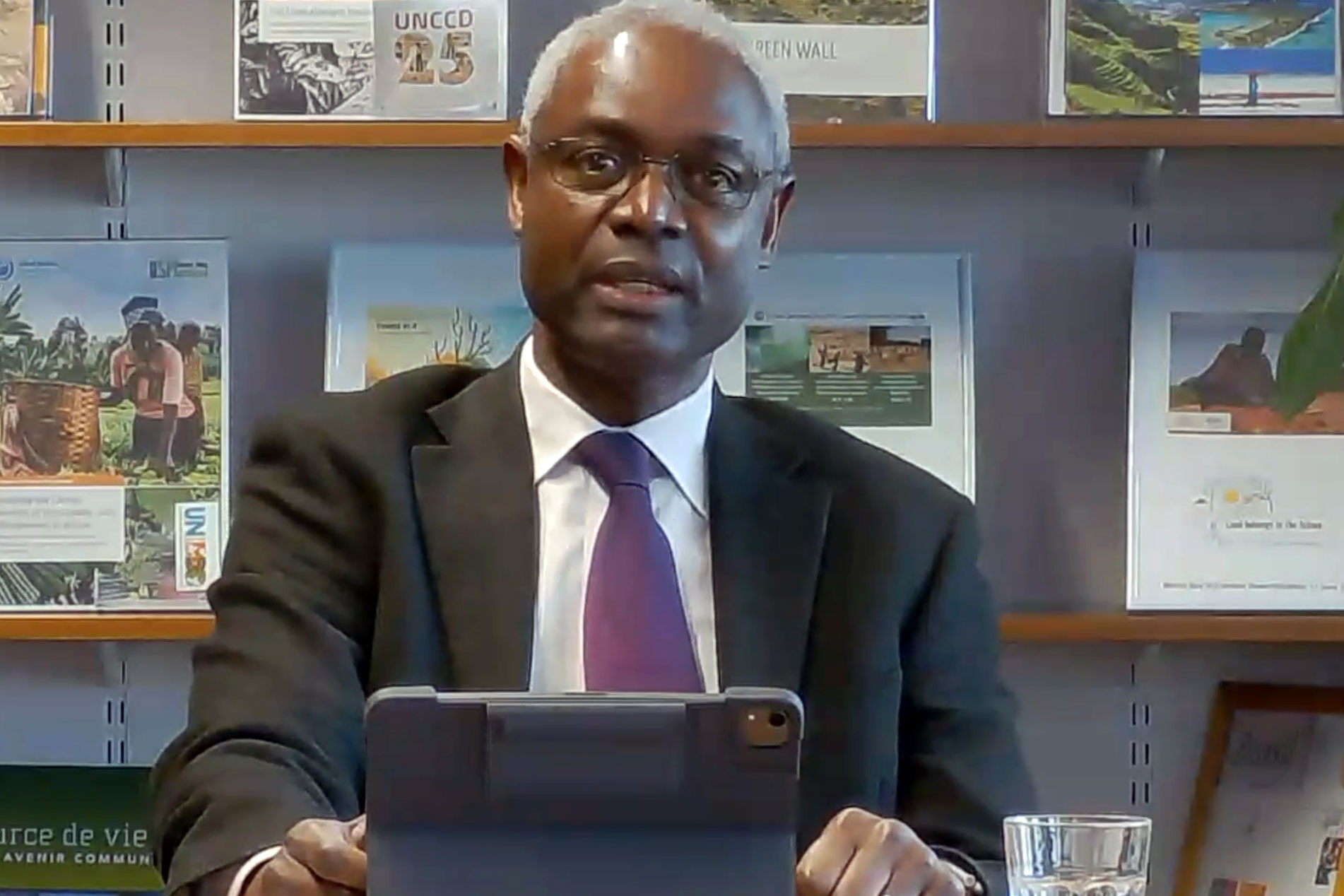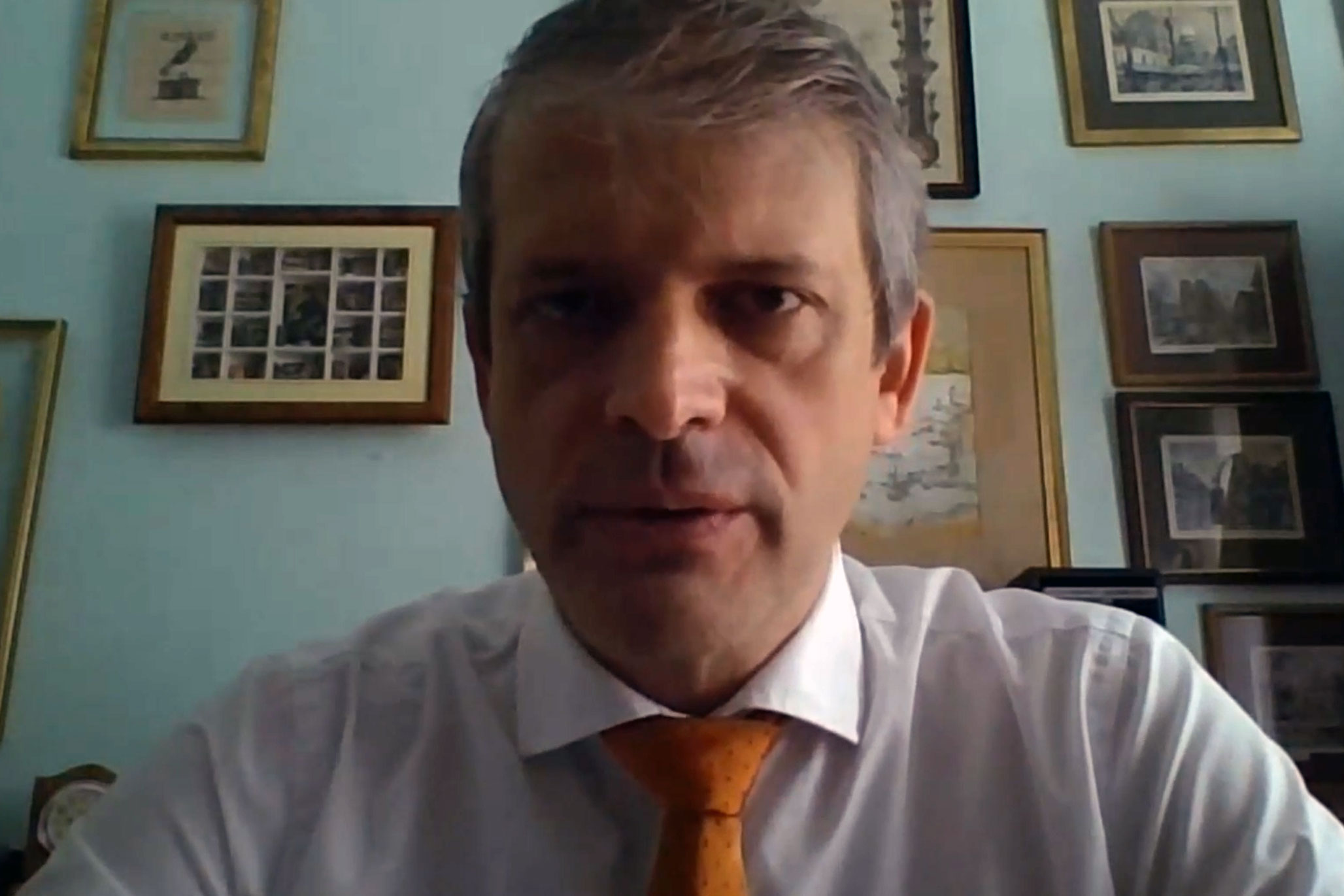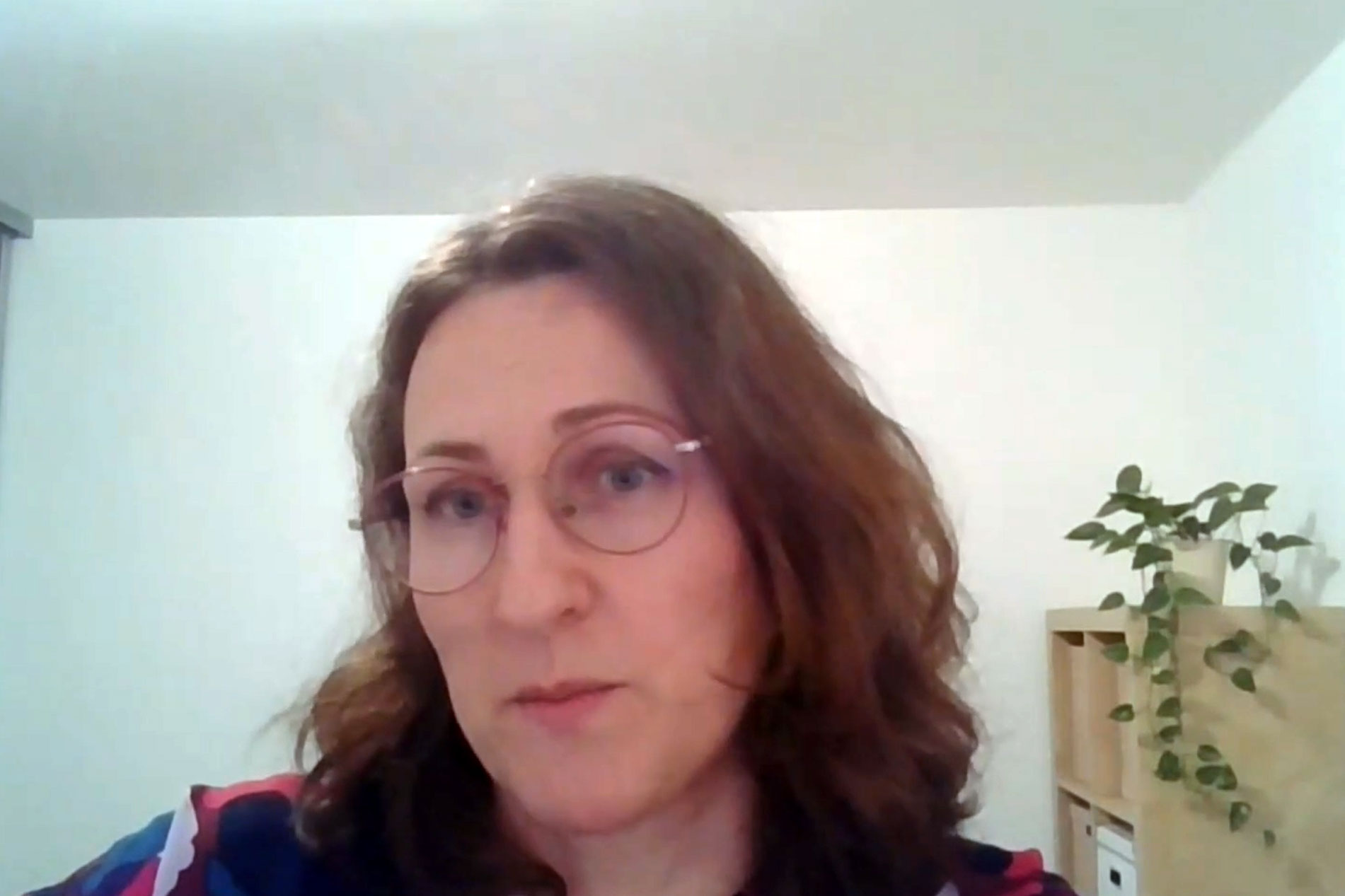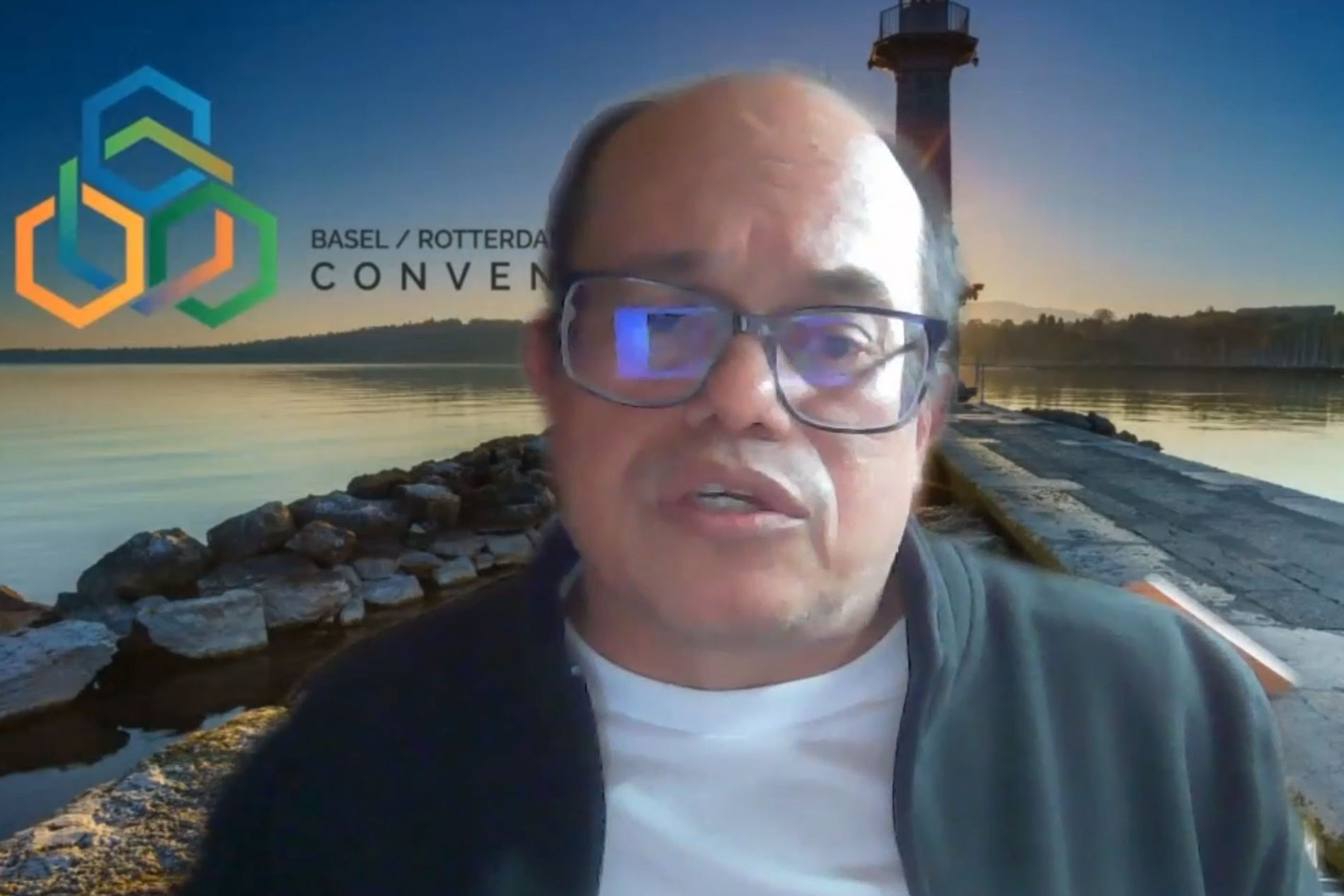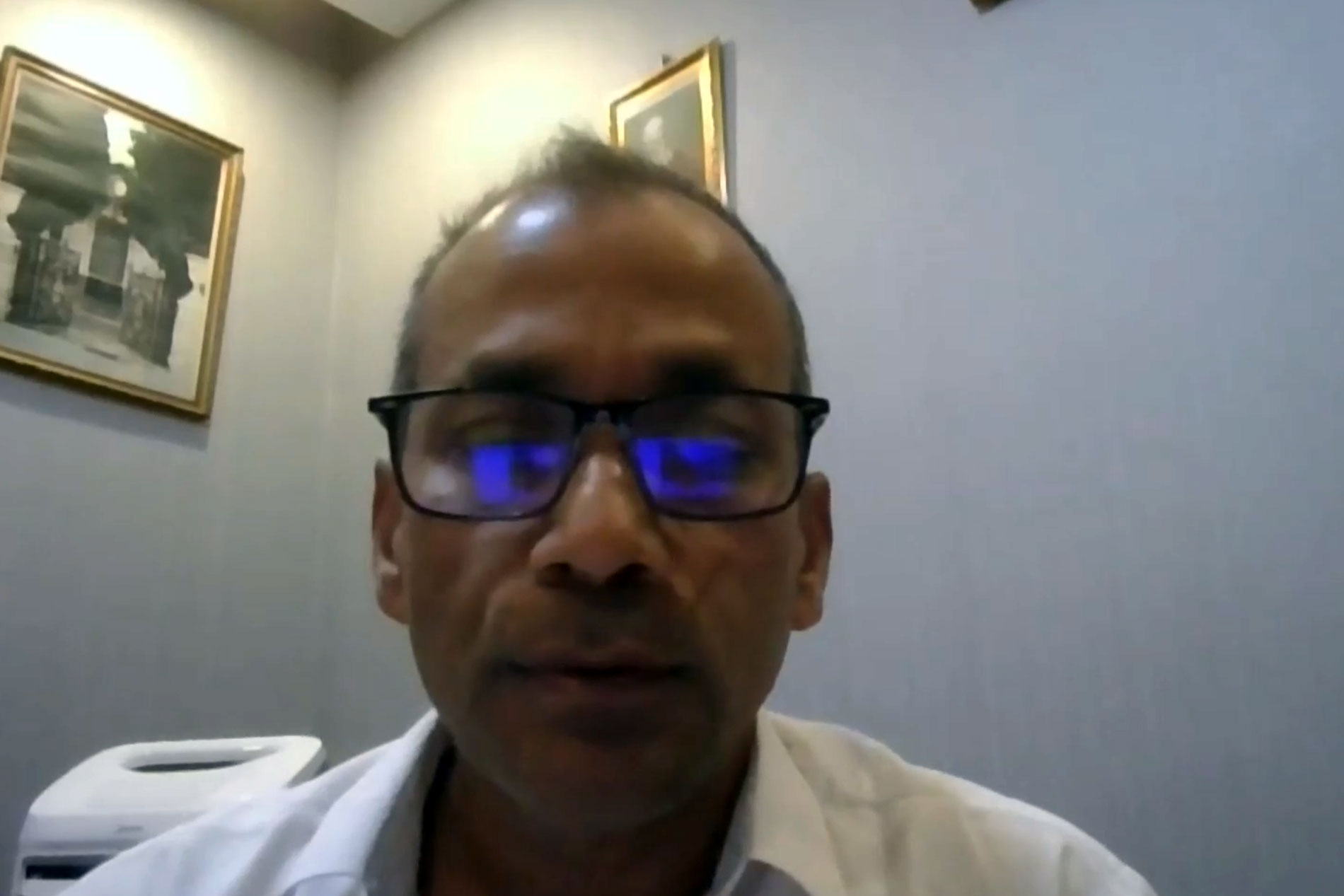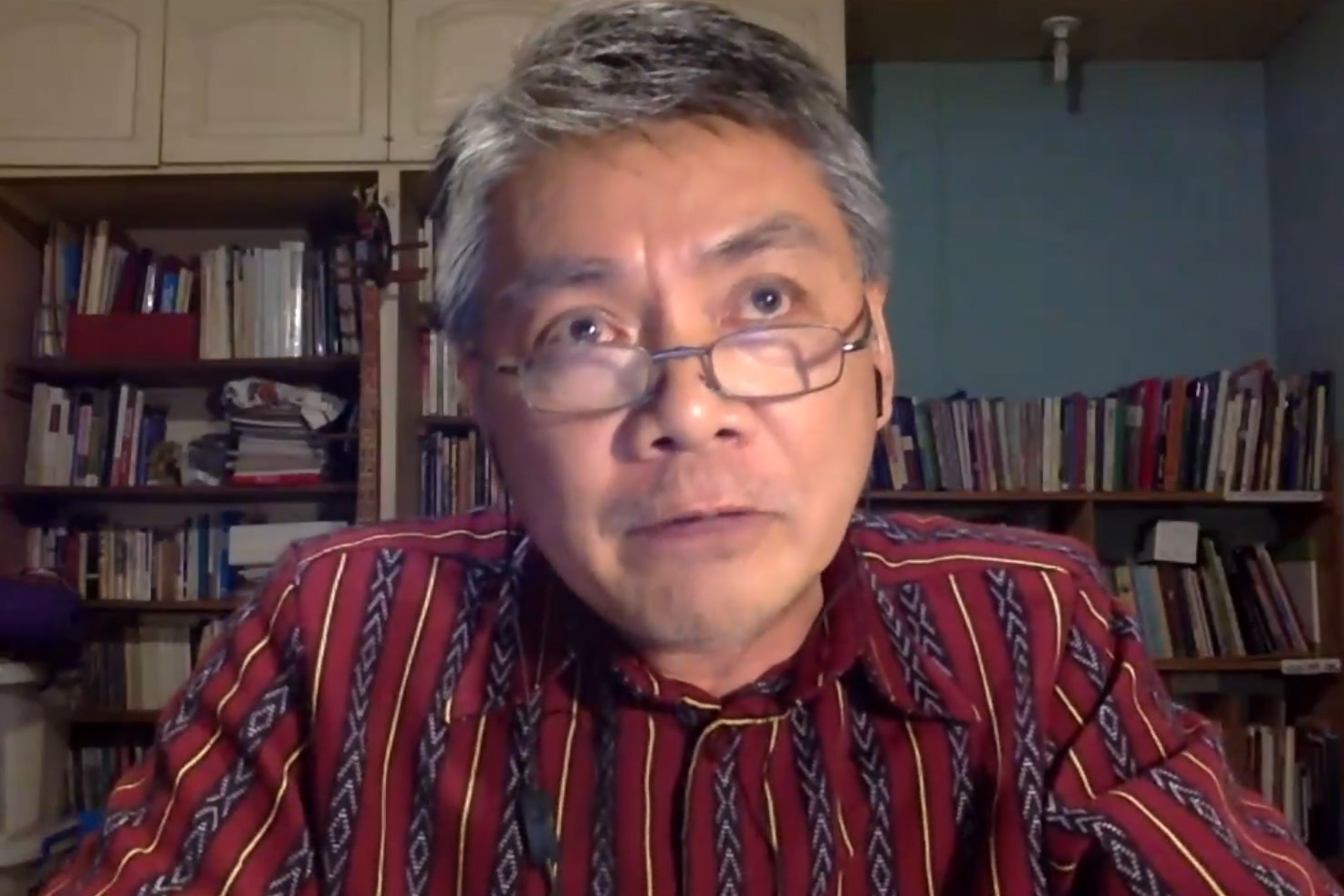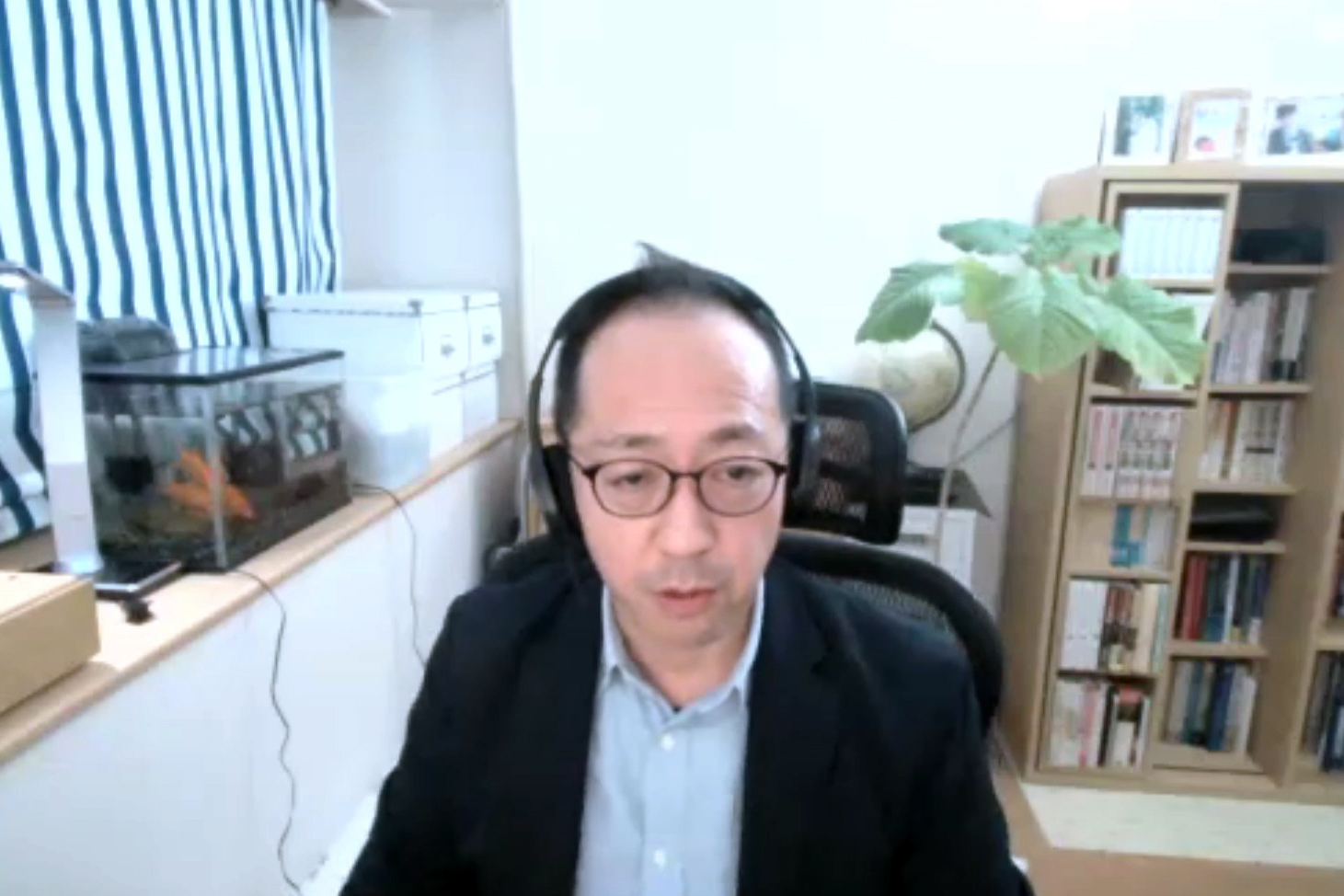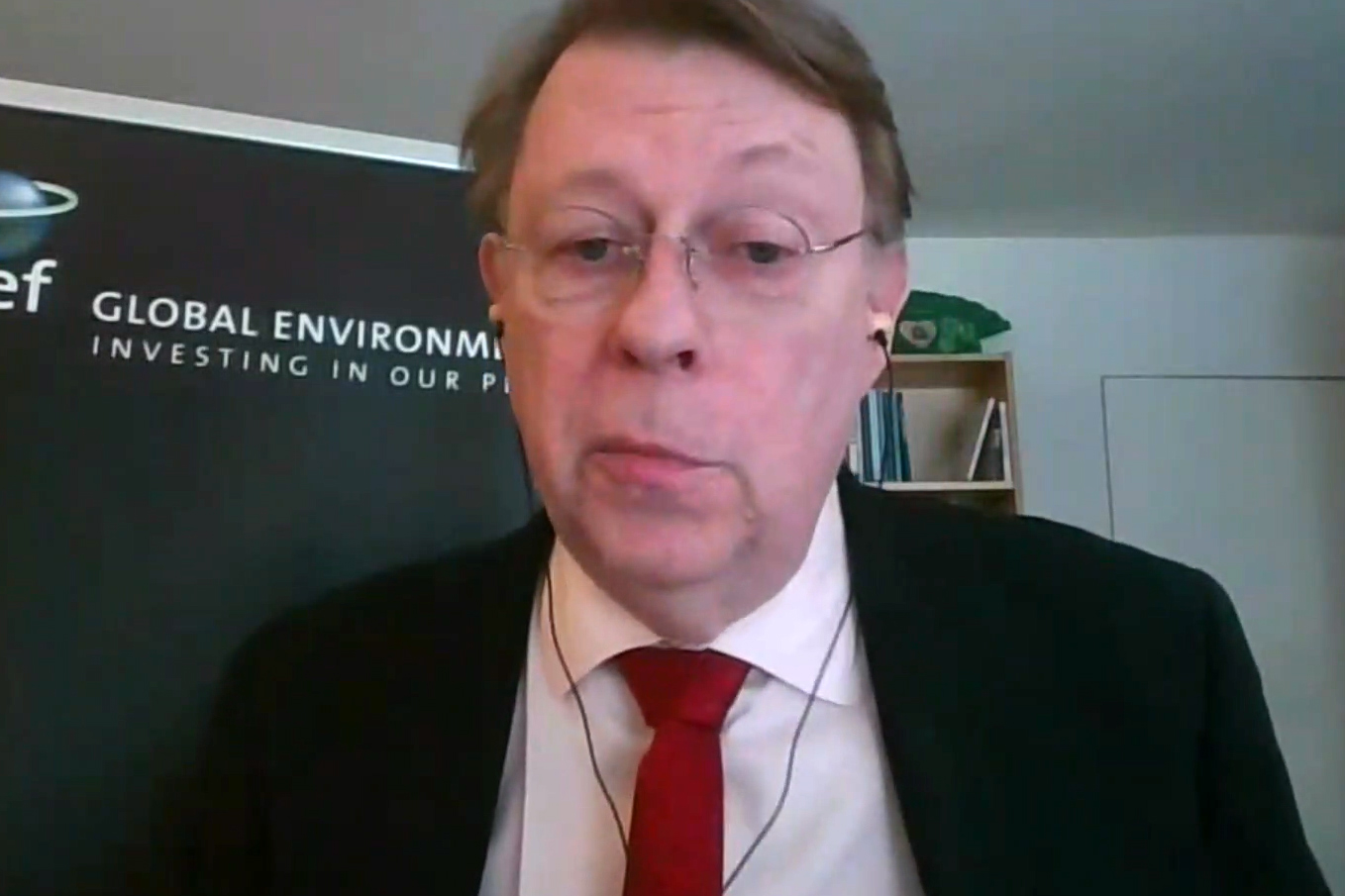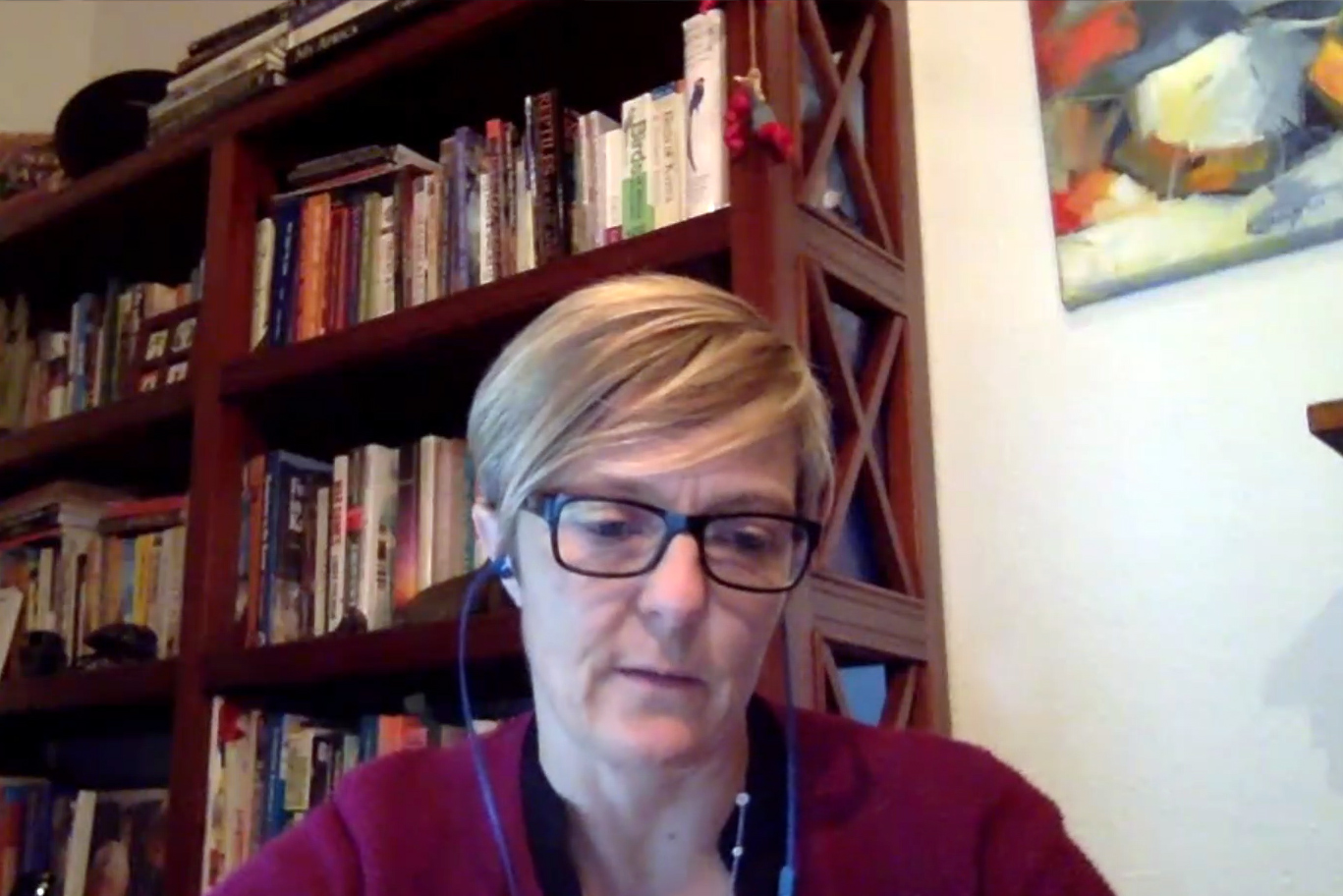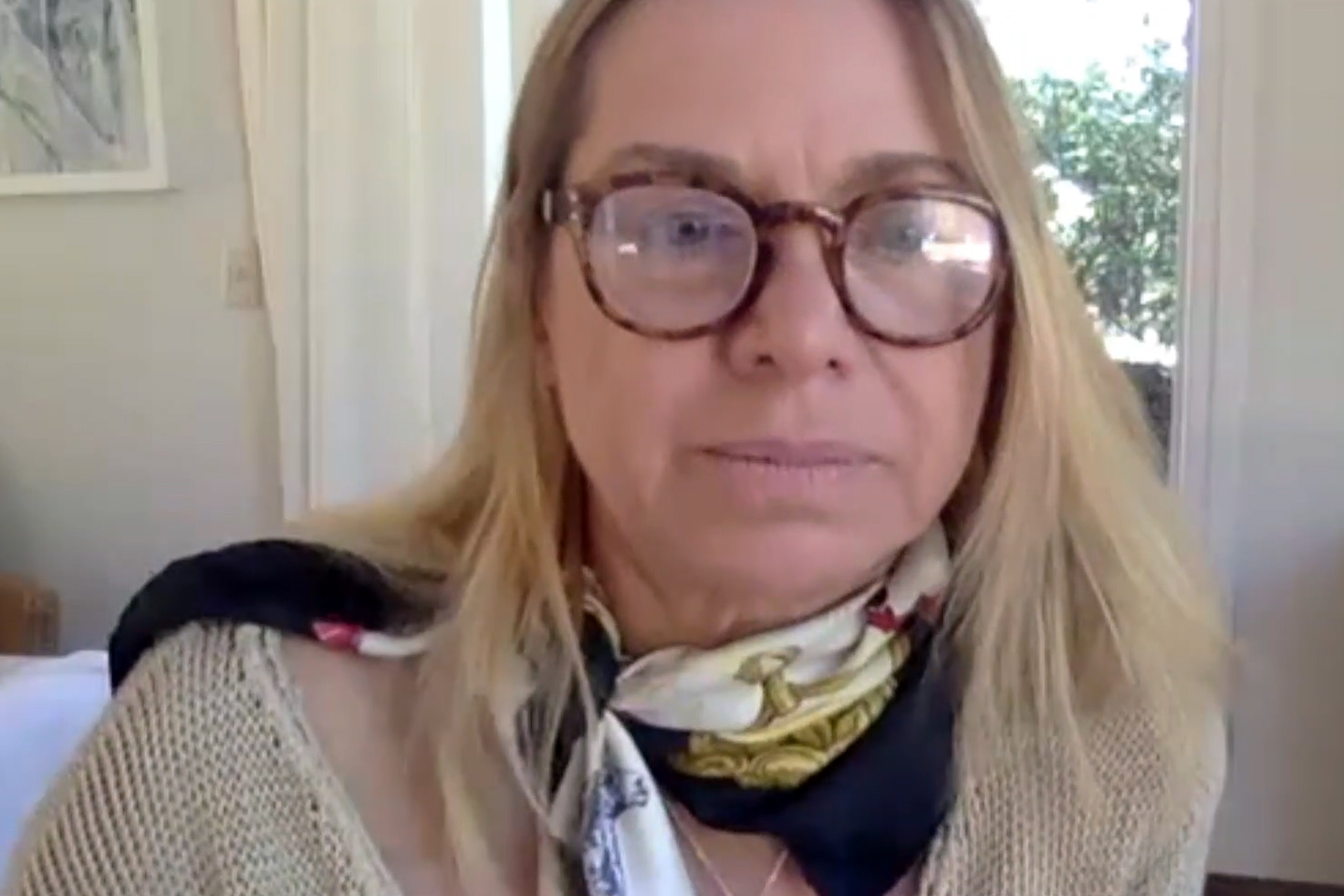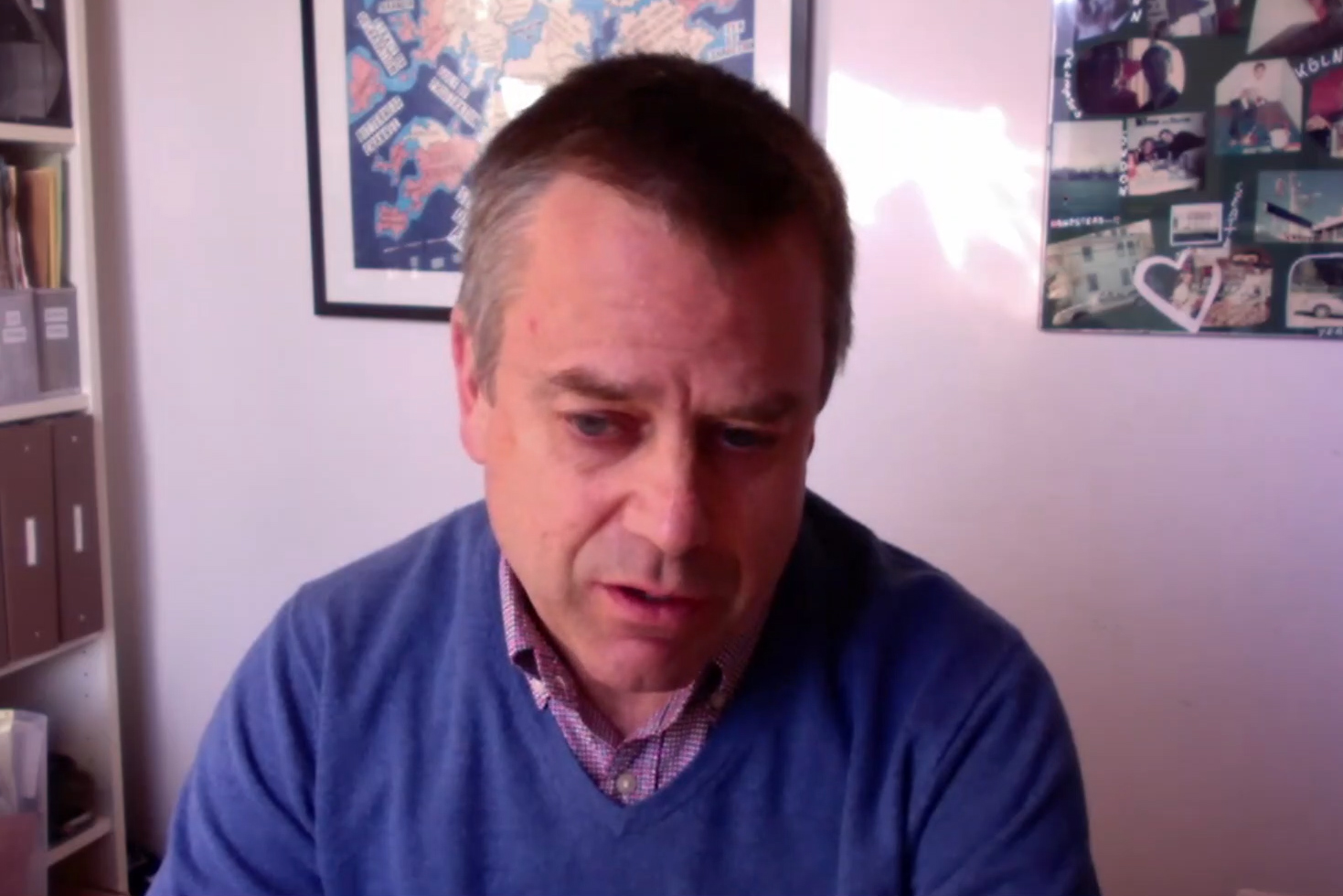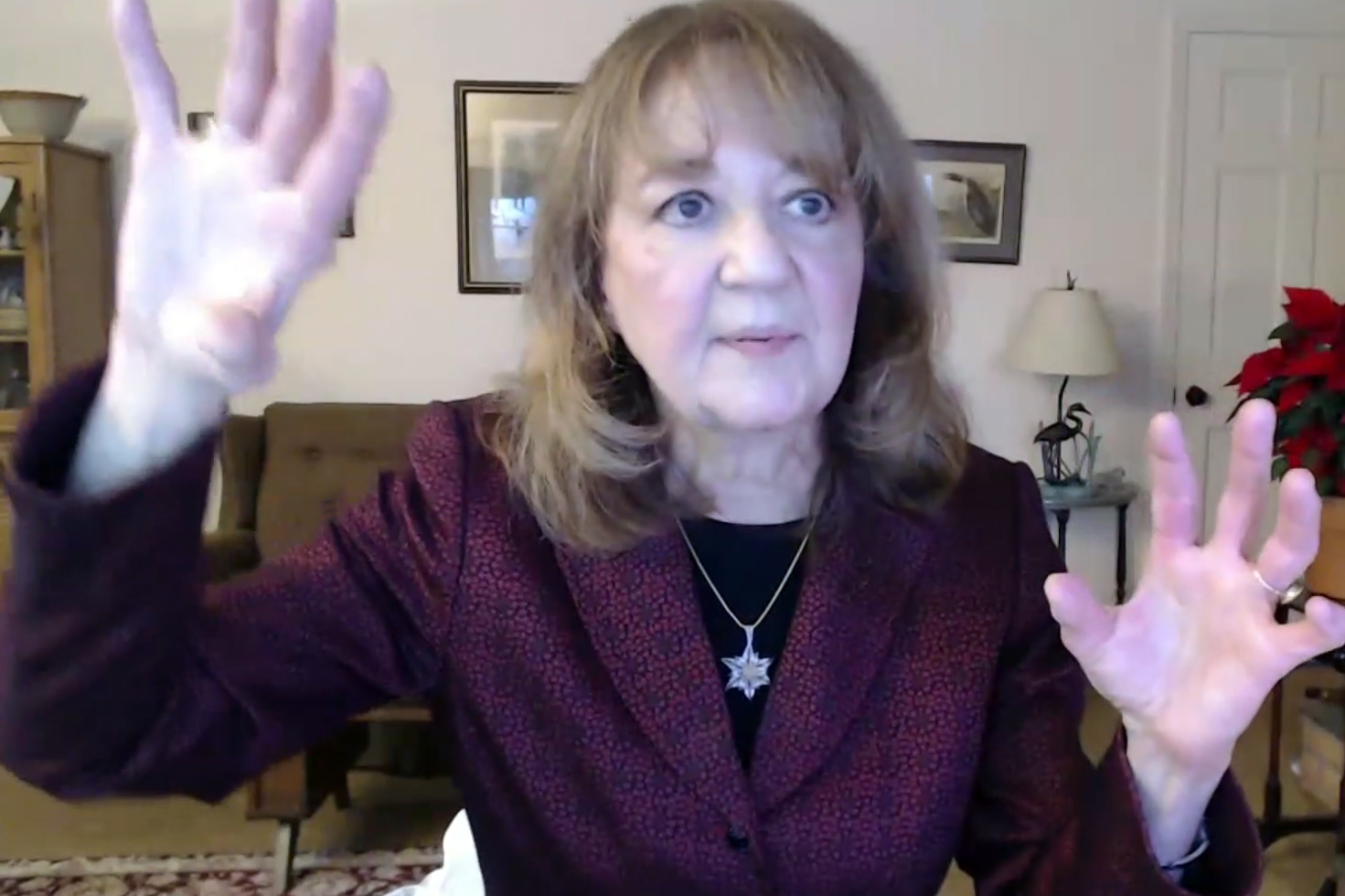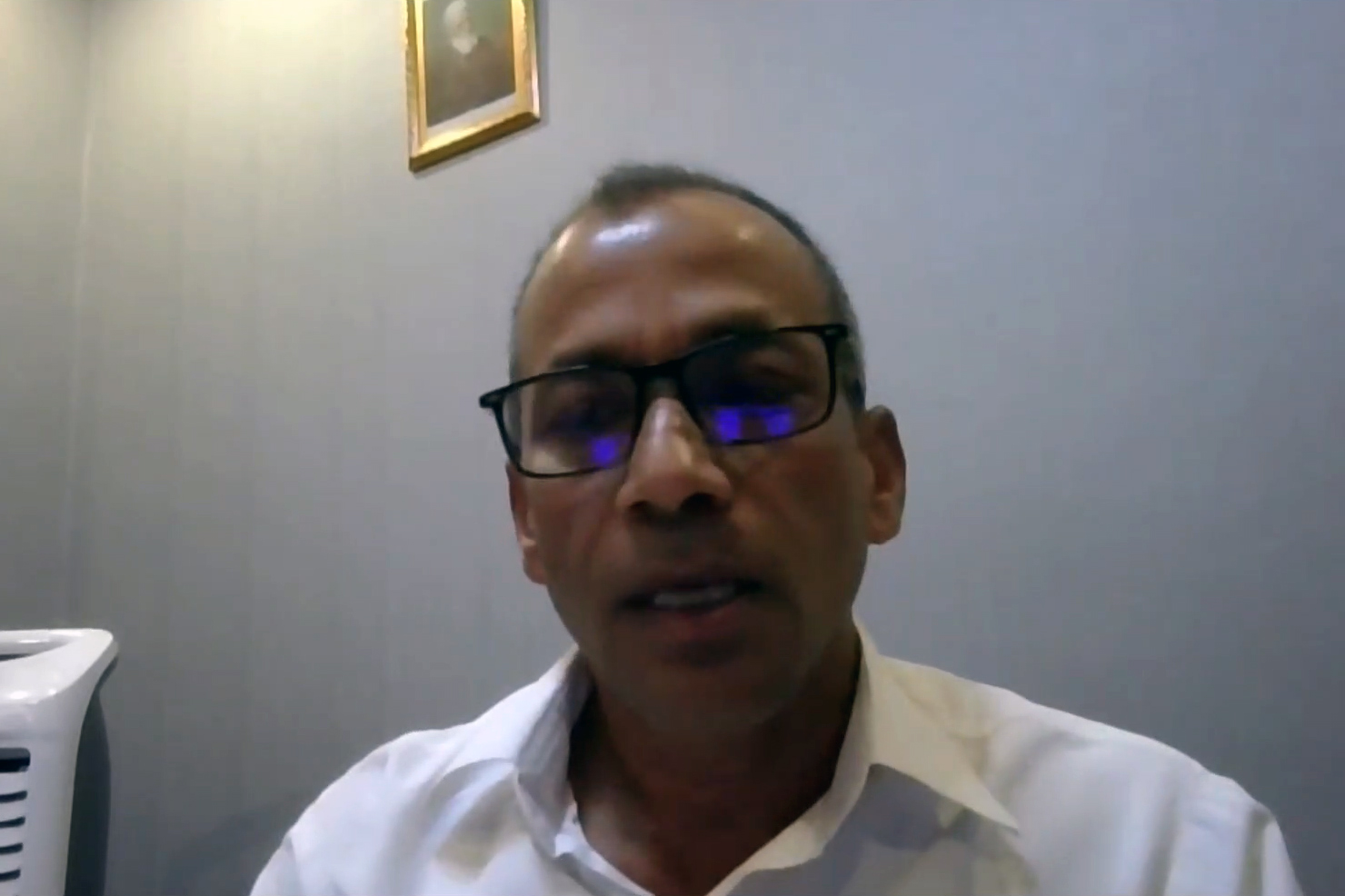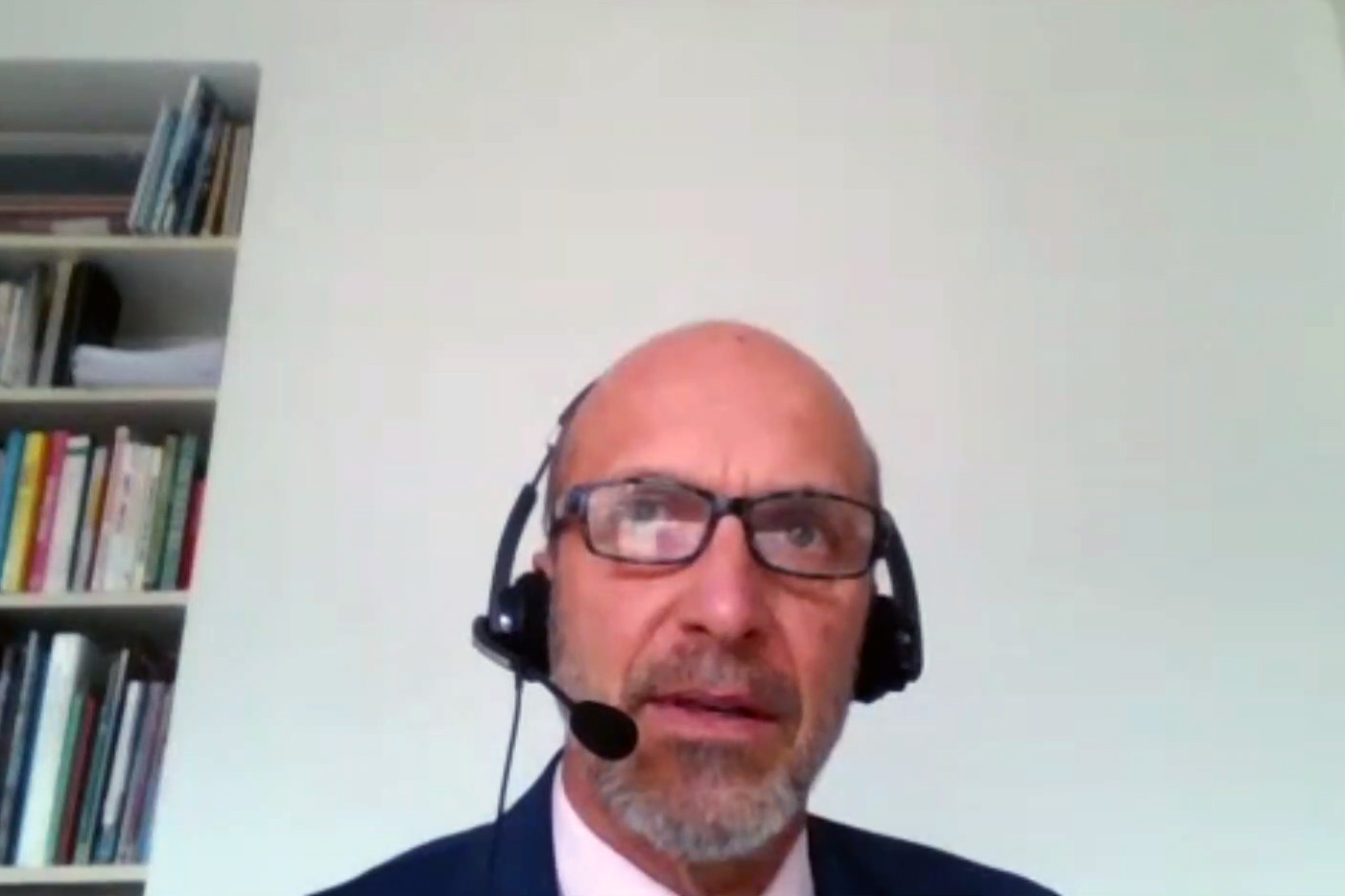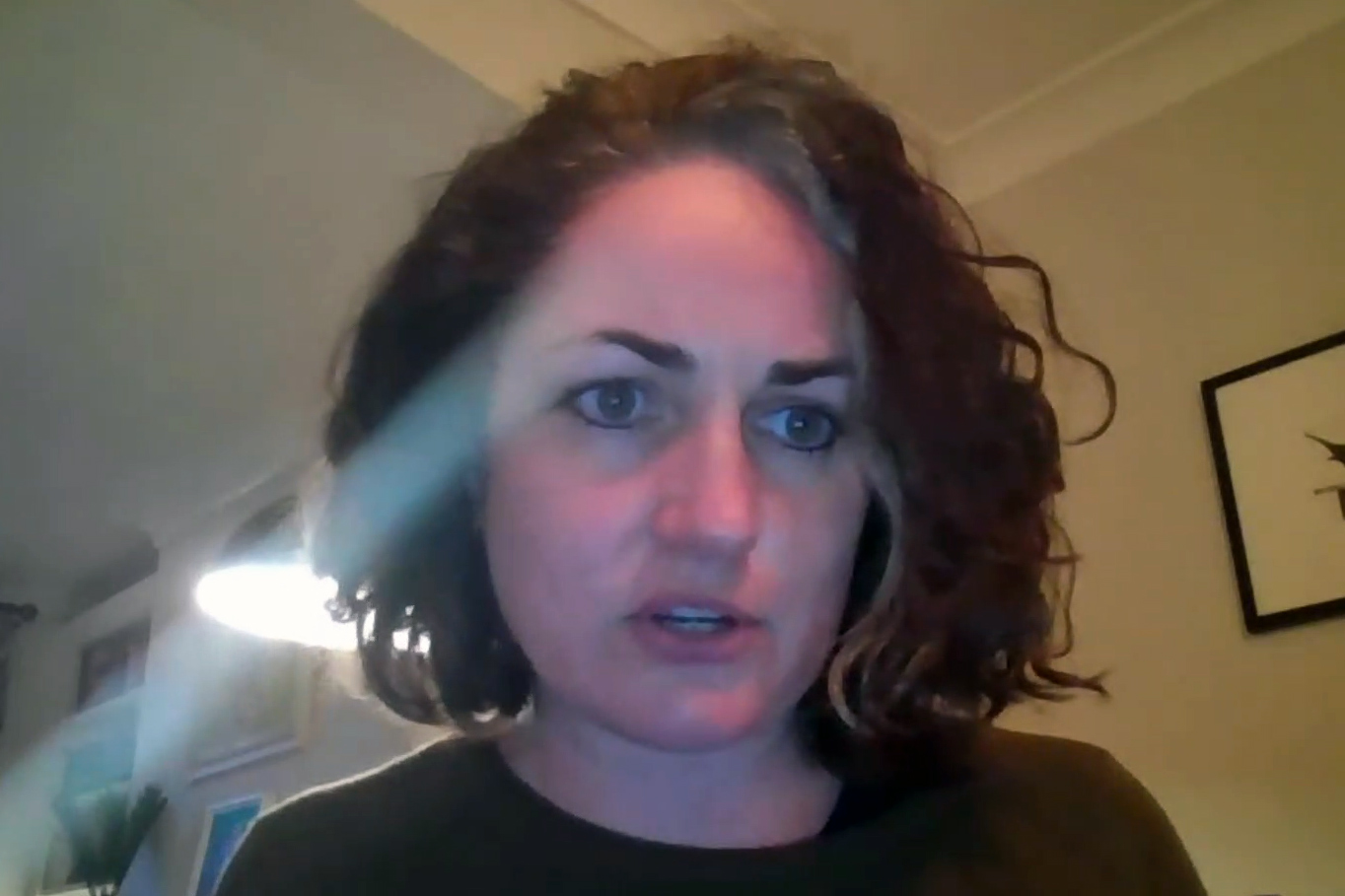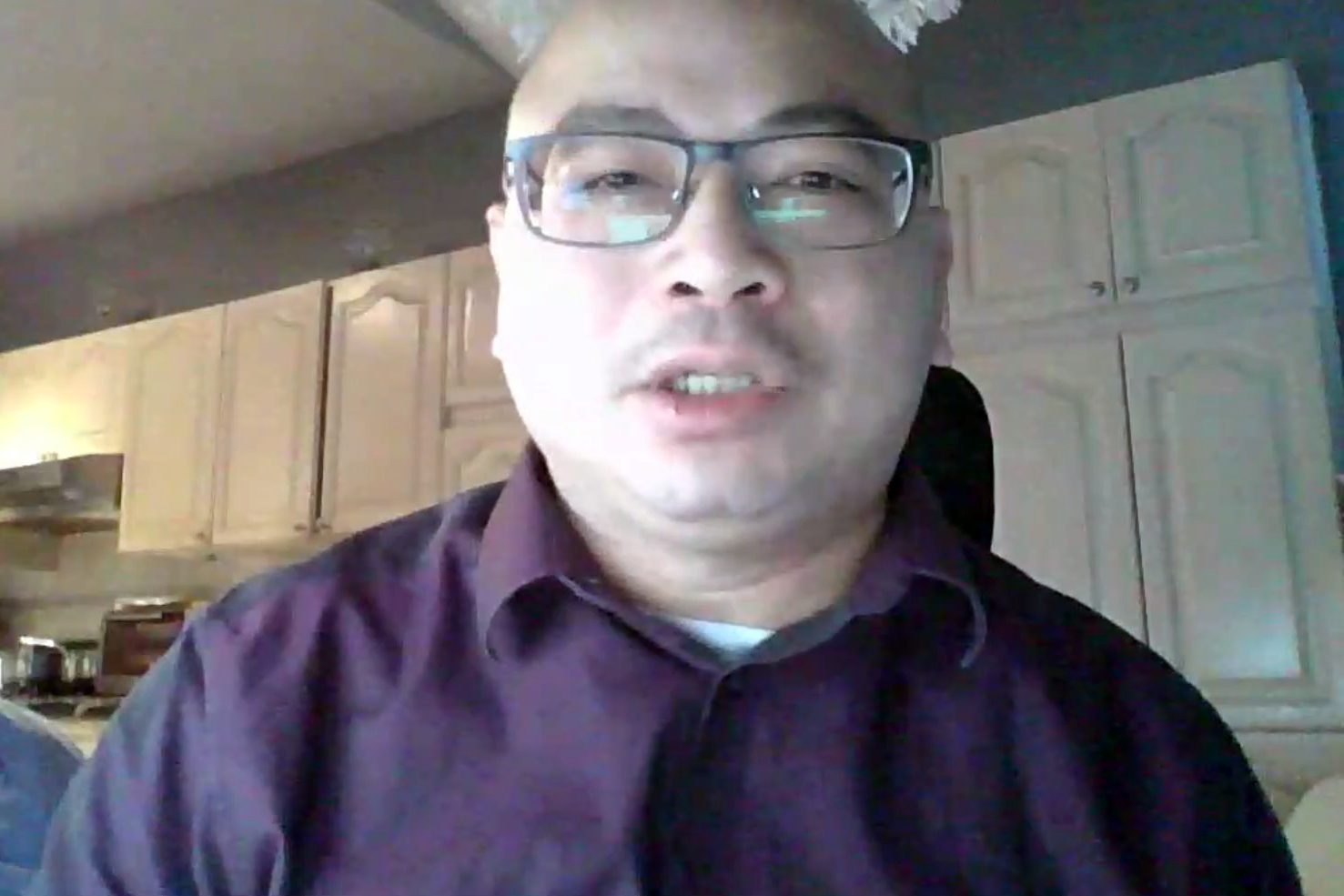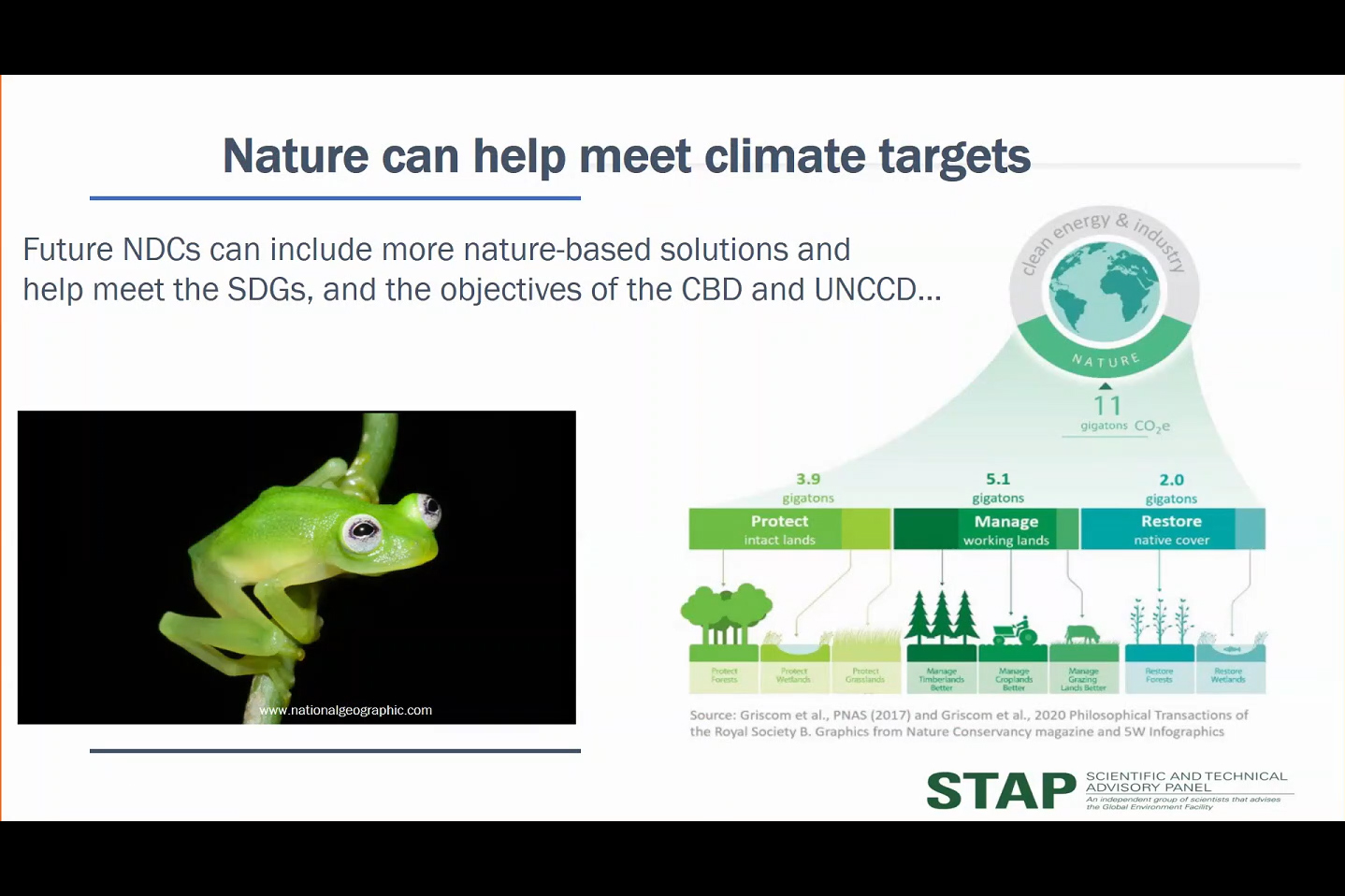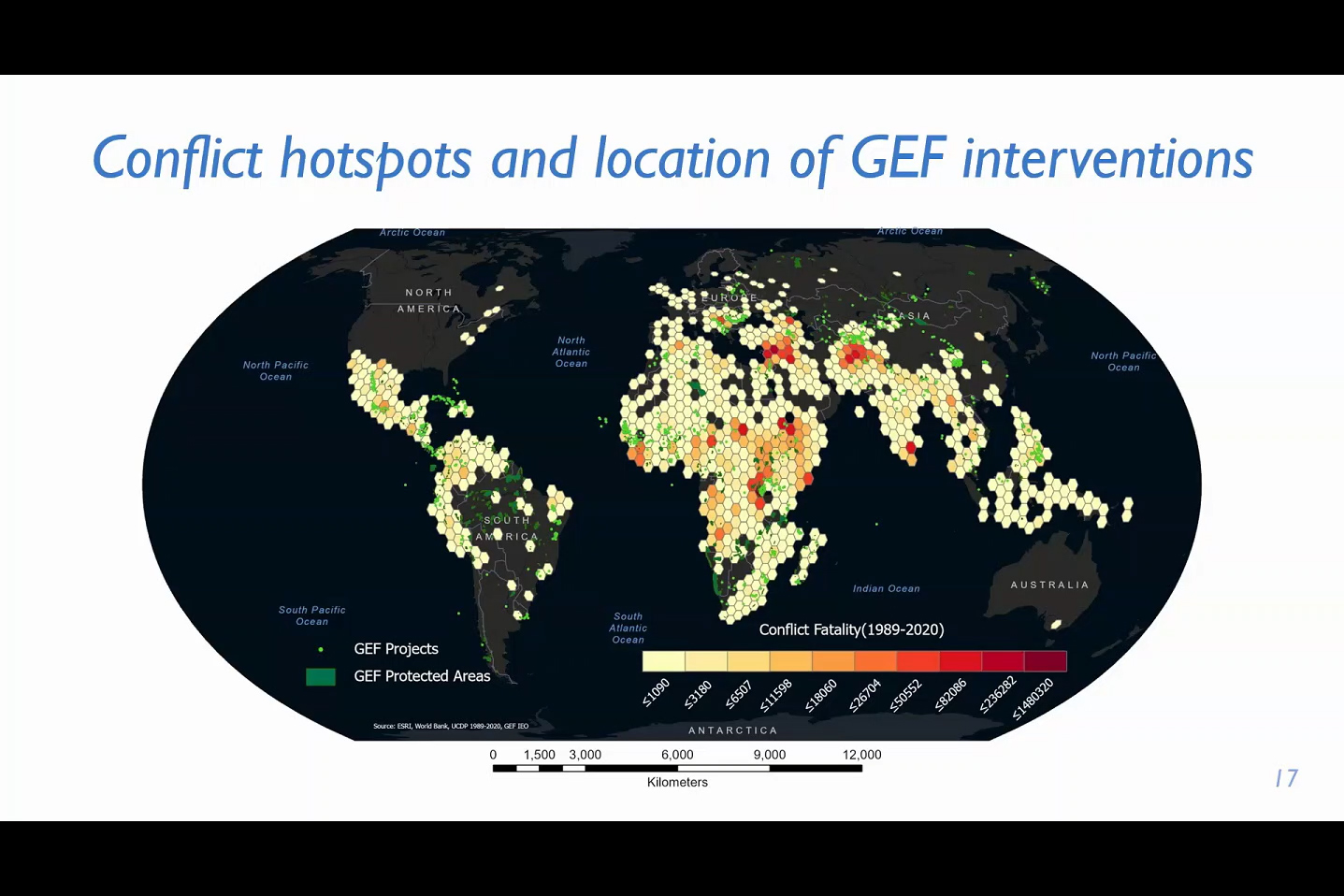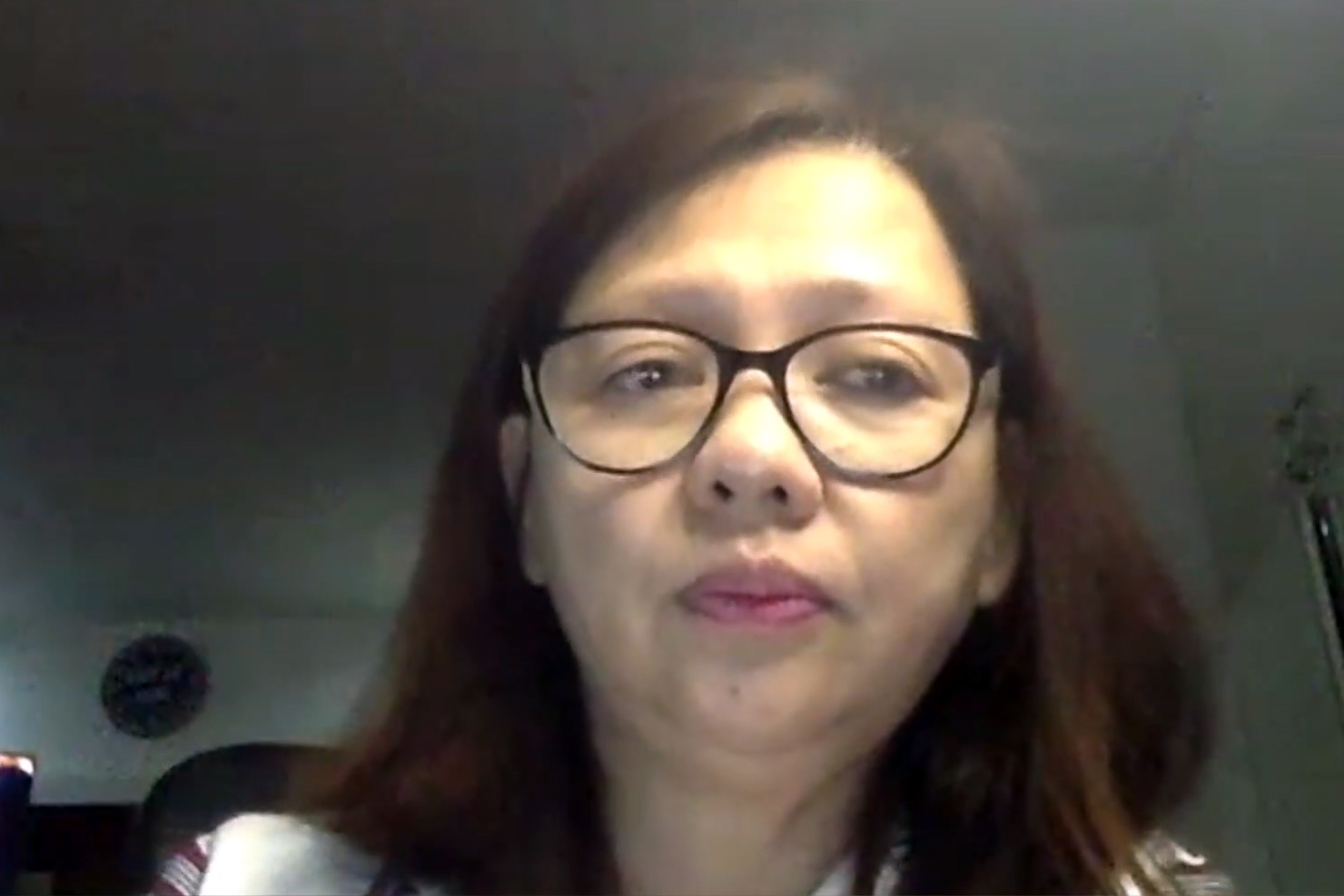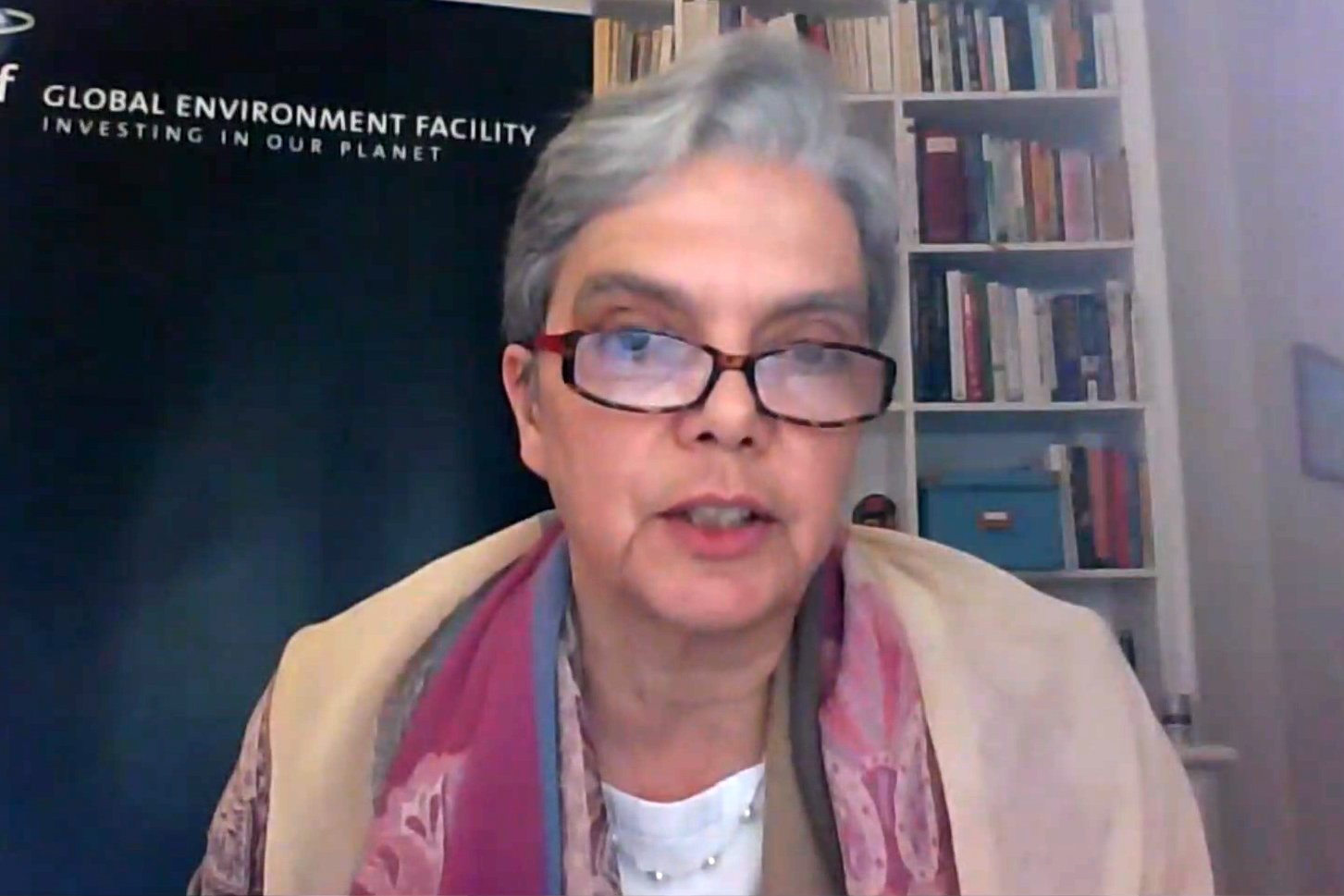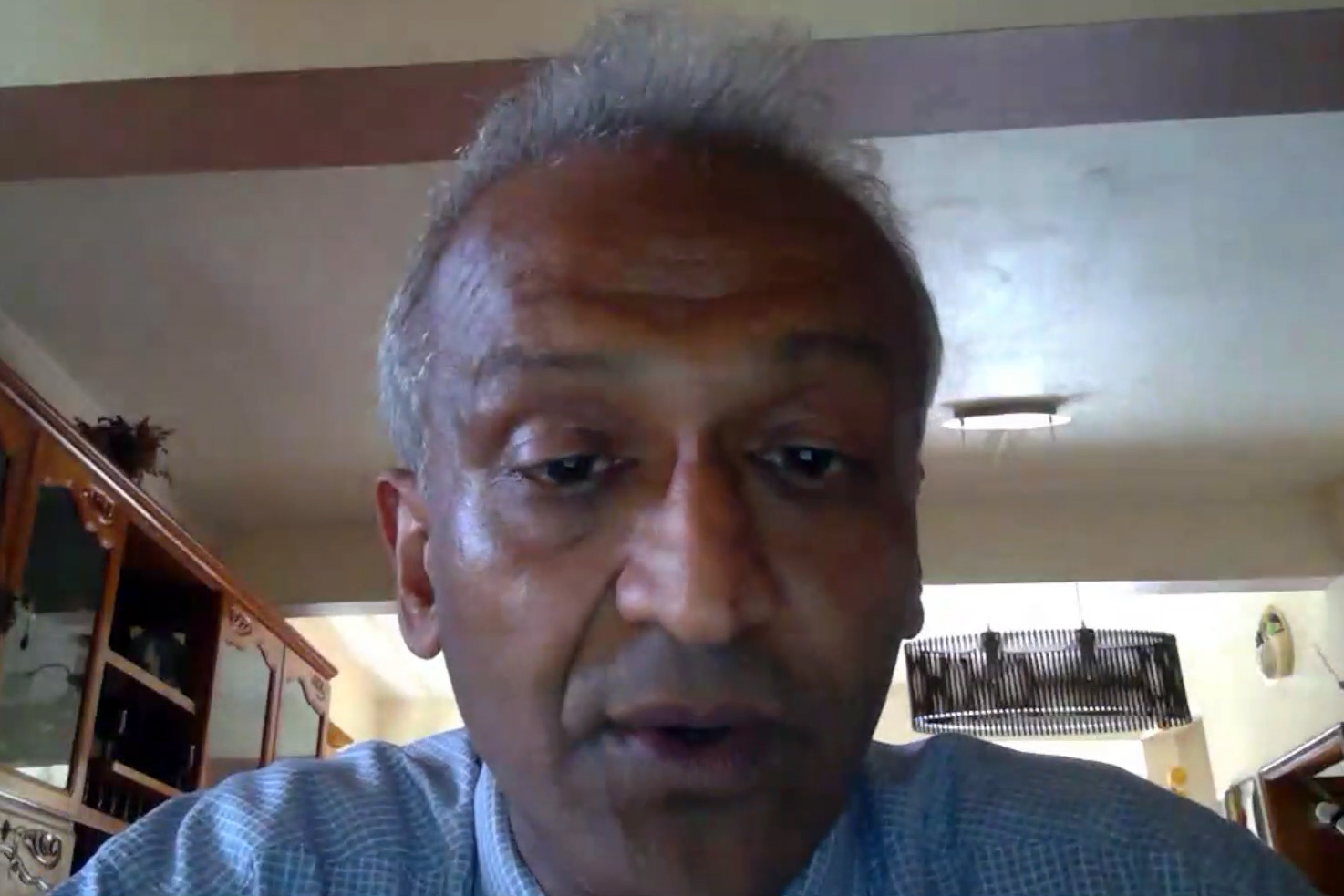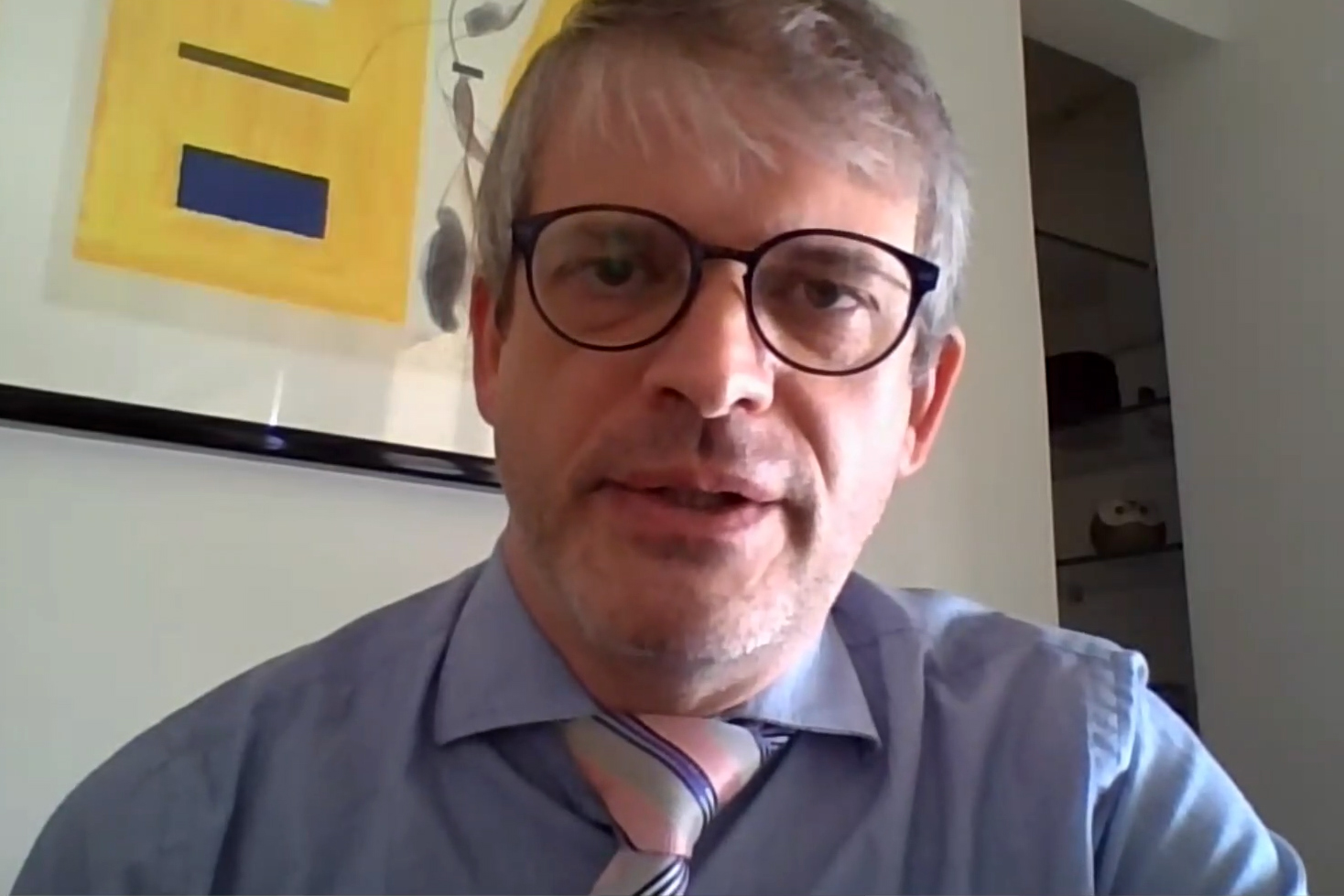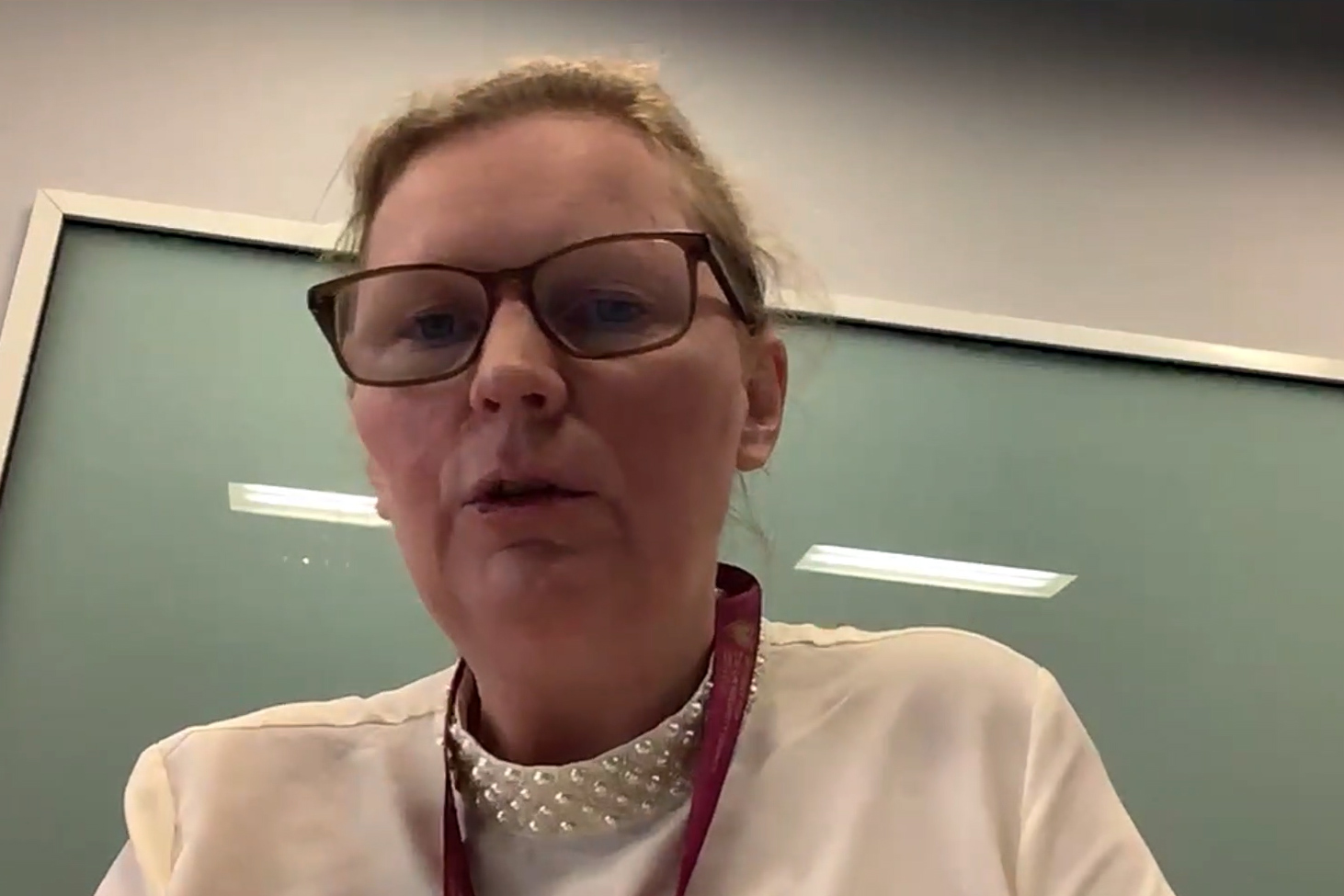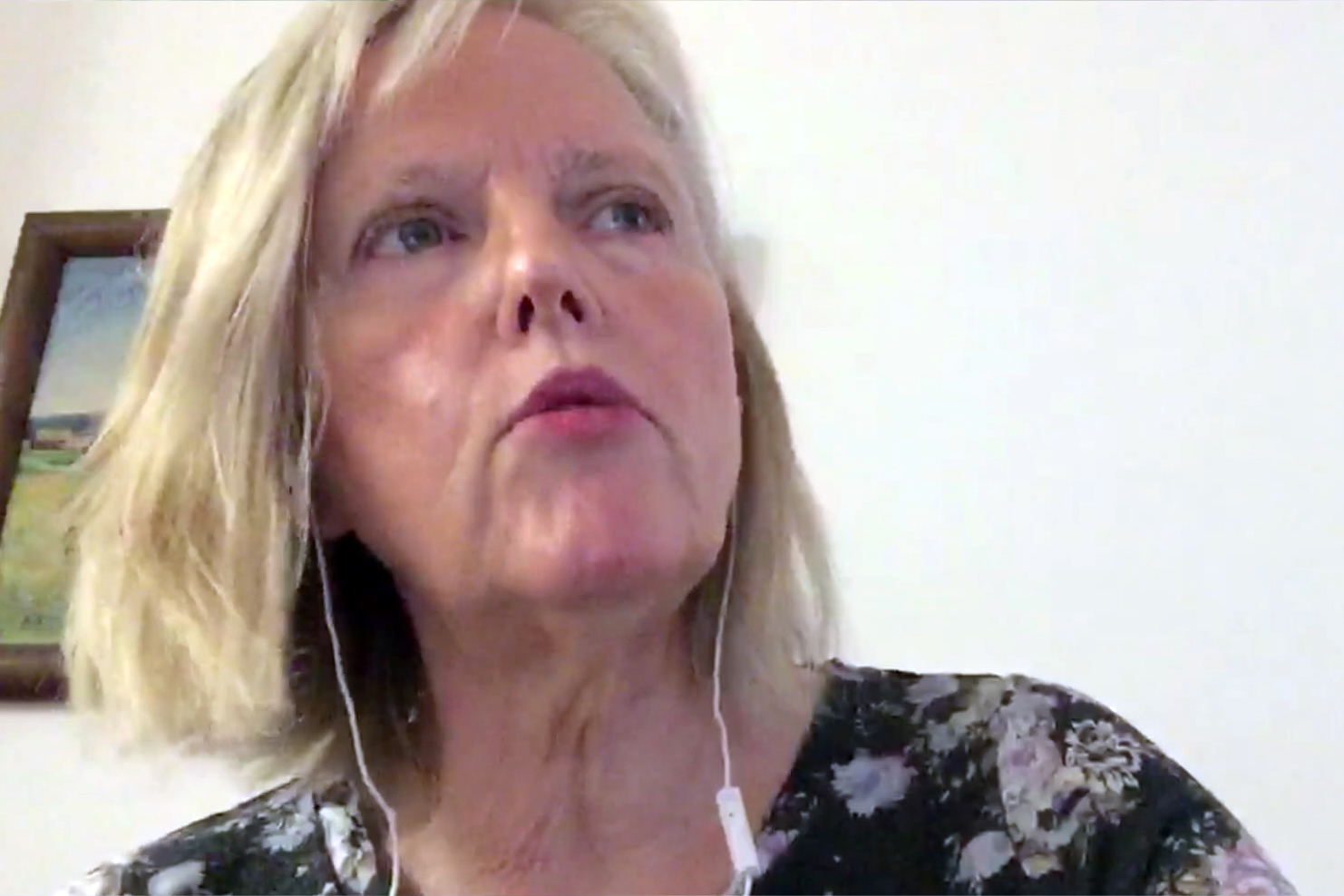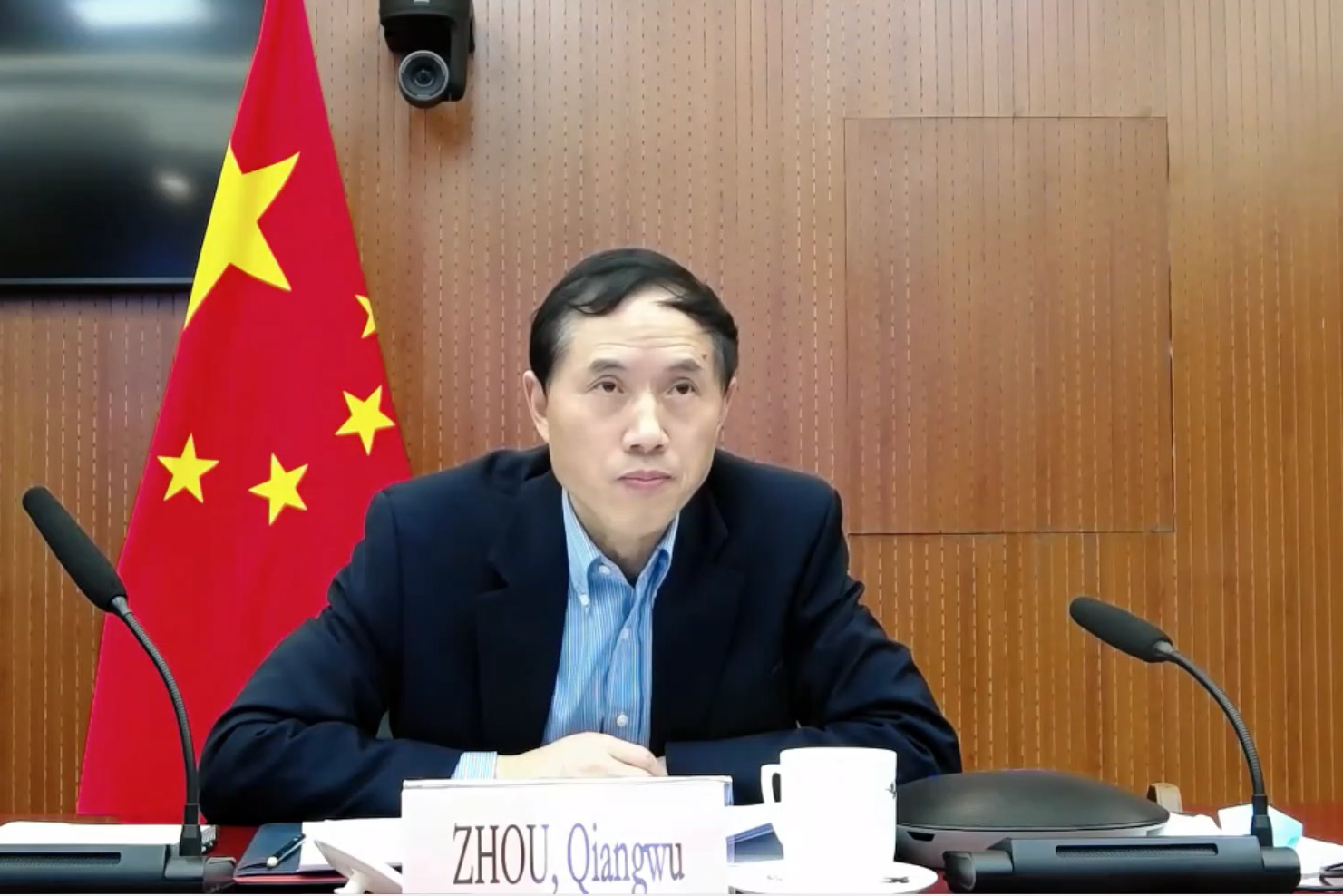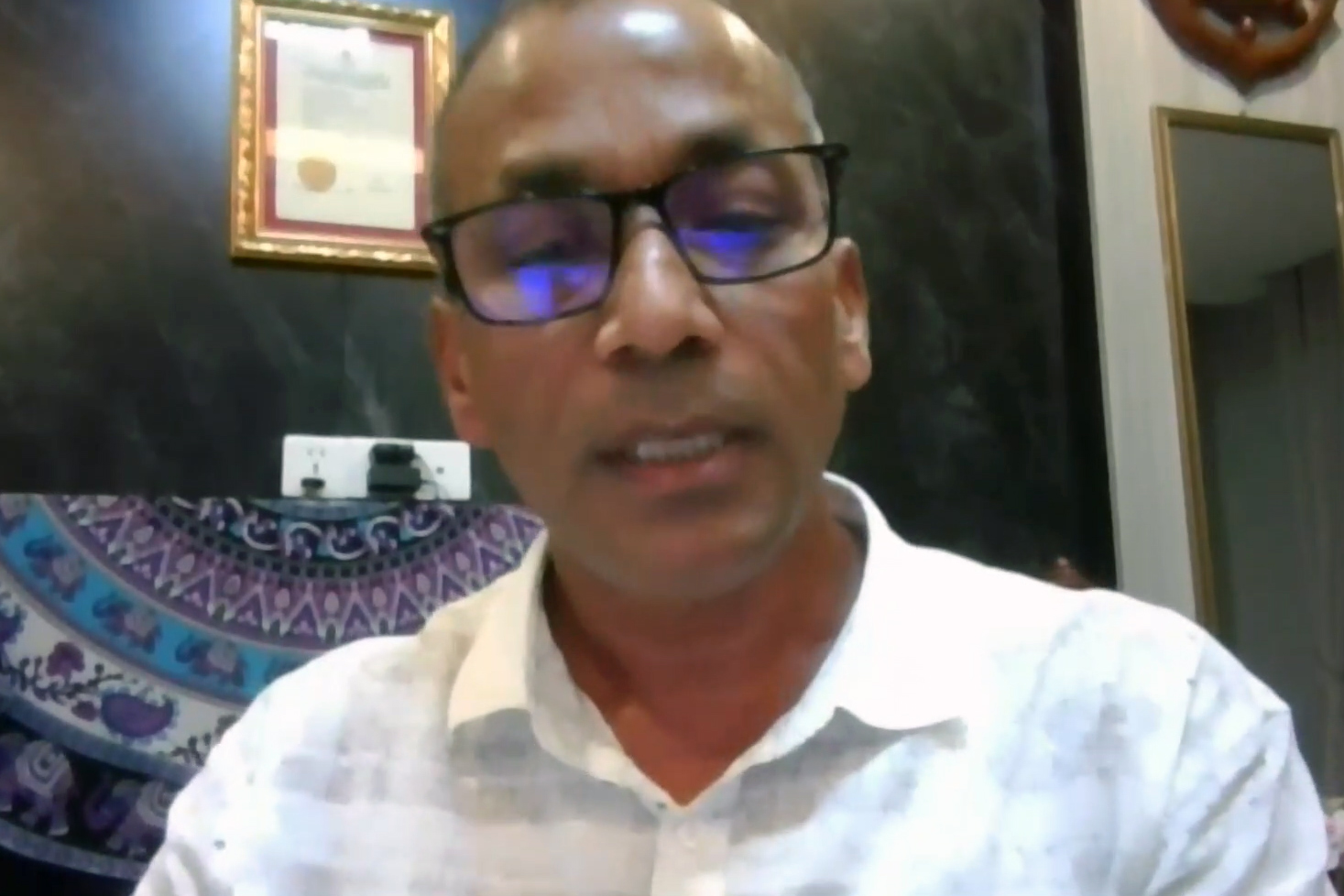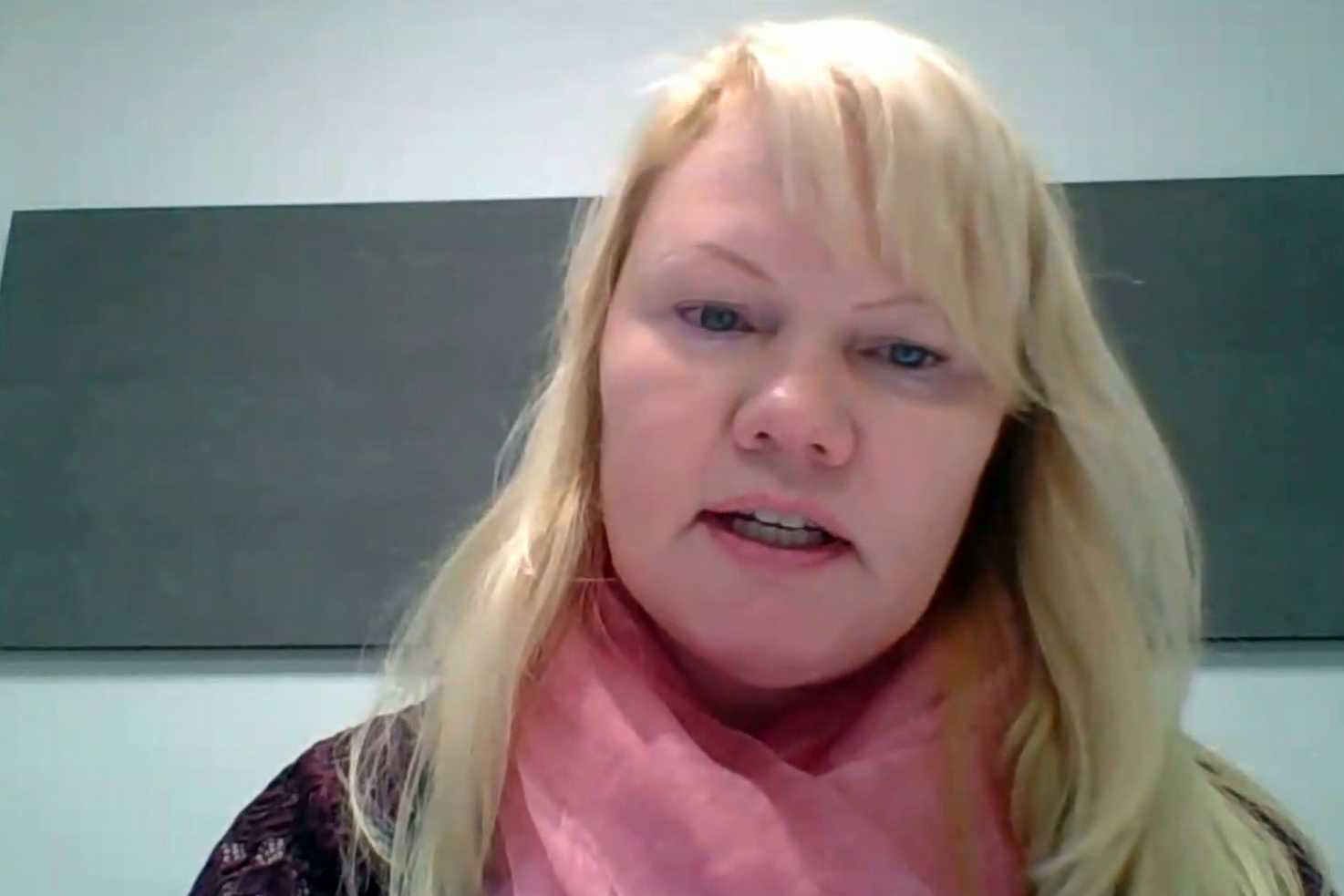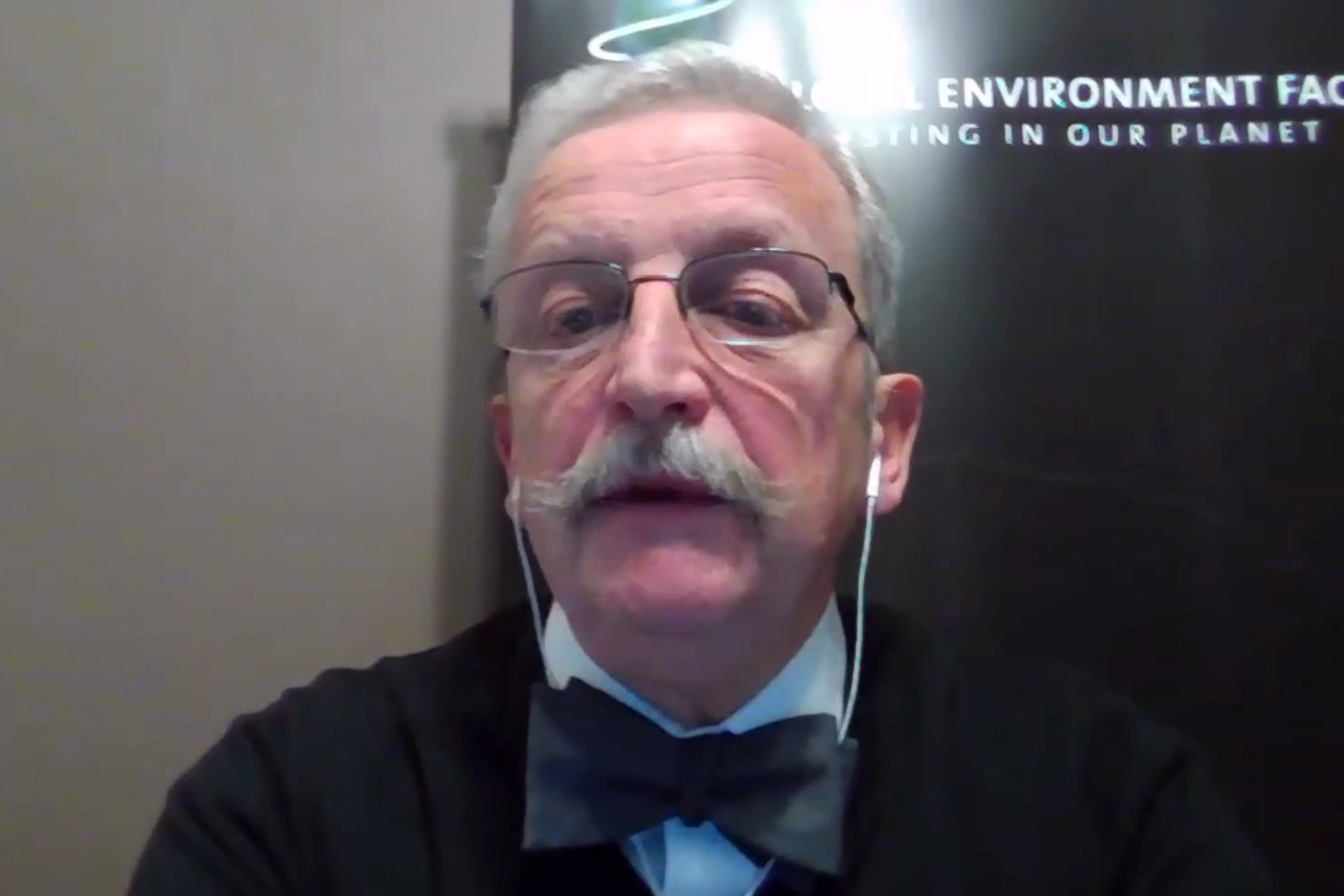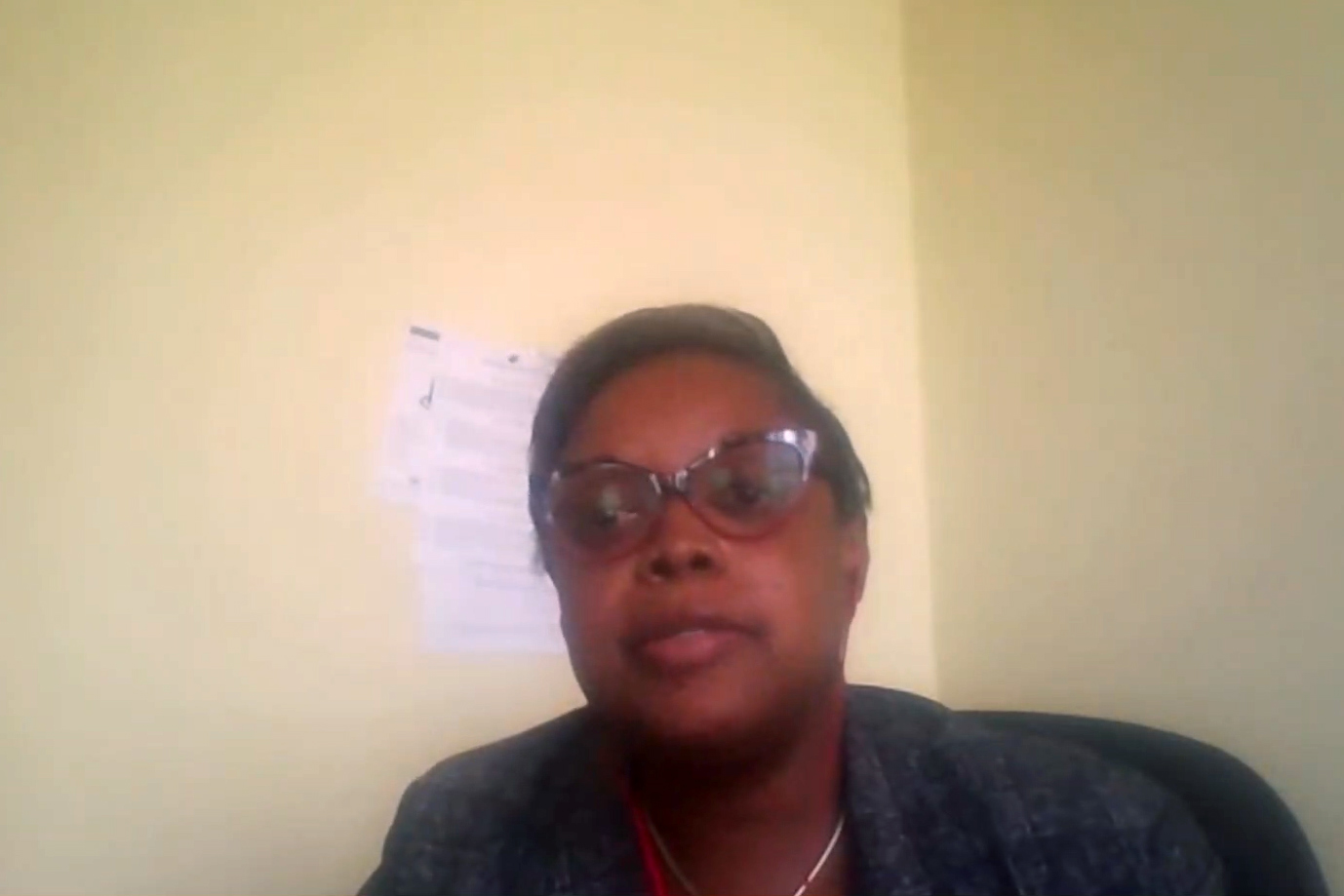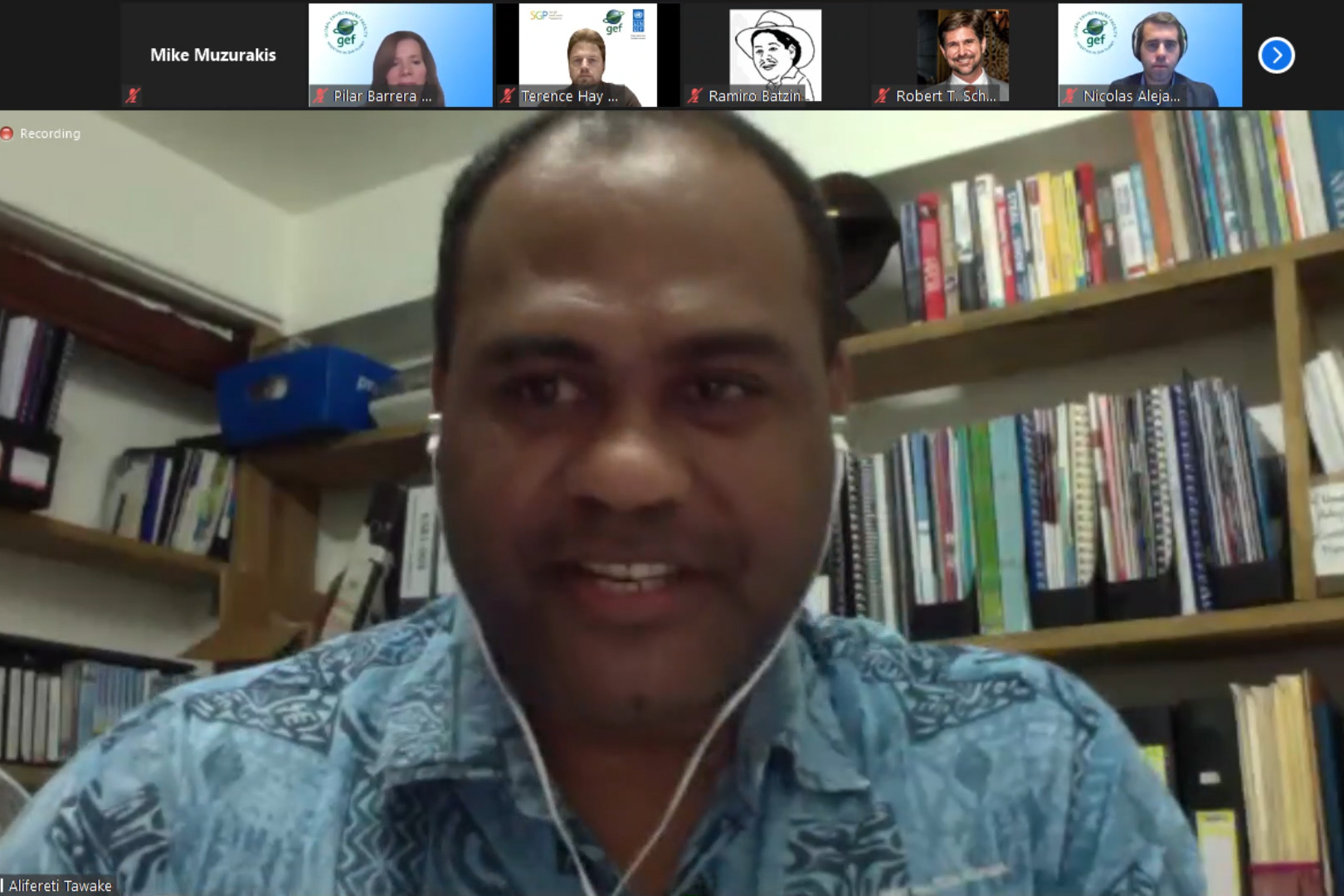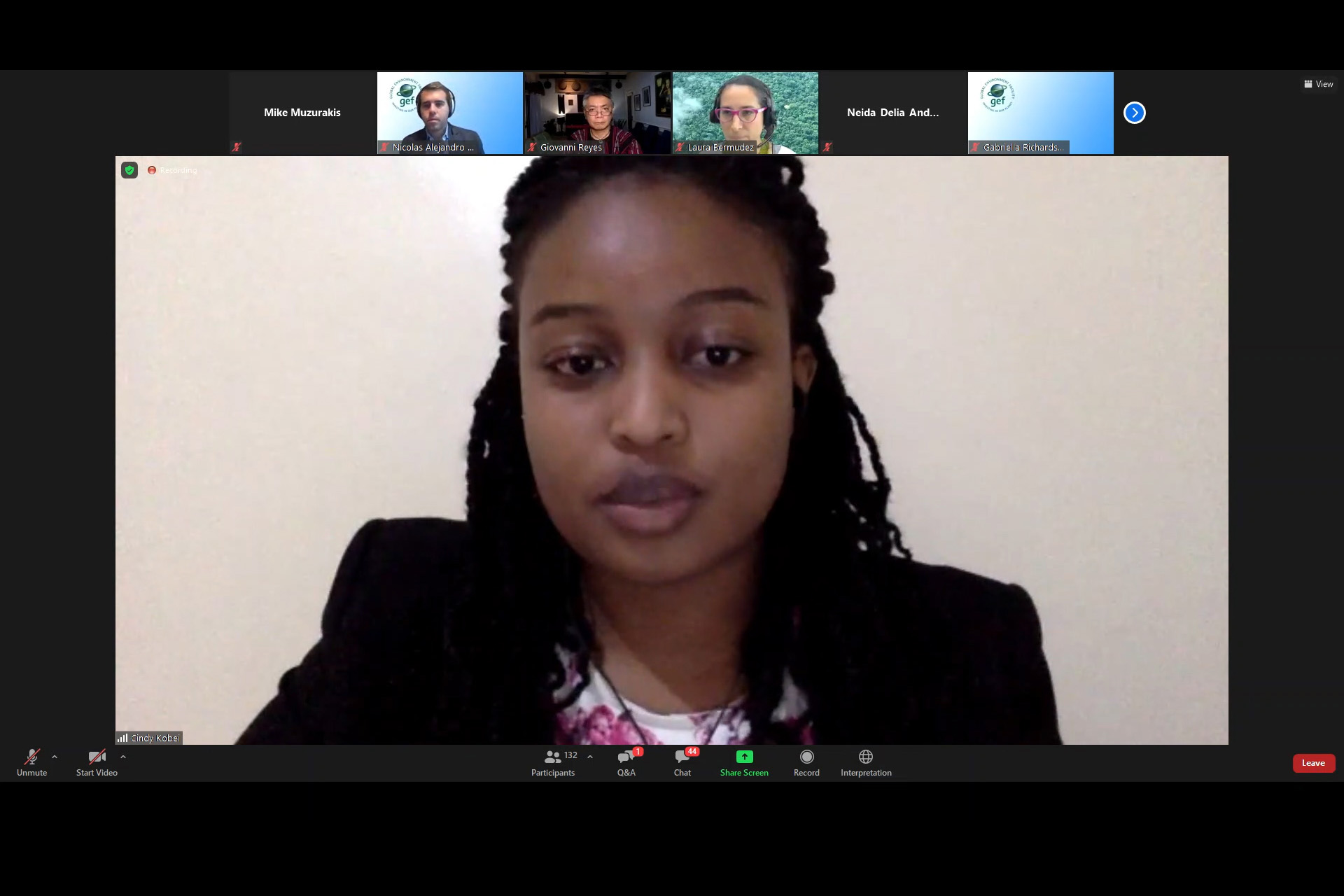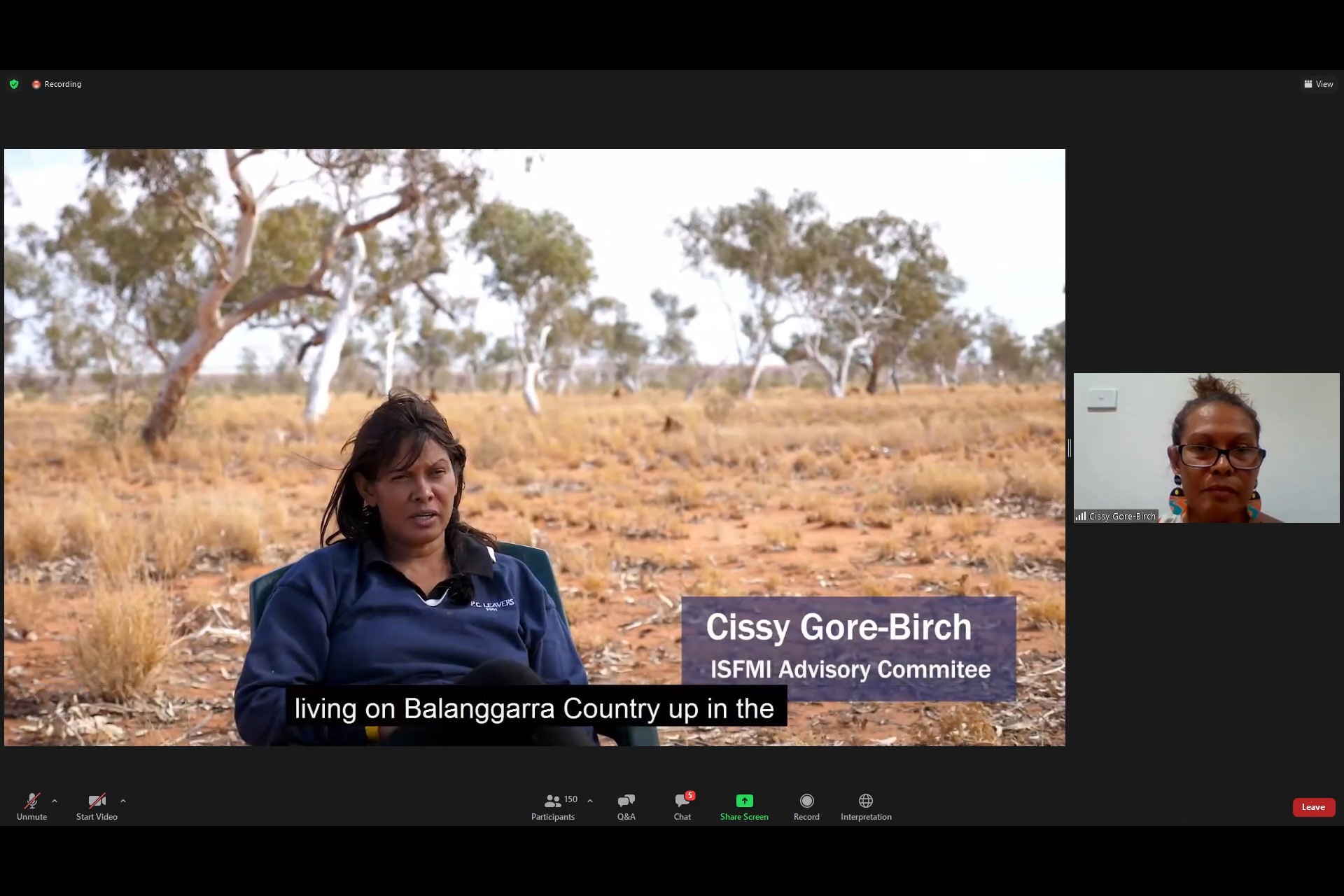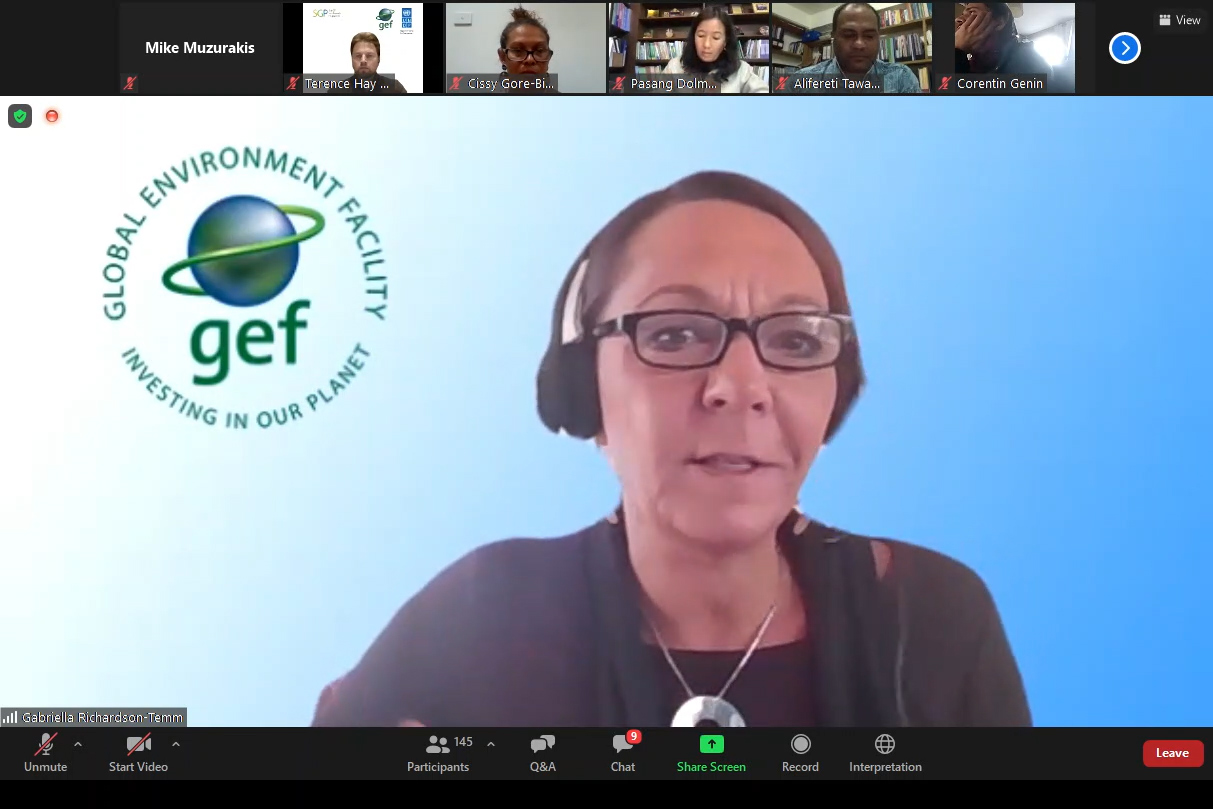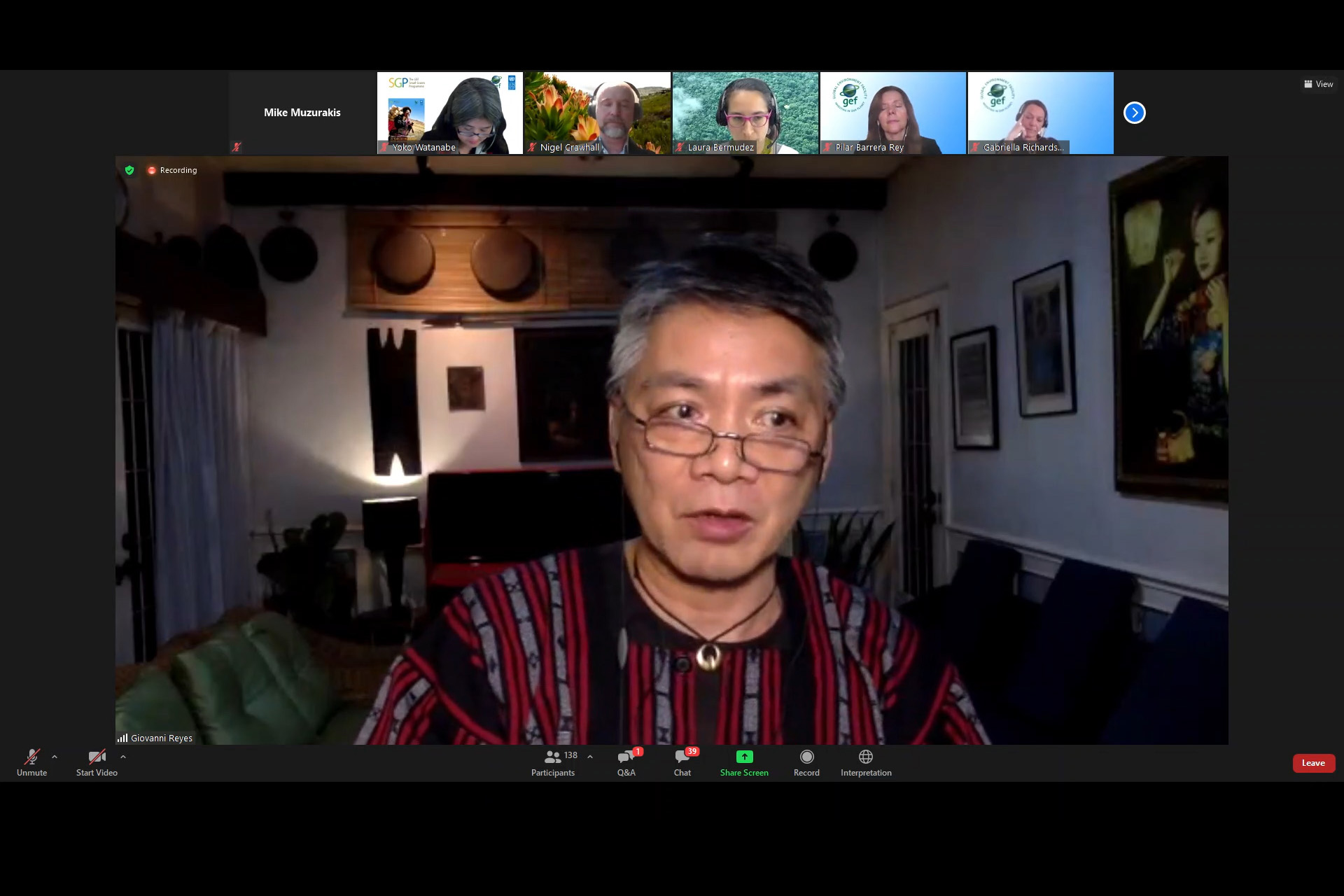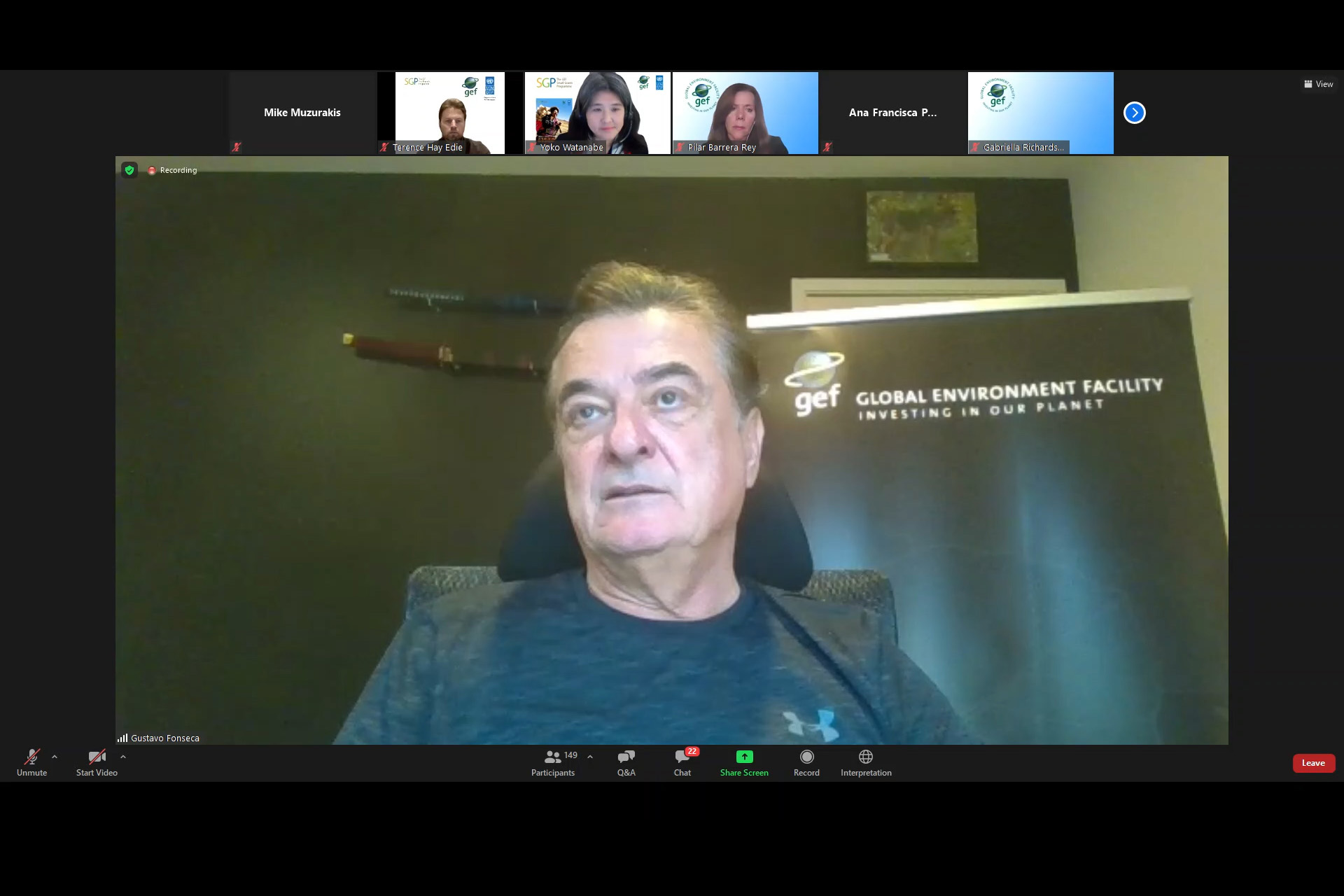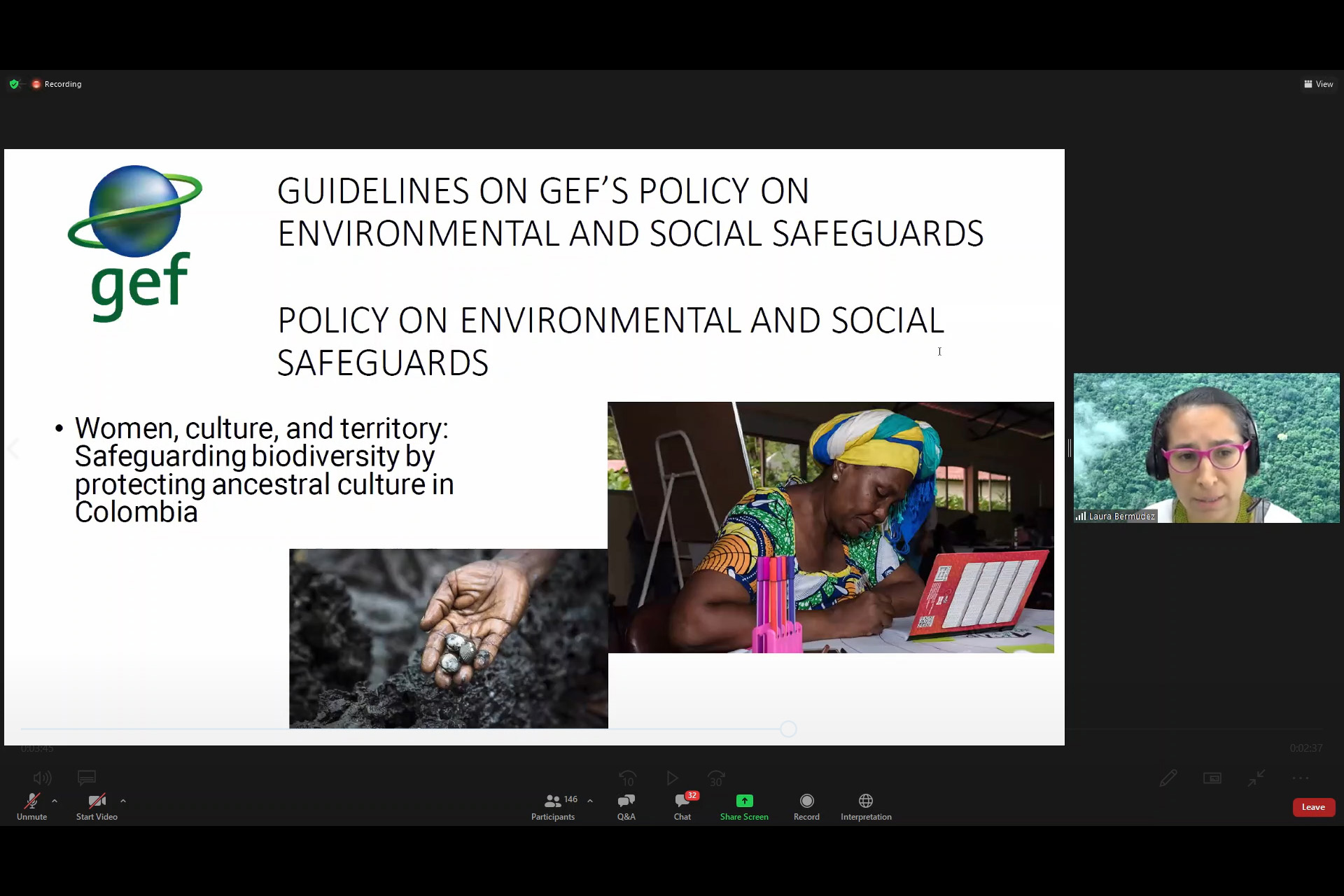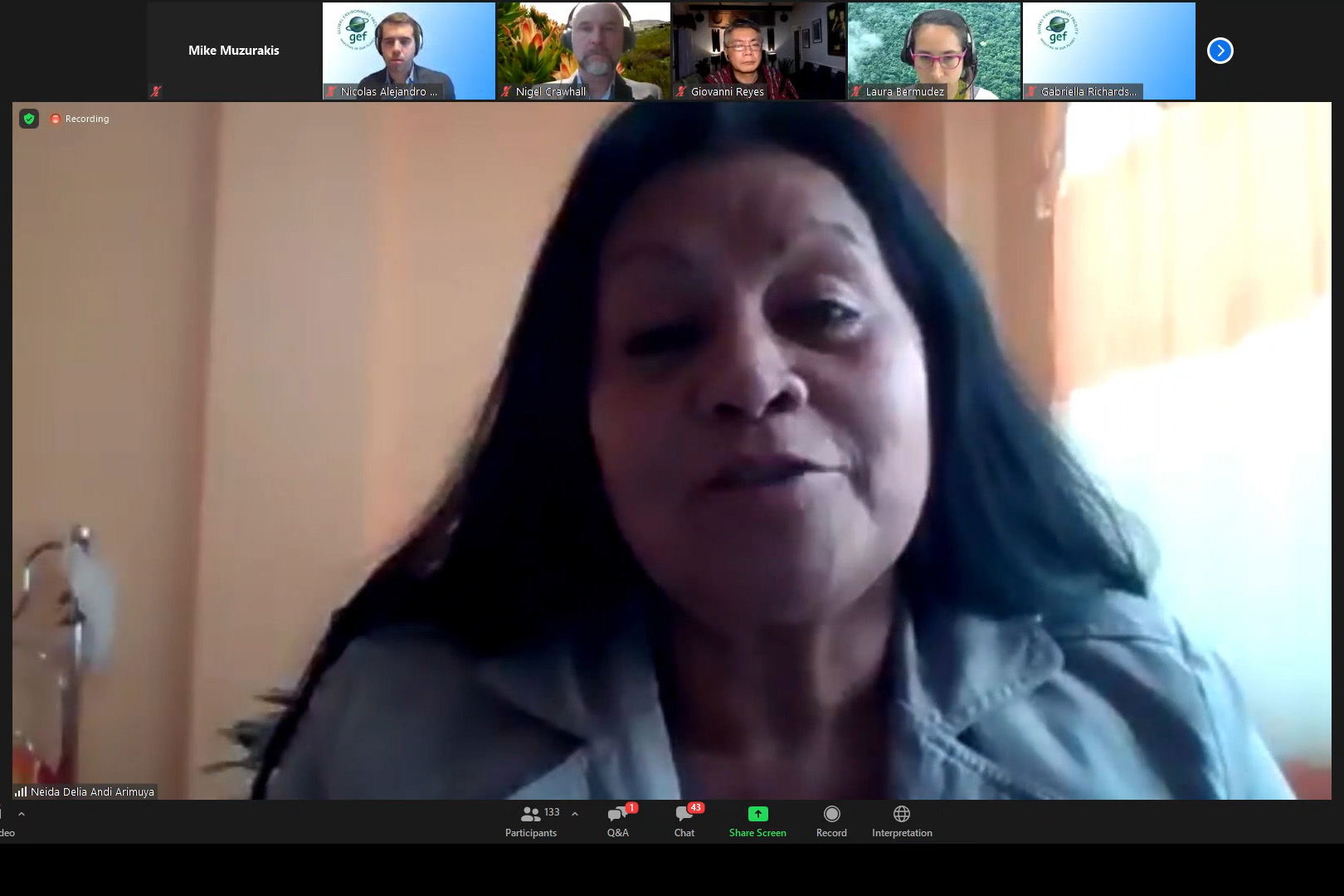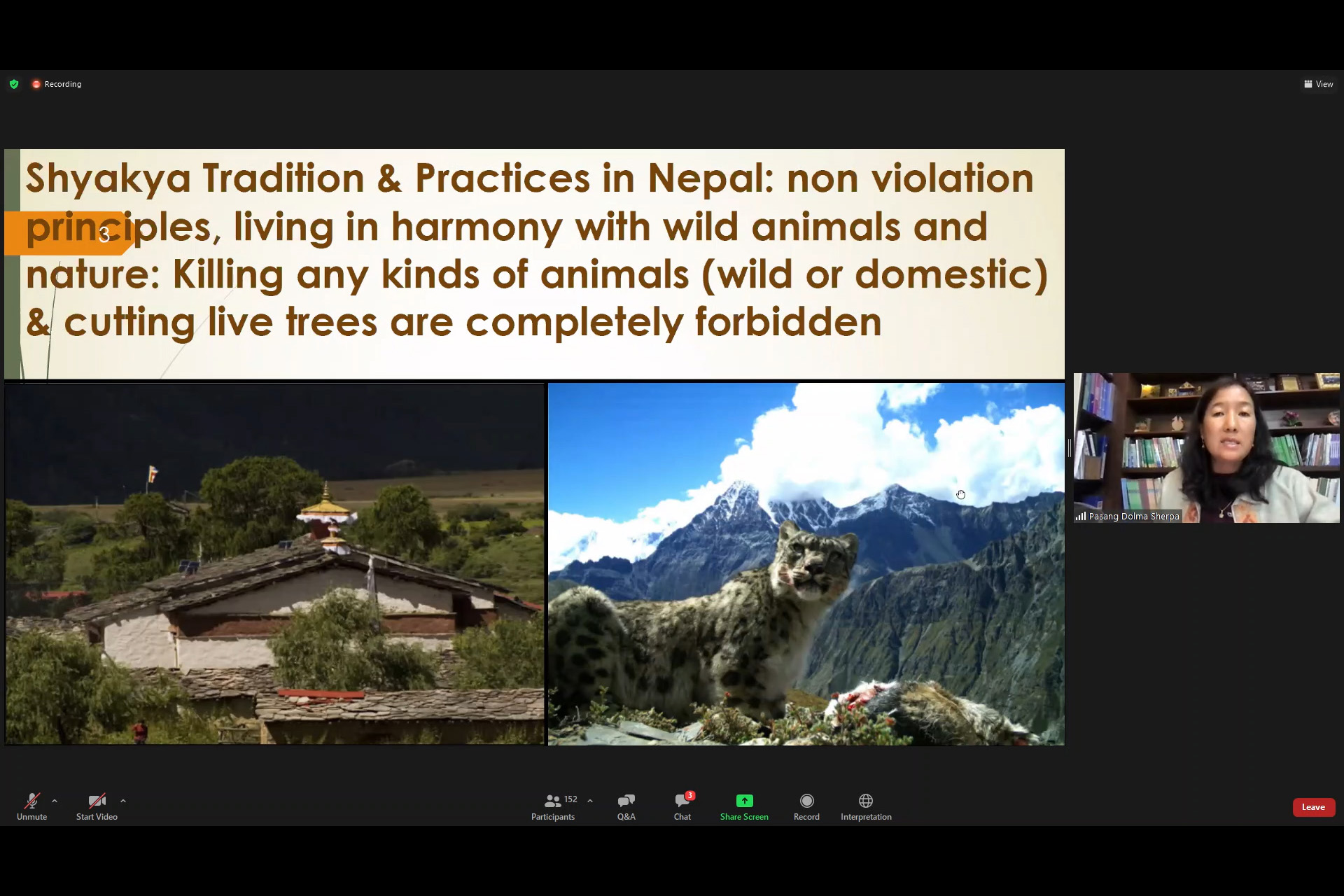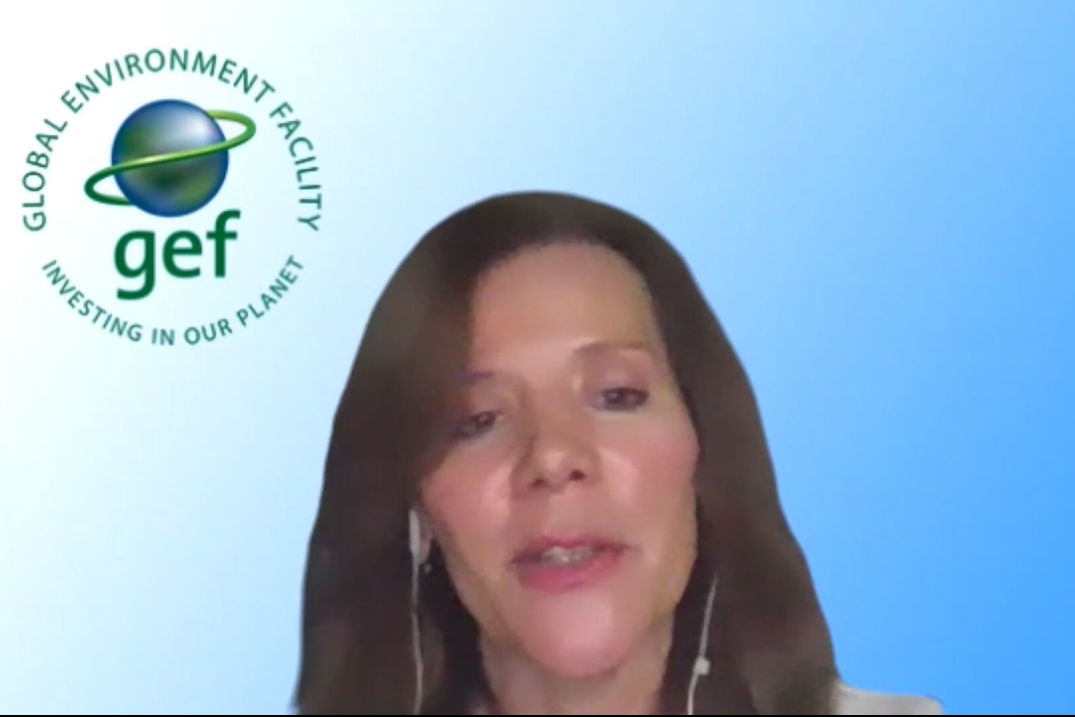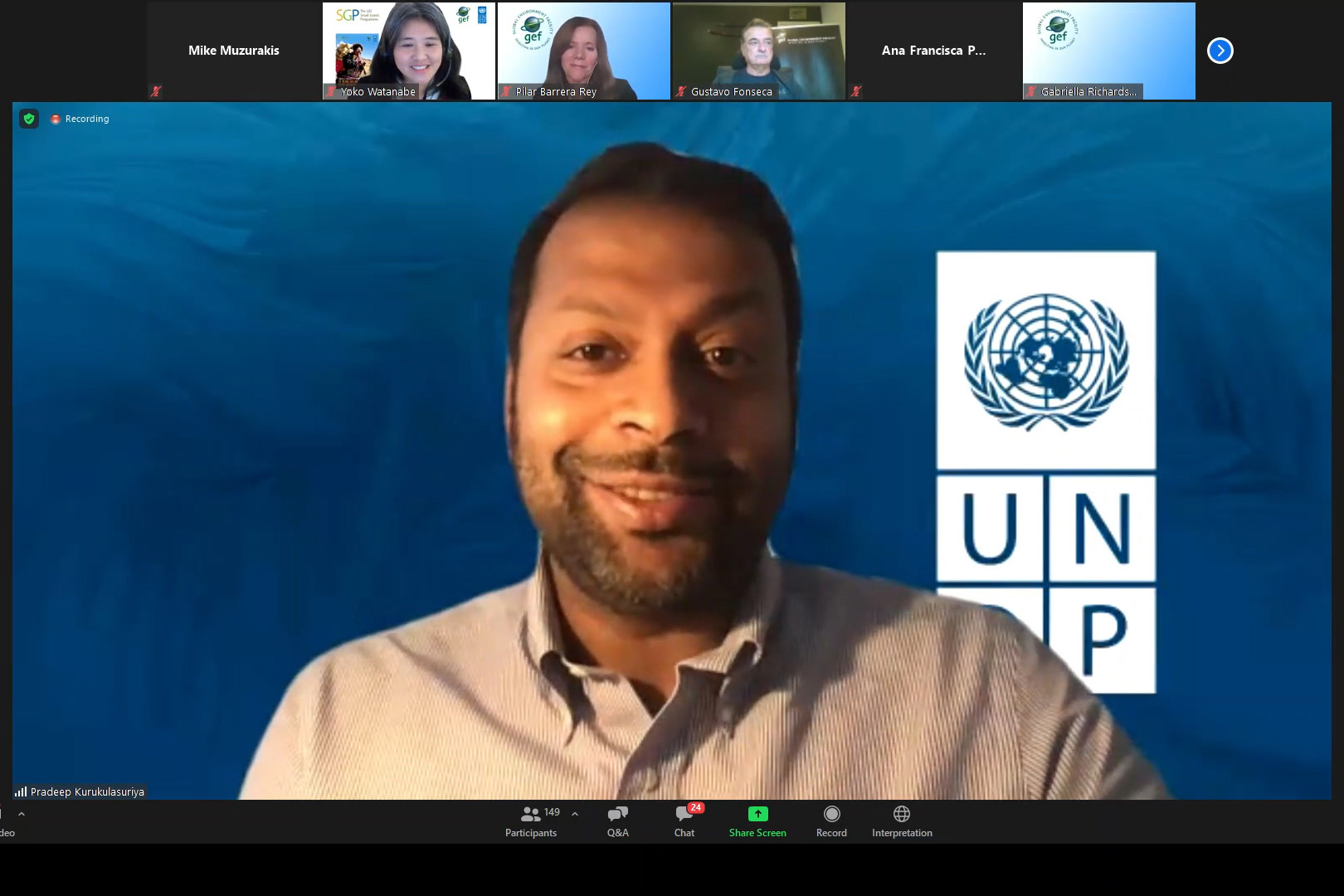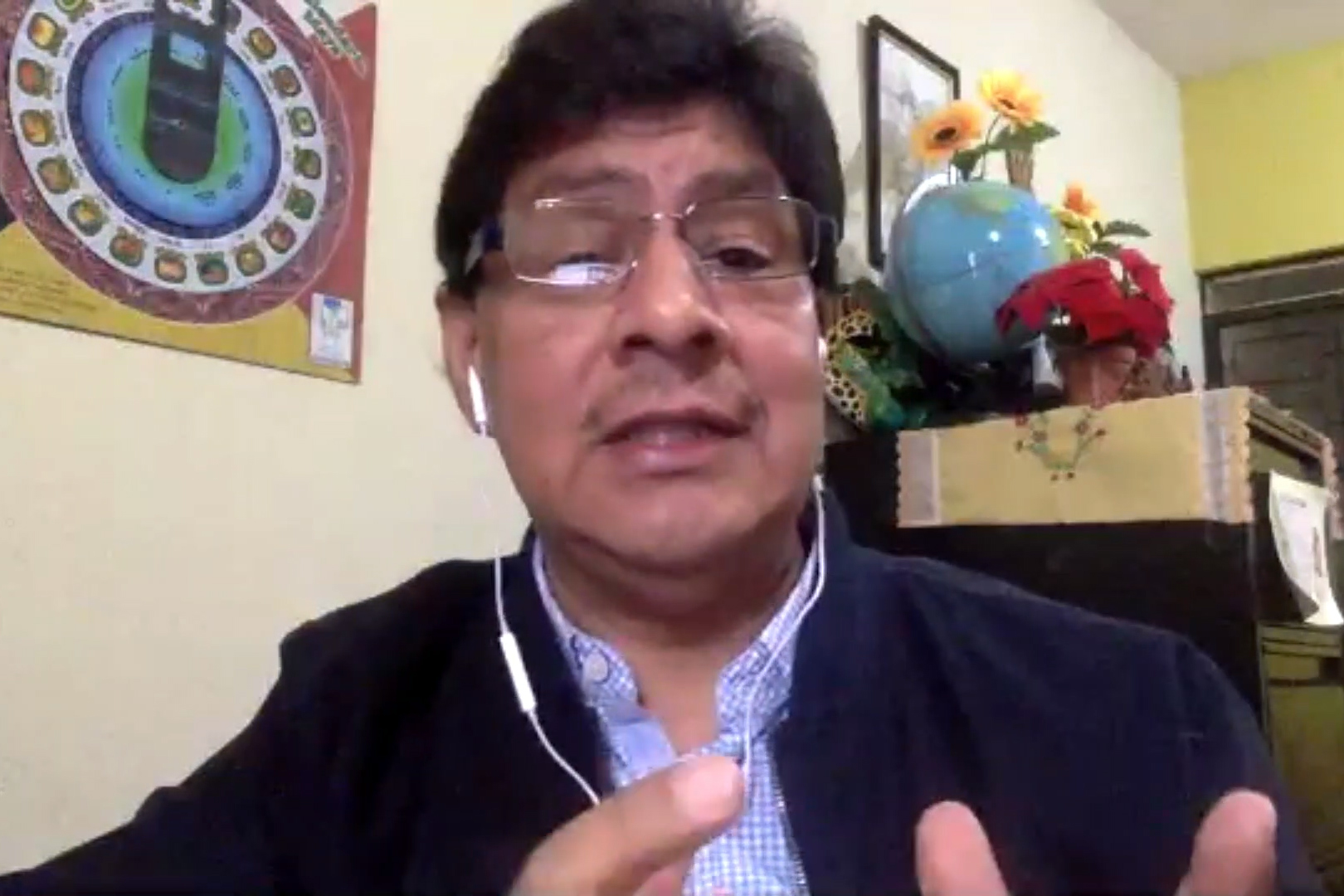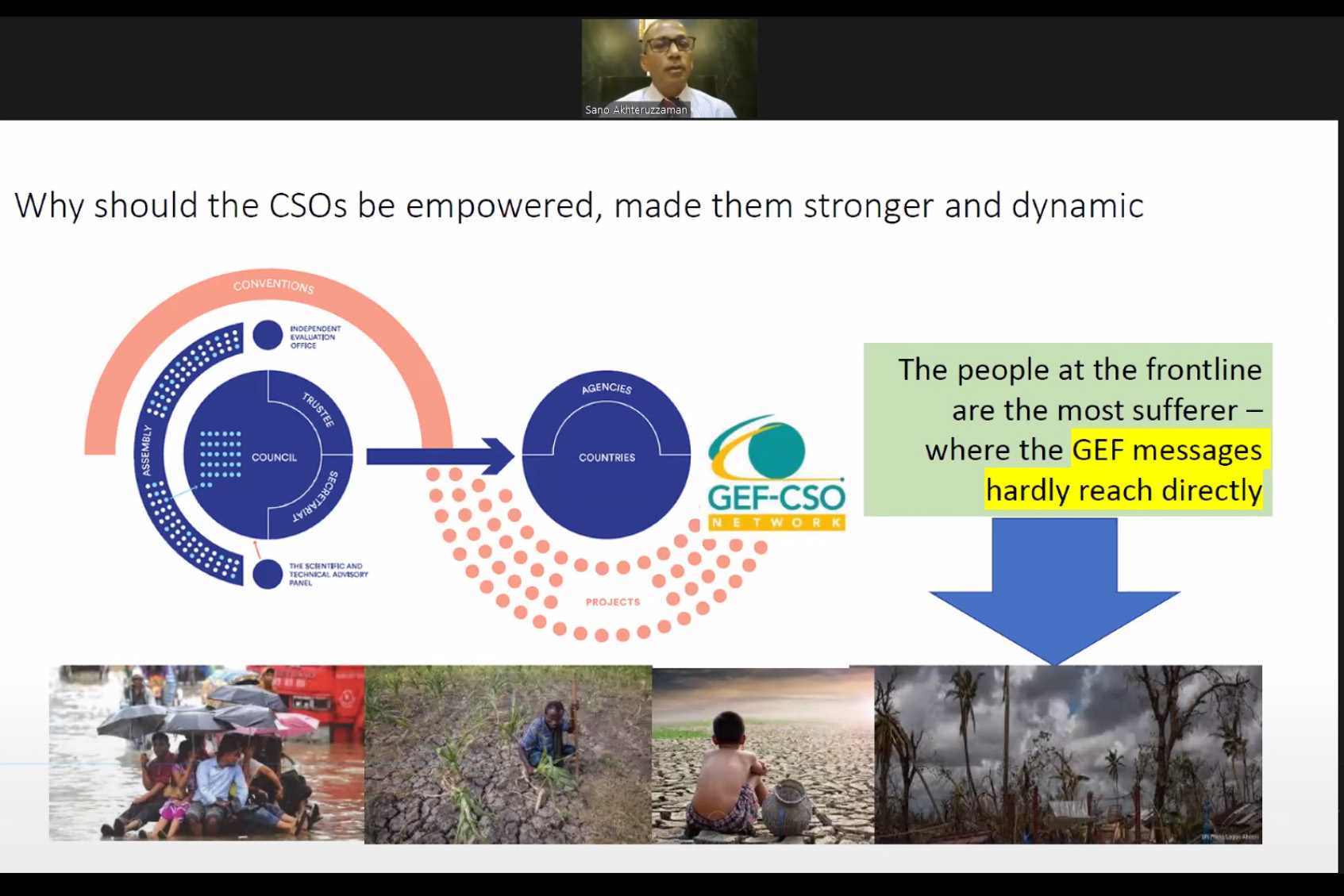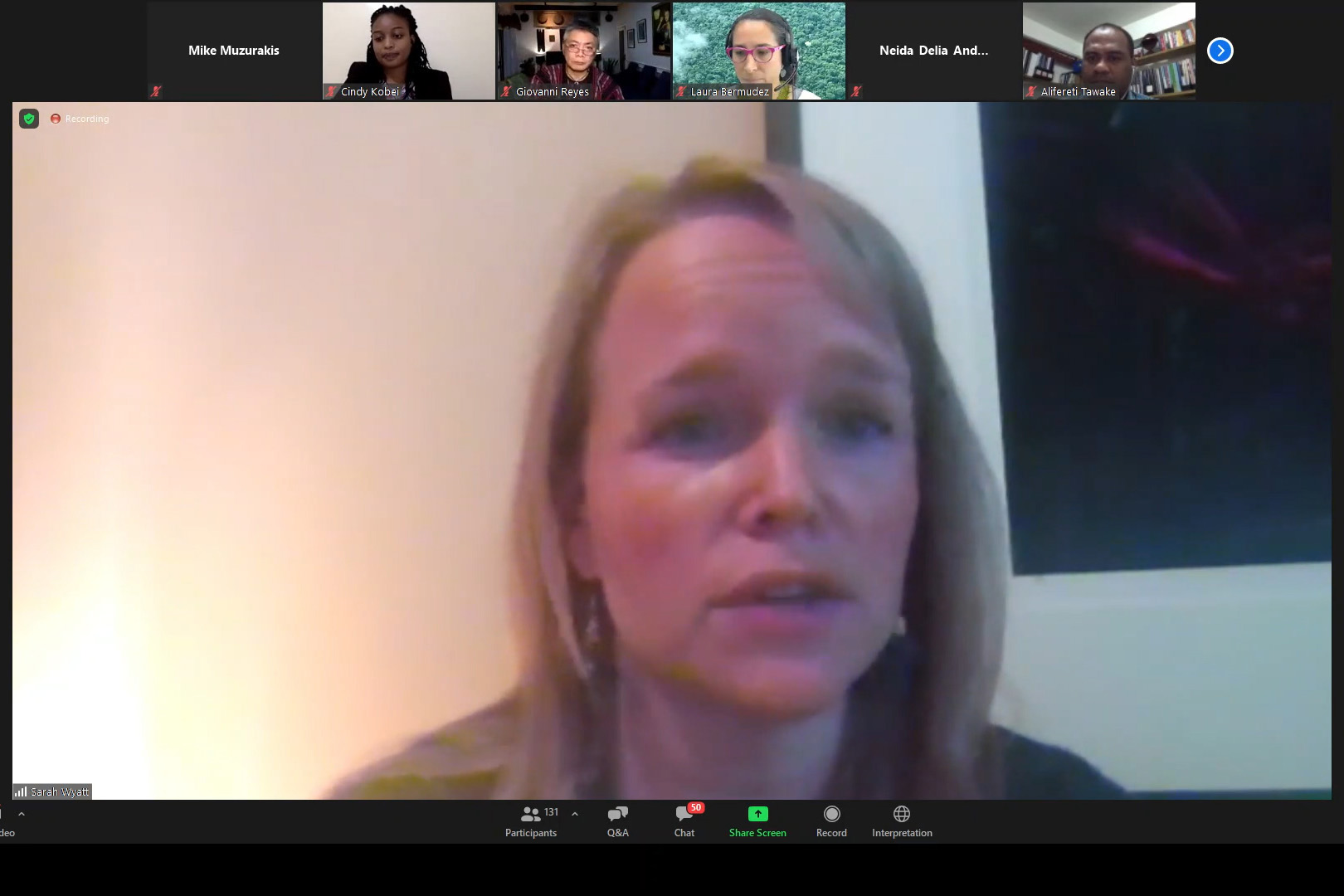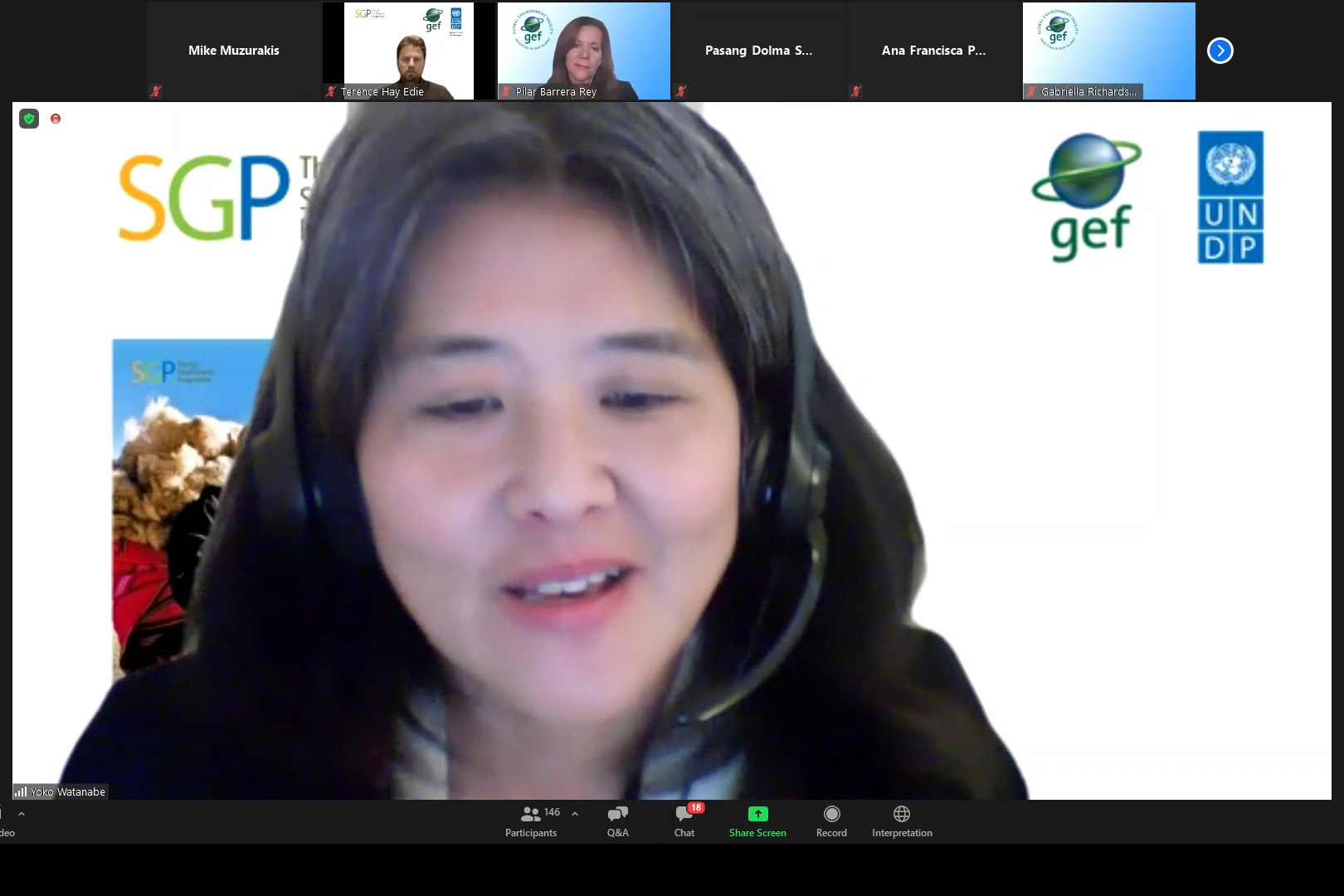59th GEF Council Meeting, GEF Council Consultation Meeting with CSOs, and 29th LDCF/SCCF Council Meeting
4 and 7-11 December 2020 | Online
Summary Highlights of the Meeting
Highlights for Friday, 11 December 2020

On Friday, Council Members approved the Work Program for the GEF Trust Fund, and concluded the 59th meeting of the GEF Council.
Council members then convened as the 29th meeting of the Council of the Least Developed Countries Fund (LDCF) and Special Climate Change Fund (SCCF) – two GEF-administered funds focused on helping the world’s poorest countries to increase their resilience and adapt to climate change.
Council members approved a USD 64 million LDCF work program comprising nine projects, including three multi-trust fund projects that combine resources with the GEF.
Council Members considered the LDCF program evaluation comprising in-depth analysis of approved and completed projects on relevance, effectiveness, gender performance, private sector engagement, and sustainability, among other issues.
During a pledging session for the LDCF, Dirk Wouters, Ambassador of Belgium to the US, announced his country’s pledge of EUR 20 million to be disbursed over four years. Switzerland pledged CHF 700,000. Finland pledged EUR 5 million. Qatar pledged USD 500,000.
Following approval of the Joint Summary of the Chairs for both the GEF Council and the LDCF/SCCF Council meetings, GEF CEO and Chairperson, Carlos Manuel Rodríguez, led the Council in bidding farewell to longstanding Council Member Stefan Schwager, Switzerland.
Rodríguez closed the online meeting at 10:30 am, EST.
Images from the Meeting
Videos from the Session
Highlights for Thursday, 10 December 2020

On Thursday, Françoise Clottes, GEF Secretariat, presented the report, “Impact of COVID-19 on GEF Project Preparation and Implementation,” which presents an overview of responses from across the GEF Partnership of a survey that aimed to better understand implications of the pandemic on GEF projects and programs. Council Members approved the decision to allow the GEF CEO to make an exceptional, time-bound authorization to the Project Cancellation Policy. This will enable the GEF to extend project timelines by 24 months, as needed, in order to allay the impacts of the pandemic.
The Council further considered a proposal by the Trustee to implement the proposed Sustainable Bond Strategy for the GEF Trust Fund, which seeks to add to a set of options for a responsible investment strategy for the Facility. While welcoming the proposals, Members underscored the importance of ensuring that all financing instruments are fully aligned with the Paris Agreement on climate change and global goals on sustainable and inclusive development.
Inviting Members to launch the negotiation process towards the eighth replenishment of the GEF Trust Fund (GEF-8), GEF CEO and Chairperson, Carlos Manuel Rodríguez, urged the Council to lay the foundation for an ambitious GEF-8 strategy to build back better and greener. Council Members adopted the draft decision.
The Council also adopted decisions on: the Private Sector Engagement Strategy; extending the mandate of the Working Group on Governance until 30 January 2022; and the Update on the Nagoya Protocol Implementation Fund.
Images from the Meeting
Videos from the Session
Highlights for Wednesday, 9 December 2020

On Wednesday, Gustavo Fonseca, GEF Secretariat presented the Work Program, amounting to USD 409.2 million, consisting of 60 projects and two programmes: Food Systems, Land Use and Restoration (FOLUR) Impact Program; and the Yangtze River Basin Biodiversity Conservation Programme. Fonseca explained that green recovery, post COVID-19 is a key feature of most of the projects in the Work Plan. Council Members raised questions and sought clarification on several issues including:
- the area under protection in the projects;
- modalities for ensuring effective collaboration between the GEF and GCF;
- policies for reallocating GEF funding where travel is hindered by COVID-19;
- core indicators addressed in GEF-7;
- funding allocated to non-ODA eligible countries; and
- mechanisms for ensuring projects operating in territories of indigenous peoples adhere to the principles of Free Prior and Informed Consent.
The Council then heard updates from the Executive Secretaries of four multilateral environmental agreements: the Convention on Biological Diversity (CBD); the UN Convention to Combat Desertification (UNCCD); the Minamata Convention on Mercury; and the Basel, Rotterdam and Stockholm (BRS) Conventions. The discussions touched on the status of negotiations ahead of the meetings of their respective Conferences of the Parties in 2021, and their financial needs under GEF-8. At the close of the session members adopted the corresponding draft decision which requests the GEF Partnership to continue to work with recipient countries to reflect the guidance and national priorities in their GEF programming and activities.
The Council agreed to revisit decisions on private sector engagement and the Work Progam on Thursday.
Images from the Meeting
Videos from the Session
Highlights for Tuesday, 8 December 2020

On Tuesday, Rosina Bierbaum, Chair, Scientific and Technical Advisory Panel (STAP), presented the report of the Chair of the STAP. She highlighted the Panel’s perspectives on a three-pronged strategy that seeks to ensure that: individual investments are efficient, transformative and durable; the GEF portfolio is more integrated and transformational; and the GEF catalyses the transformation of economic systems using its convening power and leverage to form partnerships to deliver more environmentally sustainable development.
Council Members considered the Report of the Working Group on Governance. Introducing the report of the ad hoc Working Group, Stefan Schwager, Switzerland, highlighted positive results relating to the efficiency and transparency of the GEF's decision-making processes. He highlighted recommendations that the Council not only consider the evaluation report and recommendations, but also the management response.
Council members also discussed four reports by the Independent Evaluation Office (IEO) on: GEF support in fragile and conflict-affected situations; interventions in the artisanal and small-scale gold mining sector; the role of medium-sized projects in the GEF partnership; and knowledge management. The Secretariat reported that the global pandemic has not had a major detrimental effect on the evaluations, even though field work was suspended in March. Members expressed appreciation for the quality of the evaluations.
In closing of the day's agenda, the Council re-opened discussions on the private sector engagement strategy. Some called for text on increasing the role of operational focal points, while others noted this topic is currently under discussion in the ad hoc Working Group on Governance. GEF CEO and Chairperson, Carlos Manuel Rodríguez recommended resuming discussion of this issue on Wednesday, after Members have had a chance to reflect on the different options on the table.
Images from the Meeting
Videos from the Session
Highlights for Monday, 7 December 2020

GEF CEO and Chairperson, Carlos Manuel Rodríguez, opened the virtual 59th meeting of the GEF Council, observing that the ongoing COVID-19 pandemic is part of a series of overlapping crises that have been triggered by human-caused biodiversity loss and environmental degradation. Noting the pandemic has put urgent short-term economic recovery at the top of government agendas, he emphasized the importance of seizing this “once-in-a-lifetime chance” to address these global challenges in an integrated way.
The GEF Secretariat presented the GEF Monitoring Report 2020, including an assessment of the impact of COVID-19 on select operational areas. Prior to adopting the Report, Council Members sought clarification on, inter alia, reasons for slow implementation of projects by small island developing States, the impacts of COVID-19 on project implementation, and how these impacts affect risk assessment.
Council Members considered the GEF Secretariat Private Sector Engagement Strategy and Implementation Plan, noting its core elements, including: systems orientation for working strategically with multi-stakeholder platforms; internal orientation, which is a systematic approach to crowding-in the private sector; and external orientation, which supports multiple private sector entry points. Members supported the Strategy and Plan noting the need for, inter alia: increased civil society participation in the Strategy and Plan development; capacity building of the private sector to understand modalities of engagement with the GEF; and ensuring priorities of GEF recipient countries are adhered to by the private sector.
Council Members also discussed and adopted the Report on the Assessment of GEF Agencies’ Compliance with GEF Minimum Fiduciary Standards, which presented the findings of the limited compliance reassessment, including Agency self-assessments and certificates of compliance, as well as action plans to address areas of non-compliance.
Images from the Meeting
Videos from the Session
Highlights for Friday, 4 December 2020
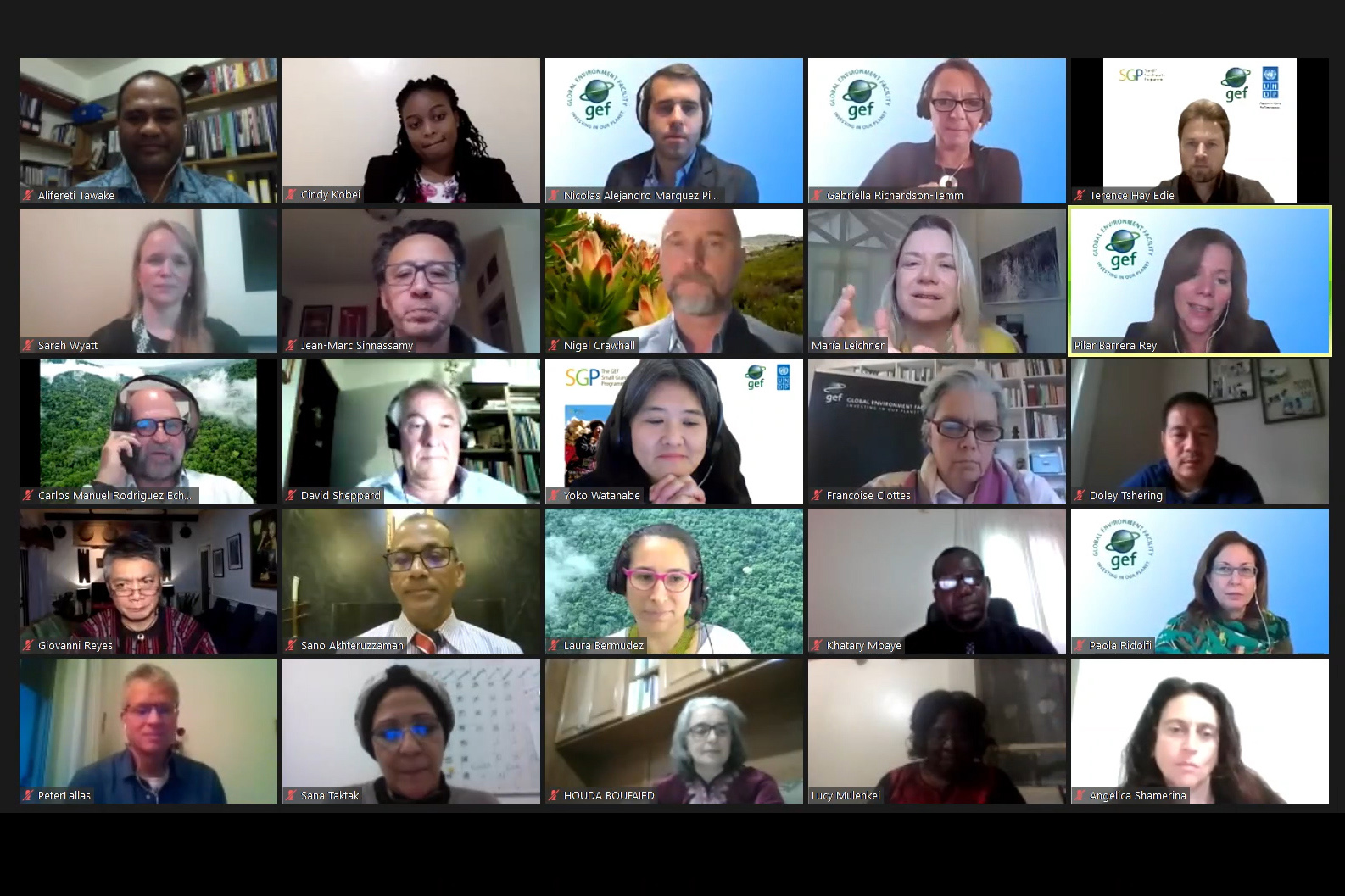
The Global Environment Facility (GEF) Council consultation with Civil Society Organizations (CSOs) took place virtually on 4 December 2020, on the theme, “The Application of Traditional Knowledge by Indigenous Peoples and Local Communities: Stewards of the Global Environment.” This meeting was organized in collaboration with the Indigenous Peoples Advisory Group (IPAG), the GEF Small Grants Programme (SGP), and the GEF CSO Network. Participants discussed the value of traditional knowledge in supporting the conservation of biodiversity, climate change mitigation and adaptation, as well as combating other global and local threats, including responses to the COVID-19 pandemic.
CSO Dialogue with the GEF CEO
Akhteruzzaman Sano, Chair of the GEF CSO Network, highlighted the need for a common set of indicators for all GEF implementing Agencies to help monitor progress. He pointed to a lack of effective, national and local level engagement mechanisms, and the “invisibility” of the GEF at the grassroots level.
GEF CEO and Chairperson, Carlos Manuel Rodríguez, emphasized the need for a bottom-up approach in the GEF’s engagement with CSOs, adding that the Facility is in a position to support transformational land governance processes with the full legal recognition of indigenous peoples. He called for positive incentives for countries to recognize the role of and spaces for CSOs to tackle the historical challenges faced by indigenous peoples.
Setting the Stage
Neida Delia Andi Arimuya, Ecuador, performed a traditional welcome, featuring a prayer and a blessing from the Amazonian region of Ecuador.
Lucy Mulenkei, Chair, IPAG, highlighted the inclusive nature of the seventh replenishment of the GEF Trust Fund (GEF-7) as an important step forward. She stressed the importance of addressing the full body of indigenous rights in future GEF programming.
Ramiro Batzin, Guatemala, Co-Chair, International Indigenous Forum on Biodiversity, proposed that traditional knowledge be considered as an “indigenous science” in its own right. He highlighted its holistic and collective nature, and the link to the territories where this knowledge is born and developed.
Role of Traditional Knowledge in the Management of IPLC Land and Water Resources
This roundtable was moderated by Terrence Hay Edie, GEF SGP.
Alifereti Tawake, Council Chair, Locally Managed Marine Area Network International, Fiji, said indigenous peoples in the Pacific have deep-rooted connections with nature and have a moral obligation to protect Totemic species and sacred sites.
Pasang Dolma Sherpa, Director, Center for Indigenous Peoples' Research and Development, Nepal, lamented that while indigenous peoples protect 80% of the world’s biodiversity, only 10% of their territories are legally recognized.
Cissy Gore-Birch, Australian traditional fire manager, highlighted a project aimed at creating opportunities in traditional, ecological knowledge planning, noting it has enabled biodiversity conservation and income generation for indigenous peoples in Australia.
Highlighting key messages, Gabriela Richards, GEF, noted the importance of traditional knowledge and skills in combating climate change and environmental degradation.
GEF support to Indigenous Peoples
Yoko Watanabe, Global Manager, GEF SGP, moderated this session. The session launched a publication on the GEF SGP's engagement with indigenous peoples.
Gustavo Fonseca, Director of Programmes, GEF, noted that the publication highlights over 6,000 projects, and will serve as guidance to generate commitment to scale up future work with indigenous peoples.
Pradeep Kurukulasuriya, Executive Coordinator, UNDP, highlighted opportunities to scale-up initiatives and financing for indigenous peoples in biodiversity conservation and climate action.
The Role of Traditional Knowledge in Responding to the COVID-19 Crisis and to Global Environmental Challenges
This round table was moderated by Laura Bermudez, former GEF Council member, Colombia.
Nigel Crawhall, UN Educational, Scientific and Cultural Organization (UNESCO), highlighted a steady increase in the UN’s recognition of indigenous knowledge, and reported on UNESCO’s support for generation and use of traditional knowledge for conservation.
Giovanni Reyes, President, Philippine ICCA Consortium, discussed the outcome of a pilot study of ten indigenous and community conserved area sites that have developed territorial maps allowing traditional leaders to understand “the physical dimension of their knowledge,” for more effective environmental decision making.
Neida Andi, Ecuador, noted how the lack of equipped medical facilities and trained personnel led her community to make use of natural medicines to combat the pandemic.
Cindy Naameni Kobei, Ogiek Community, Kenya, highlighted youth perspectives and recommended inter alia: learning from history and elders; funding for the protection and transfer of traditional knowledge; and diversifying indigenous youth networks.
Responding to the panel, Sarah Wyatt, GEF Secretariat, emphasized the importance of channelling GEF funding to bridge gaps arising from the pandemic. Wrapping up the session, Bermudez highlighted the importance of ensuring the full participation of indigenous people and local communities (IPLCs) in GEF-8 and the post-2020 biodiversity framework process.
Summary of the Consultation – Looking into the Future
Discussing his vision, CEO Rodríguez highlighted, among other priorities: the need for a more holistic approach to traditional knowledge, and options for incorporating longer funding cycles for GEF projects applying traditional knowledge under GEF-8.
Mulenkei, highlighted issues relating to environmental defenders, human rights, environmental conflicts, and the need to “make peace with nature”. She also noted challenges faced by IPLCs, particularly women, in feeding their families and transmitting indigenous knowledge. Mulenkei discussed local land management in the Pacific, GEF support to communities, and the utility of exchange visits, and learning from other cultures and traditions, among other issues.
Images from the Meeting
Videos from the Session
GEF Resources
- Website for the 59th GEF Council Meeting
- Documents for the 59th GEF Council Meeting
- Agenda for the 59th GEF Council Meeting
- Documents for the 29th Meeting of the Council for the LDCF and SCCF
- Provisional Agenda for the 29th Meeting of the Council for the LDCF and SCCF
- Website for the GEF Consultations with Civil Society on Traditional Knowledge
IISD/ENB Meeting Coverage
- 58th Meeting of the GEF Council and 27th Meeting of the LDCF/SCCF Council, 2-3 June 2020, Online
- 57th GEF Council Meeting, GEF Council Consultation Meeting with CSOs, and 27th Meeting of the LDCF/SCCF Council, 16-19 December 2019, Washington, DC, US
- GEF Council Consultation Meeting with CSOs, 56th GEF Council Meeting, and 26th Meeting of the LDCF/SCCF Council, 10-13 June 2019, Washington, DC, US
- Video Coverage at the 56th GEF Council Meeting
- GEF Council Consultation Meeting with CSOs, 55th GEF Council Meeting, and 25th Meeting of the LDCF/SCCF Council, 17-20 December 2018, Washington, DC, US
- Video Coverage at the 55th GEF Council Meeting
- 54th GEF Council Meeting, 24th Meeting of the LDCF/SCCF Council, CSO Forum, and 6th Meeting of the GEF Assembly,, 24-29 June 2018, Da Nang, Viet Nam
- Video Coverage at the 54th GEF Council Meeting and 6th GEF Assembly
- GEF Council Consultation Meeting with CSOs, 53rd GEF Council Meeting, and 23rd Meeting of the LDCF/SCCF Council, 27-30 November 2017, Washington, DC, US
- GEF Council Consultation Meeting with CSOs, 52nd GEF Council Meeting, and 22nd Meeting of the LDCF/SCCF Council, 22-25 May 2017, Washington, DC, US
- GEF Council Consultation Meeting with CSOs, 51st GEF Council Meeting, and 21st Meeting of the LDCF/SCCF Council, 24-27 October 2016, Washington, DC, US
- GEF Council Consultation Meeting with CSOs, 50th GEF Council Meeting, and 20th Meeting of the LDCF/SCCF Council, 6-9 June 2015, Washington, DC, US
- Video Coverage at the 50th GEF Council Meeting
- GEF Council Consultation Meeting with CSOs, 49th GEF Council Meeting, and 19th Meeting of the LDCF/SCCF Council, 19-22 October 2015, Washington, DC, US
- GEF Council Consultation Meeting with CSOs, 48th GEF Council Meeting, and 18th Meeting of the LDCF/SCCF Council, 1-4 June 2015, Washington, DC, US
- GEF Council Consultation Meeting with CSOs, 47th GEF Council Meeting, and 17th Meeting of the LDCF/SCCF Council, 27-30 October 2014, Washington, DC, US
- GEF Council Consultation Meeting with CSOs, 46th GEF Council Meeting, 16th Meeting of the LDCF/SCCF Council, and 5th Meeting of the GEF Assembly, 25-30 May 2014, Cancún, Mexico
- GEF Council Consultation Meeting with CSOs, 45th GEF Council Meeting, and 15th Meeting of the LDCF/SCCF Council, 4-7 November 2013, Washington, DC, US
- GEF Council Consultation Meeting with CSOs, 44th GEF Council Meeting, and 14th Meeting of the LDCF/SCCF Council, 17-20 June 2013, Washington, DC, US
- GEF Council Consultation Meeting with CSOs, 43rd GEF Council Meeting, and 13th Meeting of the LDCF/SCCF Council, 13-15 November 2012, Washington, DC, US
- GEF Council Consultation Meeting with CSOs, 42nd GEF Council Meeting, and 12th Meeting of the LDCF/SCCF Council, 5-7 June 2012, Washington, DC, US
- GEF Council Consultation Meeting with CSOs, 41st GEF Council Meeting, and 11th Meeting of the LDCF/SCCF Council, 7-10 November 2011, Washington, DC, US
- GEF Council Consultation Meeting with CSOs, 40th GEF Council Meeting, and 10th Meeting of the LDCF/SCCF Council, 24-26 May 2011, Washington, DC, US
- 4th Meeting of the GEF Assembly, 24-28 May 2010, Punta del Este, Uruguay
IISD Resources
- Subscription Page for ENB Update, SDG Update, and Peer-to-Peer Community Mailing Lists (including SDG News, Climate News, Biodiversity News, Ocean News, Trade and Sustainable Development News, and Regional Updates)
- SDG Update Newsletter - A compilation of news, commentary and upcoming events published on the SDG Knowledge Hub
- SDG Knowledge Hub - An Online Resource Center for News and Commentary Regarding the Implementation of the United Nations’ 2030 Agenda for Sustainable Development, including all 17 Sustainable Development Goals (SDGs)

